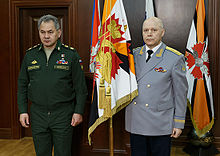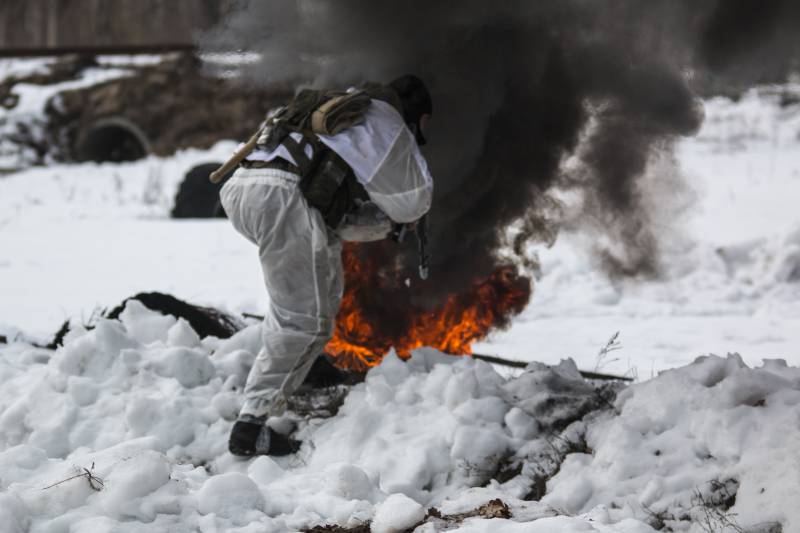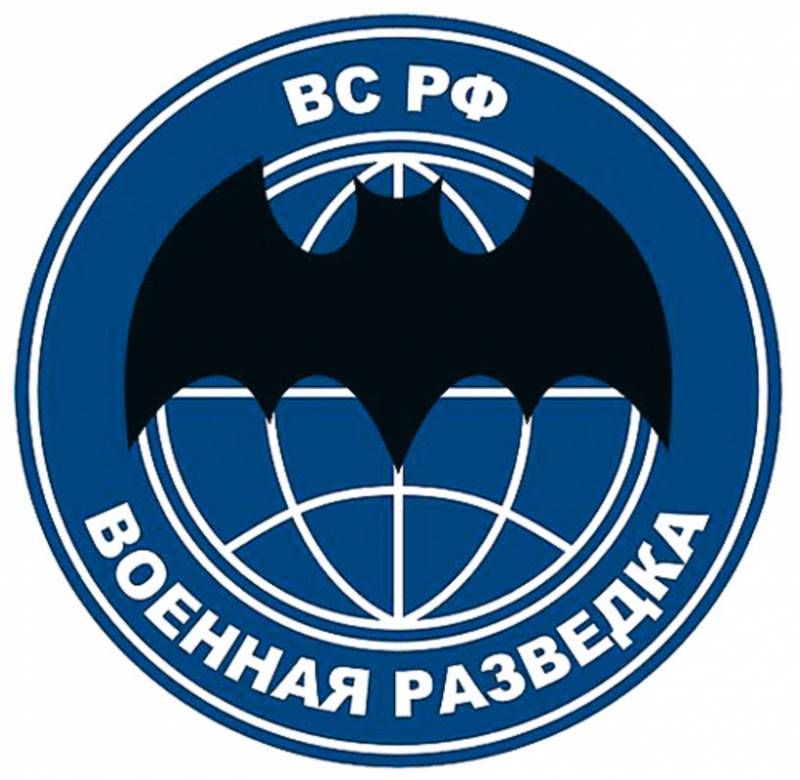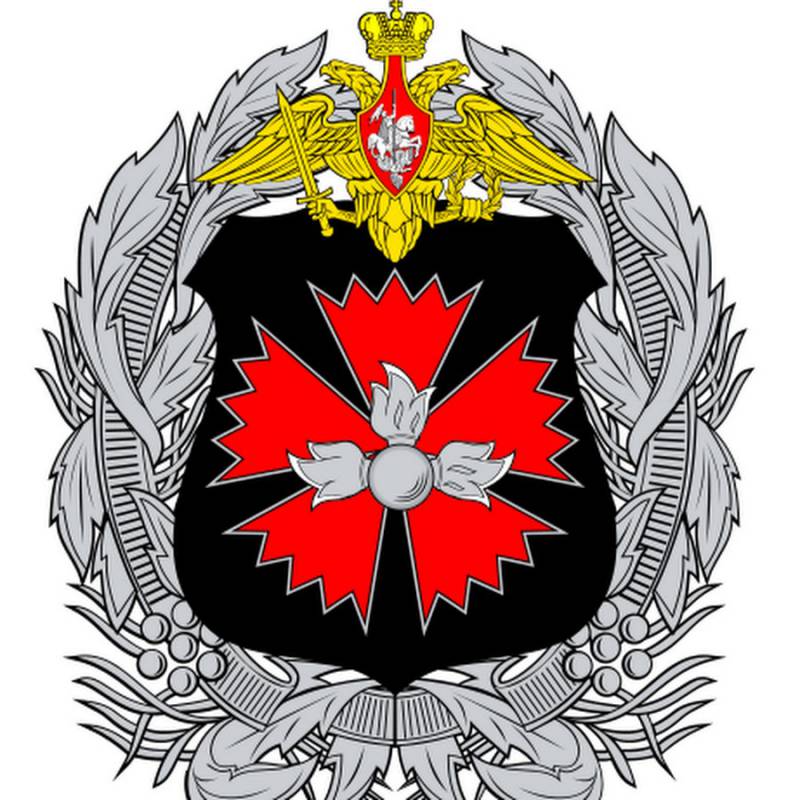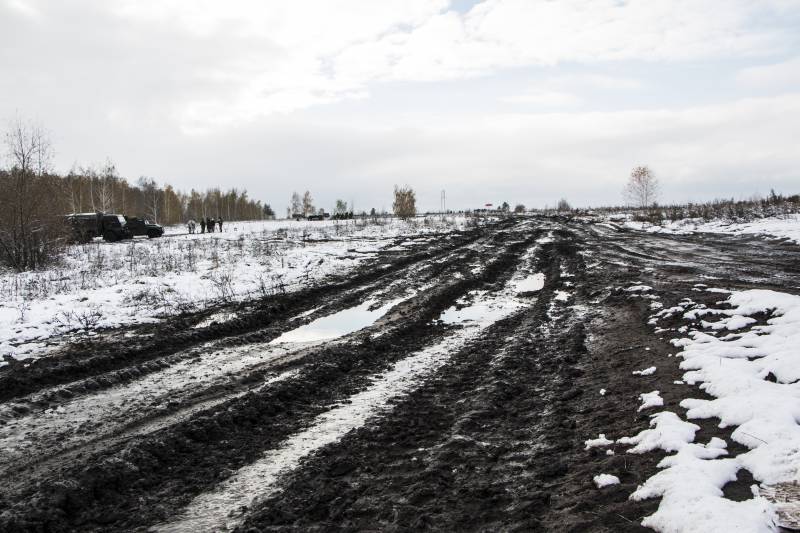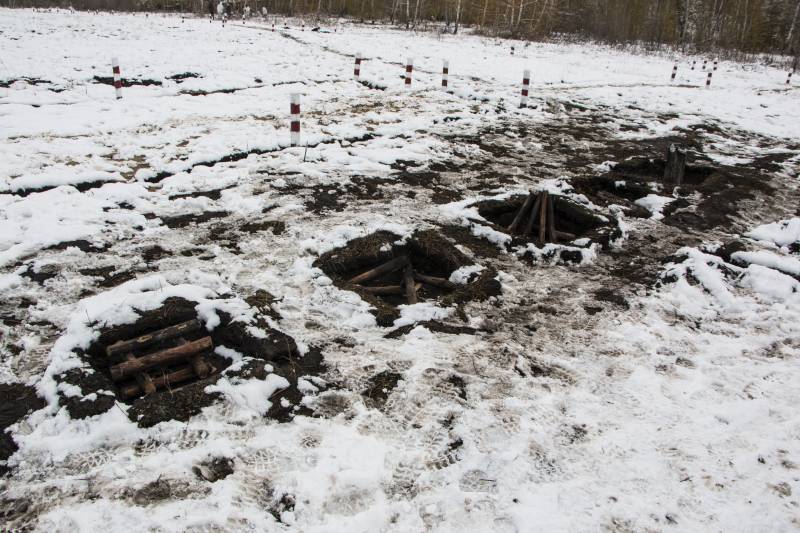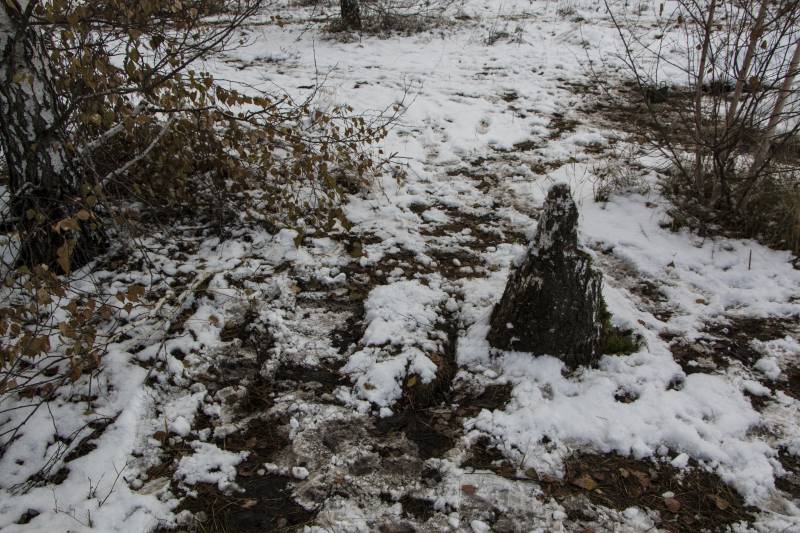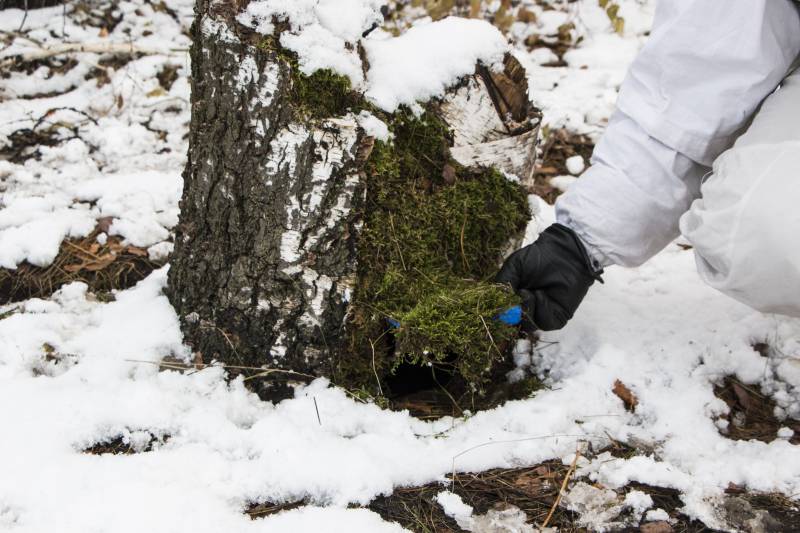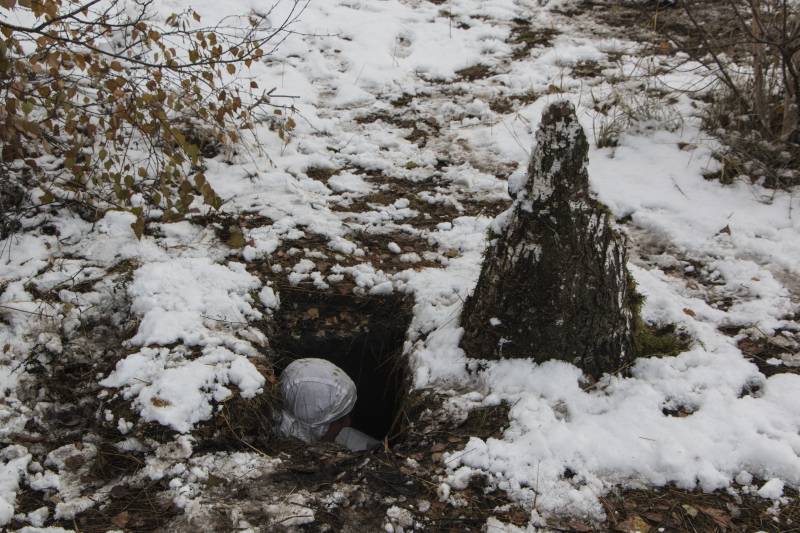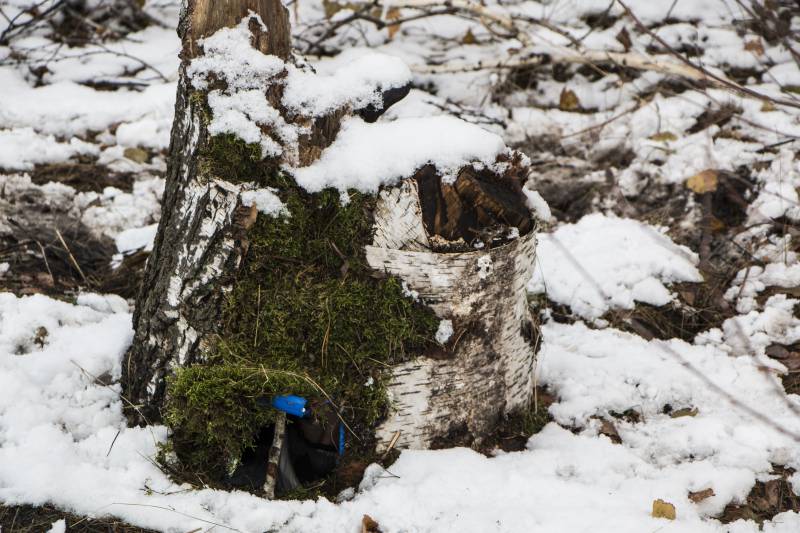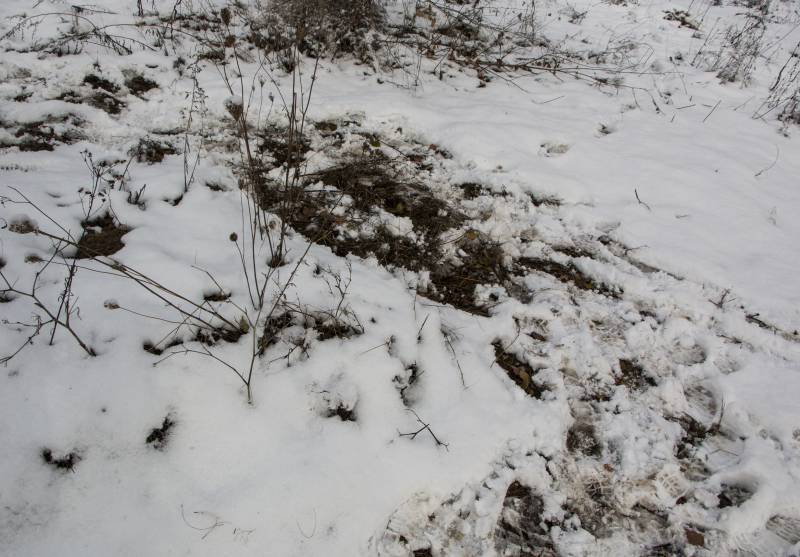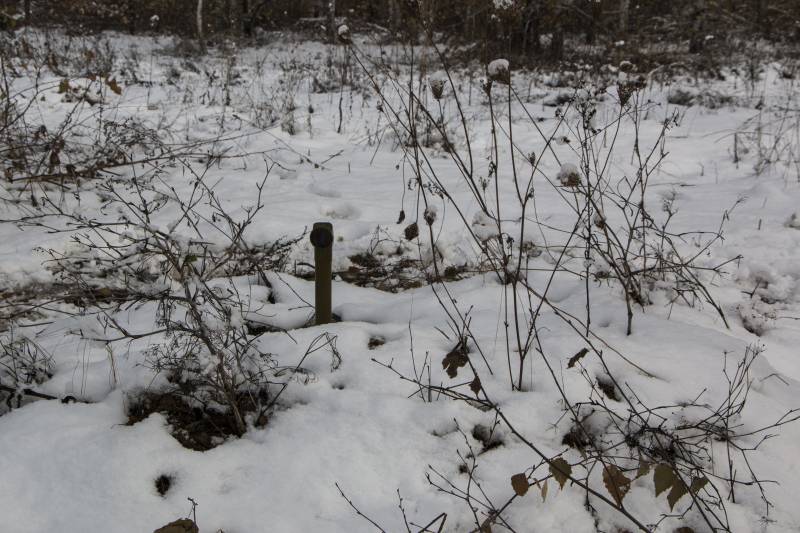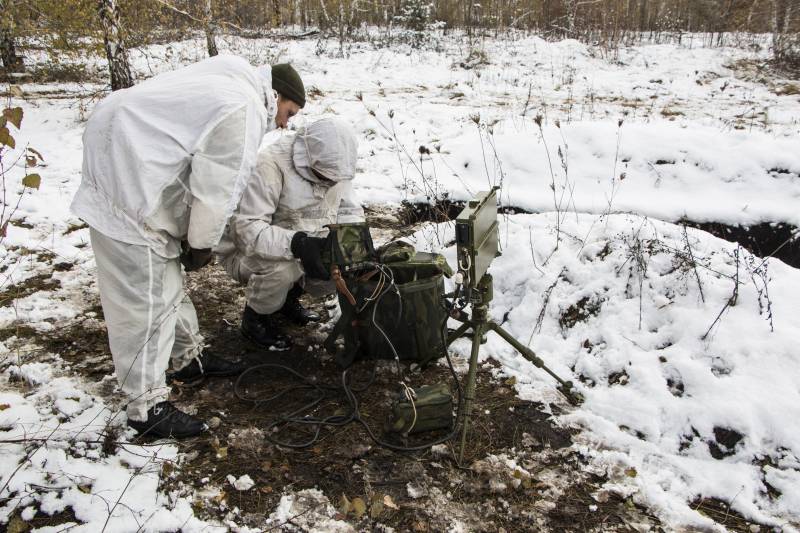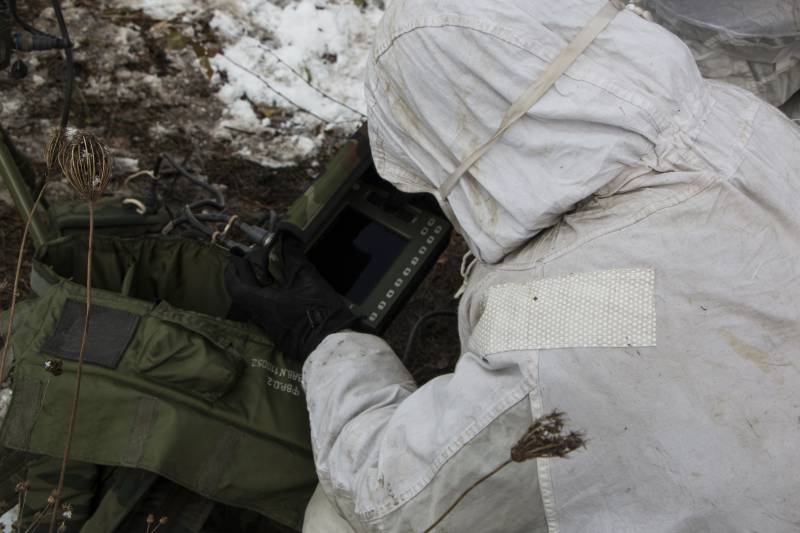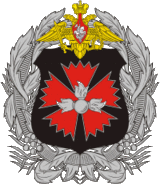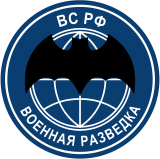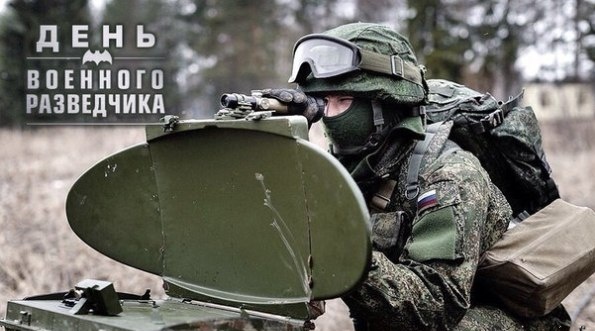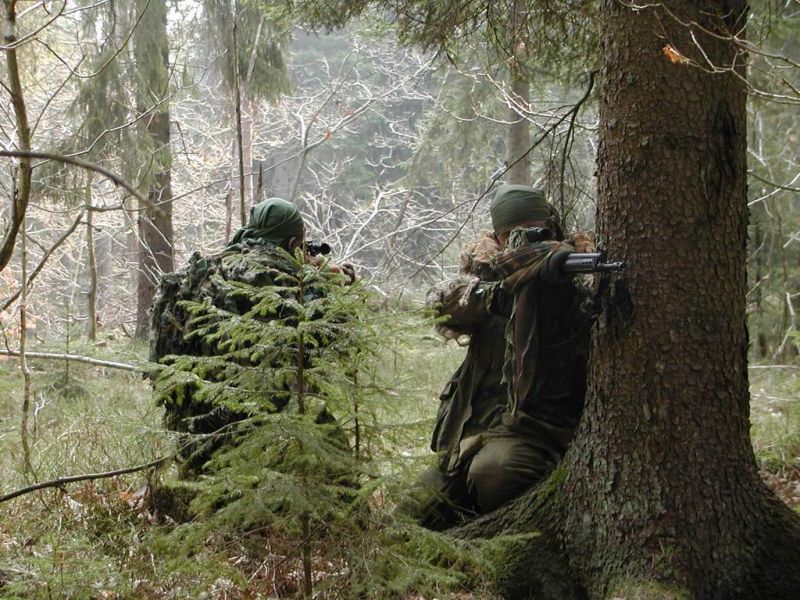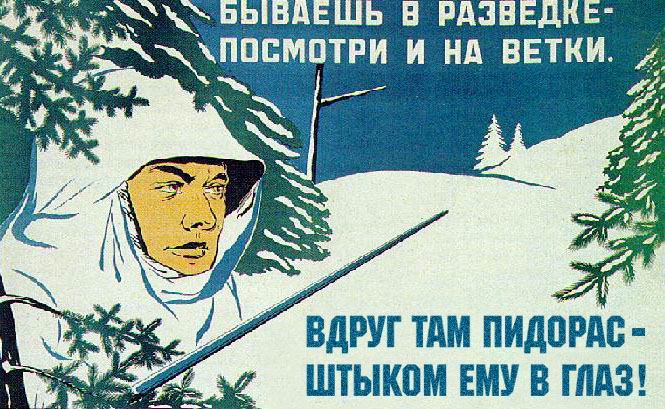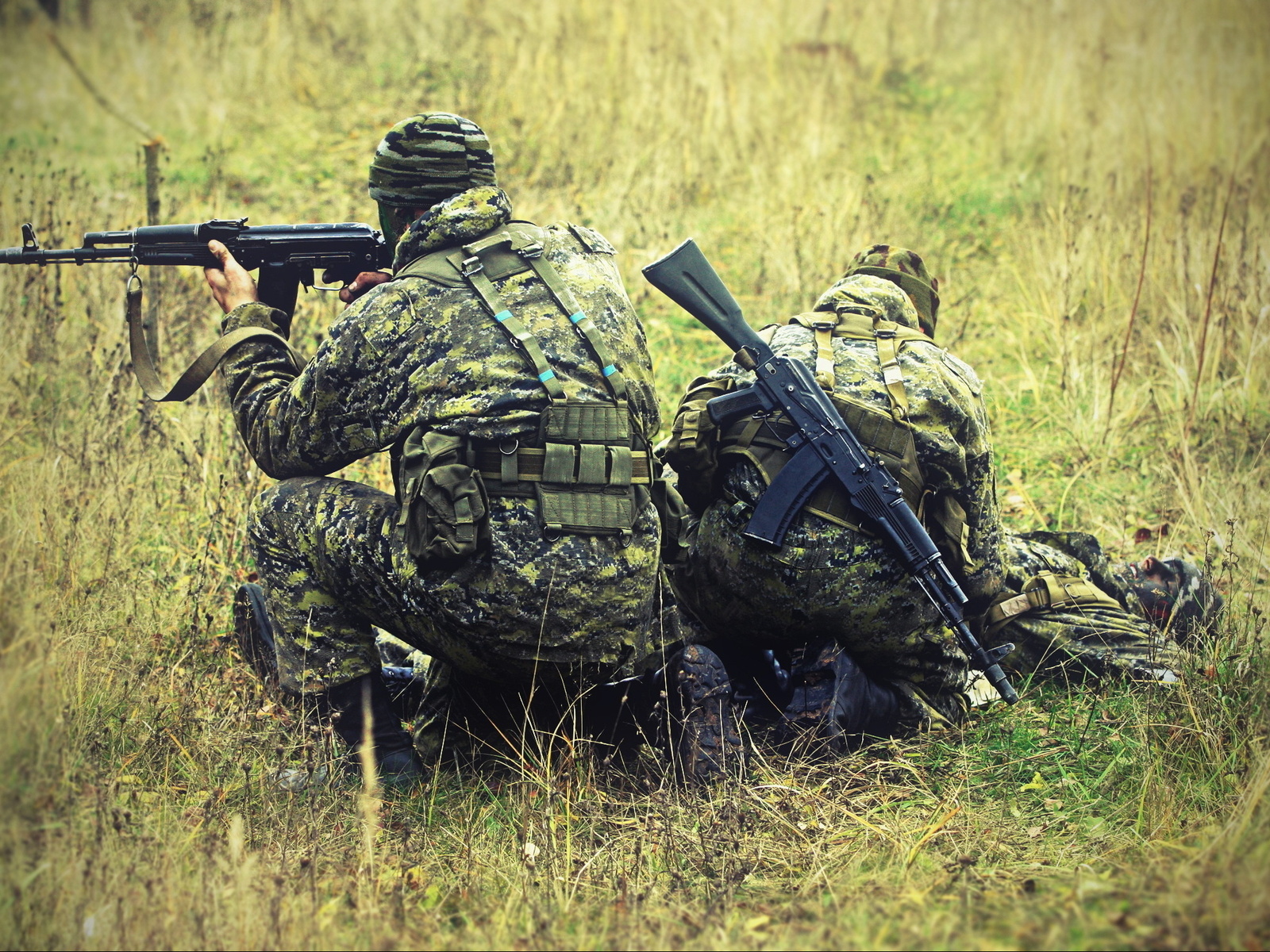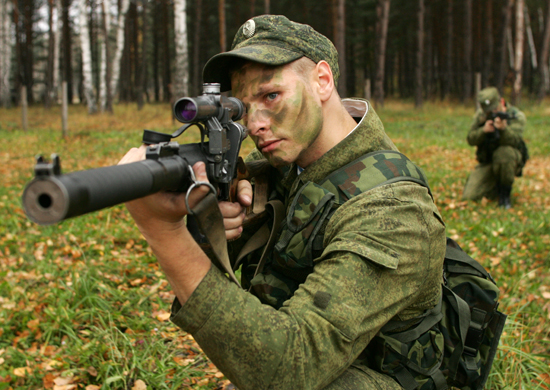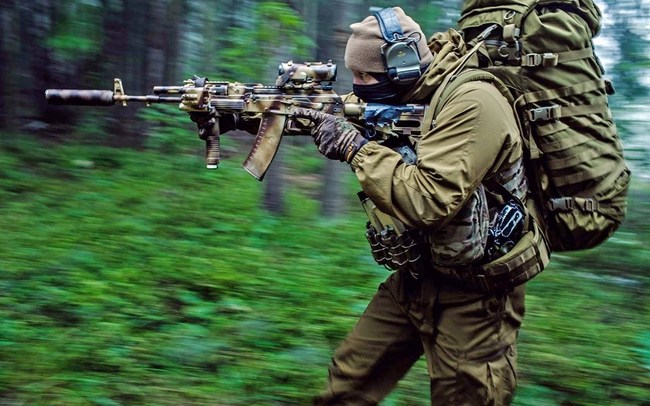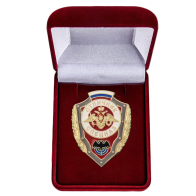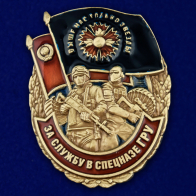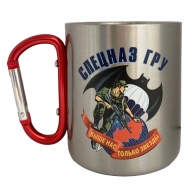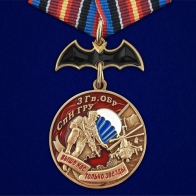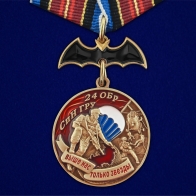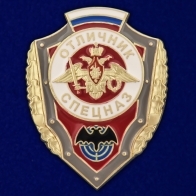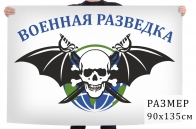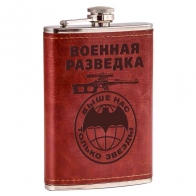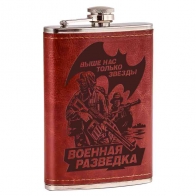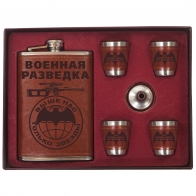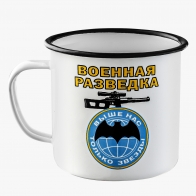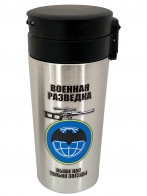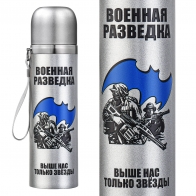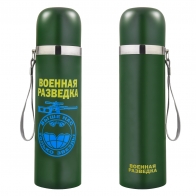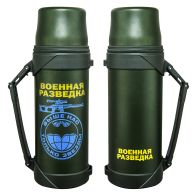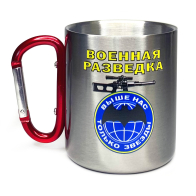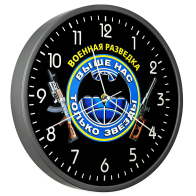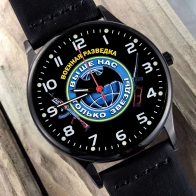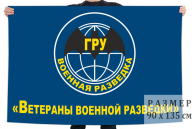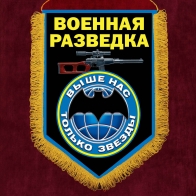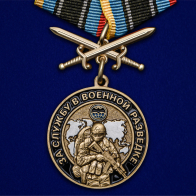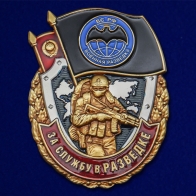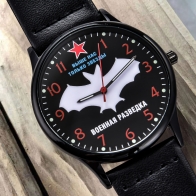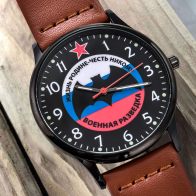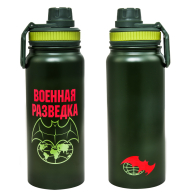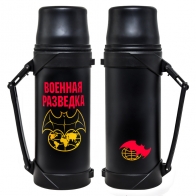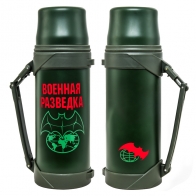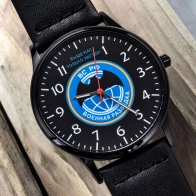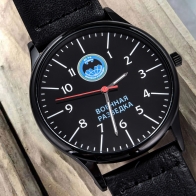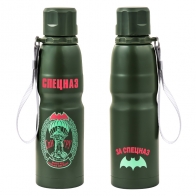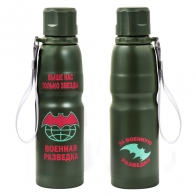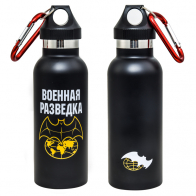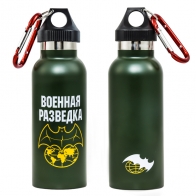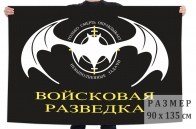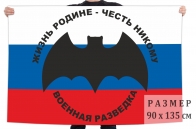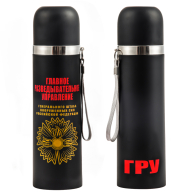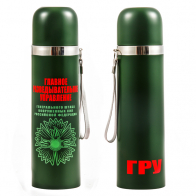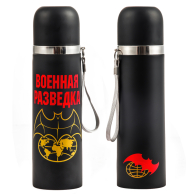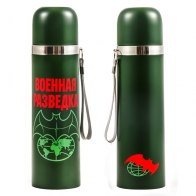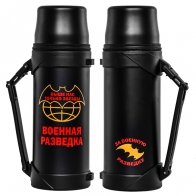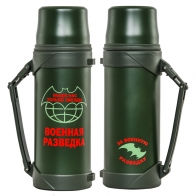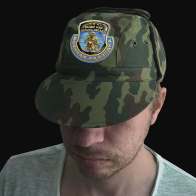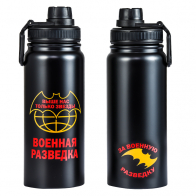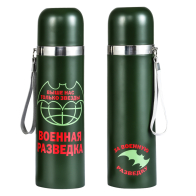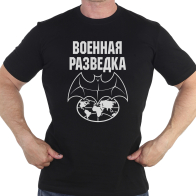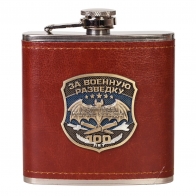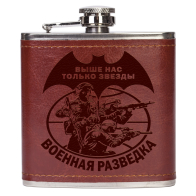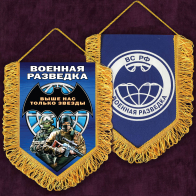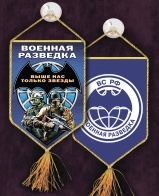| Гла́вное управле́ние Генера́льного шта́ба Вооружённых сил Росси́йской Федера́ции Glavnoje upravlenije General’nogo shtaba Vooruzhonnykh sil Rossiyskoy Federatsii |
|
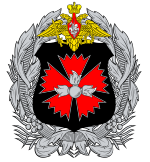
Emblem of the G.U. of the General Staff of the Armed Forces of Russia |
|
 Flag of the G.U. of the General Staff of the Armed Forces of Russia |
|
| Agency overview | |
|---|---|
| Formed | 7 May 1992; 30 years ago |
| Preceding agency |
|
| Jurisdiction | Russian Federation |
| Headquarters | Grizodubovoy Street 3, Moscow |
| Employees | Classified |
| Annual budget | Classified |
| Minister responsible |
|
| Agency executive |
|
| Parent agency | General Staff of the Armed Forces of the Russian Federation |
| Child agencies |
|
| Website | Ministry of Defense Website |
The Main Directorate of the General Staff of the Armed Forces of the Russian Federation,[note 1] formerly the Main Intelligence Directorate,[note 2] and still commonly known by its previous abbreviation GRU,[note 3][1] is the foreign military intelligence agency of the General Staff of the Armed Forces of the Russian Federation. The GRU controls the military intelligence service and maintains its own special forces units.
Unlike Russia’s other security and intelligence agencies—such as the Foreign Intelligence Service (SVR), the Federal Security Service (FSB), and the Federal Protective Service (FSO), whose heads report directly to the president of Russia —the director of the GRU is subordinate to the Russian military command, reporting to the Minister of Defence and the Chief of the General Staff.
The directorate is reputedly Russia’s largest foreign-intelligence agency,[2] and is distinguished among its counterparts for its willingness to execute riskier «complicated, high stakes operations».[3][4] According to unverified statements by Stanislav Lunev, a defector from the GRU, in 1997 the agency deployed six times as many agents in foreign countries as the SVR, and commanded some 25,000 Spetsnaz troops.[5]
History[edit]
Origins and early history[edit]
GRU Official emblem (until 2009) with motto engraved: «Greatness of the Motherland in your glorious deeds»
The first Russian body for military intelligence dates from 1810, in the context of the Napoleonic Wars raging across Europe, when War Minister Michael Andreas Barclay de Tolly proposed to Emperor Alexander I of Russia the formation of the Expedition for Secret Affairs under the War Ministry (Russian: Экспедиция секретных дел при военном министерстве); two years later, it was renamed the Special Bureau (Russian: Особая канцелярия).
In 1815, the Bureau became the First Department under the General Chief of Staff. In 1836, the intelligence functions were transferred to the Second Department under the General Chief of Staff. After many name-changes through the years, in April 1906, the Military intelligence was carried out by the Fifth Department under the General Chief of Staff of the War Ministry.
The GRU’s first predecessor in Soviet Russia was established by the secret order signed on 5 November 1918 by Jukums Vācietis, the first commander-in-chief of the Red Army (RKKA), and by Ephraim Sklyansky, deputy to Leon Trotsky, the civilian leader of the Red Army.[6][7] (Since 2006, the Russian Federation has officially observed the date of 5 November as the professional holiday of military intelligence in Russia.)[8][note 4] The military human intelligence service thus established was originally known as the Registration Agency (Registrupravlenie, or Registrupr; Russian: Региструпр) of the Field Headquarters of the Revolutionary Military Council of the Republic; Simon Aralov was its first head.[6] Its early history was marked by a series of reorganisations influenced by the Soviet-Polish War, the consolidation and restablisation of the Soviet Union, and the general reorganisation of the Red Army; this included changes to its name, status, and responsibilities.
Throughout most of the interwar period, the men and women who worked for Red Army Intelligence called it either the Fourth Department, the Intelligence Service, the Razvedupr, or the RU. […] As a result of the re-organisation [in 1926], carried out in part to break up Trotsky’s hold on the army, the Fourth Department seems to have been placed directly under the control of the State Defense Council (Gosudarstvennaia komissiia oborony, or GKO), the successor of the RVSR. Thereafter its analysis and reports went directly to the GKO and the Politburo, apparently even bypassing the Red Army Staff.
— Raymond W. Leonard[9]
The first head of the Fourth Directorate was Yan Karlovich Berzin, who remained in the post from March 1924 until April 1935 (in 1938, he was arrested and executed as a Trotskyite during the Stalinist purges). Military intelligence was known for its fierce independence from the rival «internal intelligence organizations», such as the NKVD, and later KGB; however, public statements of Soviet military intelligence veterans state the Fourth Directorate, and later GRU, had always been operationally subordinate to the KGB.[10] Military intelligence was headquartered in a small and nondescript complex west of the Kremlin, whereas the NKVD was in the very centre of Moscow, next to the building that housed People’s Commissariat for Foreign Affairs at the bottom of Kuznetsky Most.[11] Consequently, Soviet military intelligence came to be known in Soviet diplomats’ cant as distant neighbours (Russian: дальние соседи) as opposed to the near neighbours of the NKVD/KGB.[10][12]
Cold War[edit]
The GRU was created under its current name and form by Joseph Stalin in February 1942, less than a year after the invasion of the Soviet Union by Nazi Germany. From April 1943 the GRU handled human intelligence exclusively outside the USSR.[13][14] In addition to operations against the Axis powers, GRU is credited with having infiltrated the British nuclear weapon programme and up to 70 American government and scientific institutions.[11]
During the Cold War, the GRU, like many of its Western rivals, maintained rezidenturas, or resident spies, worldwide; these included both «legal» agents, based at Soviet embassies with official diplomatic cover, and «illegal» officers without cover. It also maintained a signals intelligence (SIGINT) station in Lourdes, Cuba and other Soviet-bloc countries. Though less well known than the KGB, with which it shared a fierce rivalry, GRU is known to have been involved in several high-profile episodes; this included opening backchannel negotiations with the U.S. government during the Cuban Missile Crisis and contributing to the Profumo scandal that partly contributed to the fall of a British administration.[11] GRU was distinguished for its «closer ties with revolutionary movements and terrorist groups, greater experience with weapons and explosives, and even tougher training for recruits»; new recruits were allegedly shown footage of a traitorous officer being fed into a crematorium alive.[11]
The existence of the GRU was not publicized during the Soviet era, though it was mentioned in the 1931 memoirs of the first OGPU defector, Georges Agabekov, and described in detail in the 1939 autobiography, I Was Stalin’s Agent, by Walter Krivitsky, the most senior Red Army intelligence officer ever to defect.[15] GRU became widely known in Russia, and outside narrow confines of the Western intelligence community, during perestroika, due partly to the writings of «Viktor Suvorov» (Vladimir Rezun), a GRU officer who defected to Great Britain in 1978 and wrote about his experiences in the Soviet military and intelligence services. According to Suvorov, even the General Secretary of the Communist Party of the Soviet Union, the country’s de facto leader, needed to undergo a security screening to enter GRU headquarters.
Post-Soviet period[edit]
Following the dissolution of the USSR in December 1991, the GRU continued as an important part of Russia’s intelligence services, especially since it was the only one to more or less maintain operational and institutional continuity:[16] the KGB had been dissolved after aiding a failed coup in 1991 against the then Soviet President Mikhail Gorbachev. It is now succeeded by the Foreign Intelligence Service (SVR) and the Federal Security Service (FSB).
Evidencing its growing strategic profile, in 2006 the GRU moved to a new headquarters complex at Khoroshovskoye Shosse [ru], which cost 9.5 billion rubles to build and incorporates 70,000 square meters.[17][18] In April 2009, President Dmitry Medvedev fired then-GRU head Valentin Korabelnikov, who had headed the GRU since 1997, reportedly over Korabelnikov’s objections to proposed reforms.[16][19] Pursuant to these reforms, the following year, the official name of the unit was changed from «GRU» to the «Main Directorate of the Russian General Chief of Staff», or «G.U.»; however, «GRU» continues to be commonly used in media.[1][20]
The GRU underwent severe reductions in funding and personnel following the 2008 Russo-Georgian War, during which it failed to discover the more advanced anti-aircraft weapons obtained by Georgia. However, it continued to play a key role in several Russian operations, including in Russia’s intervention in eastern Ukraine in 2014 and the subsequent annexation of Crimea.[11] GRU agents were also implicated in numerous cyberwarfare operations across the West, including in the U.S., France, and Germany.[11] Many of its successes took place during the tenure of Igor Sergun, who headed the service from late 2011 until his death in early January 2016.[21] Sergun’s sudden death shortly after the restoration of the GRU’s influence led to speculations of foul play by Russian adversaries.[22][23]
The tenure of Sergun’s successor, Igor Korobov, was marked by what some news media[24] construed as multiple high-profile setbacks, such as the thwarted 2016 coup d’état attempt in Montenegro, the failed 2018 Salisbury poisoning, and an unprecedented number of disclosed GRU agents.[25] Korobov died on 21 November 2018, «after a serious and prolonged illness», according to the official Defence Ministry statement.[26][27] His death provoked speculations and unverified reports of him having fallen ill in October that year following a harsh dressing-down from President Vladimir Putin.[25][28][29] However, former CIA station-chief Daniel Hoffman cautioned in 2017 that some of the Russian intelligence’s recent operations that appeared to be botched might have been intended for discovery.[30][31] Similarly, in 2019, Eerik-Niiles Kross, a former Estonian intelligence official, opined that GRU’s apparent sloppiness «has become part of the psychological warfare. It’s not that they have become that much more aggressive. They want to be felt. It’s part of the game.»[32]
On 2 November 2018, while marking the GU’s 100th anniversary, President Putin proposed restoring the agency’s former name: Главное разведывательное управление (GRU).[33]
Organizational structure[edit]
1997 organization[edit]
The GRU is organized into numerous directorates, directions, and sections.[34] According to the data available in open sources in 1997, the structure of the Main Directorate consists of at least 12 known directorates and several other auxiliary departments.
- The First Directorate is responsible for intelligence in Europe.
- The Second Directorate is geographically responsible for the Western Hemisphere.
- The Third Directorate is geographically responsible for Asia.
- The Fourth Directorate is geographically responsible for Africa and the Middle East.
- The Fifth Directorate is responsible for military operations intelligence, including naval and air force intelligence.
- The Sixth Directorate is responsible for signals intelligence (SIGINT) and space intelligence.[35] It uses over 20 different types of aircraft, a fleet of 60 SIGINT collection vessels, satellites, and ground stations to collect signals intelligence. Together with FAPSI, the GRU operates SIGINT collection facilities in over 60 diplomatically protected facilities throughout the world. These agencies also operate ground collection facilities within former Soviet states’ territory.
- The Seventh Directorate is responsible specifically for NATO.
- The Eighth Directorate deals with special purpose administration.
- The Ninth Directorate is responsible for military technology.
- The Tenth Directorate is the department of war economics.
- The Eleventh Directorate is the department of strategic doctrines and arms.
- The Twelfth Directorate is responsible for information warfare.
2020 organization[edit]
The American Congressional Research Service, based on interviews with various experts, gives the following organization of the GRU, although it acknowledges that the organization’s true structure is «a closely guarded secret.»[36]
4 Regional Directorates:
- First Directorate: European Union
- Second Directorate: North and South America, the United Kingdom, Australia, and New Zealand
- Third Directorate: Asia
- Fourth Directorate: Africa
11 Mission-Specific Directorates:
- Fifth Directorate: Operational Intelligence
- Sixth Directorate: Electronic/Signals intelligence
- GRU cyber capabilities, Unit 26165 (allegedly the hacking group Fancy Bear/APT28/STRONTIUM), and Unit 74455 (allegedly the Sandworm Team)
- Seventh Directorate: NATO
- Eight Directorate: Russian Spetsnaz (special forces)
- Ninth Directorate: Military technology
- Tenth Directorate: Military economy
- Eleventh Directorate: Strategic doctrine
- Twelfth Directorate: Information Operations (separate from American information operations)
- Space Intelligence Directorate
- Operational and Technical Directorate
- External Relations Department
Units[edit]
Unit 29155[edit]
Unit 29155 is tasked with foreign assassinations and other covert activities aimed at destabilizing European countries.[32] The Unit is thought to have operated in secret since at least 2008, though its existence only became publicly known in 2019.[32][37] It is commanded by Maj. Gen. Andrei Vladimirovich Averyanov [d] and based at the headquarters of the 161st Special Purpose Specialist Training Center in eastern Moscow.[32][37] Its membership included decorated veterans from the Soviet war in Afghanistan and Russia’s most recent series of wars in Chechnya and Ukraine.[citation needed] It has been linked to the 2014 Russian annexation of Crimea, the 2015 poisonings of Bulgarian arms dealer Emilian Grebev (also spelled Emilyan), the 2016 Montenegro coup attempt, and the poisoning of Russian defector Sergei Skripal. Unit 29155 operatives have also been tracked to Switzerland during the time (early 2018) other GRU units hacked the World Anti-Doping Agency (then investigating state-sponsored doping by Russian Olympians) and attempted to hack the Organisation for the Prohibition of Chemical Weapons (then investigating the Douma chemical attack by Russia-backed Bashar al-Assad and evidence in the Skripal case).[38] Spain has also investigated the travel of Unit 29155 member Denis Sergeev (who has also used the name Sergei Fedotov) to Barcelona in 2017 around the time of the 2017 Catalan independence referendum.[36] The unit is also accused of being behind the alleged Russian bounty program where Taliban militants were paid to kill American troops, although the program’s existence is uncertain, unproven, and unverified.[39][40][36]
Unit 54777[edit]
Unit 54777, alternately called the 72nd Special Service Center,[36] is one of the GRU’s primary psychological warfare capabilities.[41] Unit 54777 retains several front organizations, including InfoRos and the Institute of the Russian Diaspora.[41] The unit originated from Soviet GLAVPUR (Glavnoye Politicheskoye Upravlenie, or the Main Political Department) and was created in early 1990s and notably employed colonel Aleksandr Viktorovich Golyev, whose memoirs were published in 2020 along with other GRU documents. In the 1990s, the unit focused on pro-Soviet disinformation in newly split republics such as Lithuania and Chechnya. In later years the unit covered a broad range of activities from running NGOs targeting Russian expatriates in Western countries (InfoRos, Institute of the Russian Diaspora, World Coordinating Council of Russian Compatriots Living Abroad, Foundation for Supporting and Protecting the Rights of Compatriots Living Abroad) and manipulating public opinion in Russia and abroad in preparation for armed conflicts such as in Georgia, Donbas or Syria.[42]
Unit 26165[edit]
Unit 26165, also known as Fancy Bear, STRONTIUM, and APT28, is a cyber operations/hacking group. Unit 26165 was originally created during the Cold War as the 85th Main Special Service Center, responsible for military intelligence cryptography.[36] The Netherlands has accused Unit 26165 of also being involved in the attempted 2018 OPCW hack[43] and targeting its investigation into the 2014 downing of Malaysia Airlines Flight 17 (MH17), for which the Dutch investigation blames pro-Russian Ukrainian separatists armed with surface-to-air missiles by Russia.[44][45]
Unit 74455[edit]
Unit 74455, also known as the Sandworm Team or the Main Center for Technologies, used various fictitious online identities (DCLeaks and Guccifer 2.0) to coordinate the release of the politically sensitive stolen documents with WikiLeaks for «maximum political impact» starting on the eve of the 2016 Democratic National Convention. Its guilt has been reported by American media and a Senate Intelligence Committee investigation. In October 2020, the United States Department of Justice indicted six Unit 74455 GRU officers for multiple cyberattacks, including the December 2015 Ukraine power grid cyberattack, the 2017 Macron e-mail leaks, the 2017 NotPetya attacks, the 2018 Winter Olympics hack (for which the GRU attempted to frame North Korea), several 2018 attacks on Skripal case investigators, and a 2018–2019 cyberattack campaign against Georgian media and the Georgian Parliament.[46][36]
SATCOM[edit]
Since the mid-1970s the GRU has maintained a satellite communications interception post near Andreyevka, located approximately 80 kilometres (50 miles) from Spassk-Dalny, Primorsky Krai.[47][48][49]
GRU illegals[edit]
According to a Western assessment of the GRU seen by Reuters in the autumn of 2018, the GRU had a long-running program to run ‘illegal’ spies, i.e. those who work without diplomatic cover and who live under an assumed identity in foreign countries for years.[1] The assessment said: «It plays an increasingly important role in Russia’s development of Information Warfare (both defensive and offensive). It is an aggressive and well-funded organization which has the direct support of – and access to – President Vladimir Putin, allowing freedom in its activities and leniency with regards to diplomatic and legislative scrutiny.»[1]
The United States alleges that the GRU, as well as the SVR (its civilian foreign intelligence counterpart), makes use of both legal (intelligence officers with diplomatic protection/official government roles) and illegal operatives.[36]
Special Forces of the Main Directorate[edit]
Commonly known as the Spetsnaz GRU, it was formed in 1949. Following the dissolution of the Soviet Union in 1991, the Spetsnaz GRU remained intact as part of the Russian GRU until 2010, when it was reassigned to other agencies. In 2013, however, the decision was reversed and Spetsnaz GRU units were reassigned to GRU divisions and placed under GRU authority again.[50]
Education[edit]
GRU officers train at a Ministry of Defence military academy at 50 Narodnoe Opolchenie Street, with intelligence agents receiving additional training at the Cherepovets Higher Military School of Radio Electronics.[20] The A.F. Mozhaysky Military-Space Academy has also been used to train GRU officers.[20]
Activities by country[edit]
According to the Federation of American Scientists: «Though sometimes compared to the US Defense Intelligence Agency, [the GRU’s] activities encompass those performed by nearly all joint US military intelligence agencies as well as other national US organizations. The GRU gathers human intelligence through military attaches and foreign agents. It also maintains significant signals intelligence (SIGINT) and imagery reconnaissance (IMINT) and satellite imagery capabilities.»[51] Soviet GRU Space Intelligence Directorate had put more than 130 SIGINT satellites into orbit. GRU and KGB SIGINT network employed about 350,000 specialists.[52]
Austria[edit]
On 9 November 2018 Austrian Chancellor Sebastian Kurz said that a 70-year-old retired army colonel, identified only as «Martin M.» was believed to have spied for Russia for years. The officer in question, whose name was not disclosed and who might have been approached under a false flag, was reported to have been engaged in selling official secrets to his GRU handlers from 1992 until September 2018.[53][54][55][56] In July 2019, Austria’s Ministry of the Interior confirmed that the colonel’s handler was a Moscow-born GRU officer Igor Egorovich Zaytsev, a Russian national, for whom an international arrest warrant had been issued.[57][58][59]
Bulgaria[edit]
An investigation by Bellingcat and Capital identified GRU officer Denis Vyacheslavovich Sergeev (using the alias Sergey Vyacheslavovich Fedotov) as a suspect in the 2015 poisoning of Bulgarian businessman Emiliyan Gebrev (Емилиян Гебрев) in Sofia, following an attack that mirrored the techniques used in the poisoning of Sergei and Yulia Skripal.[60][61][62][63] That attack has been specifically tied to Unit 29155.[37] Three individuals were charged in absentia by the Bulgarians in January 2020.[64]
In March 2021, six Bulgarian nationals alleged to be members of a GRU spy ring operating in Bulgaria were arrested in Sofia.[65][66]
Canada[edit]
The GRU received intelligence from Jeffrey Delisle of the Royal Canadian Navy, leading to the expulsion of several Russian Embassy staffers, including the defence attaché to Ottawa.[67][68]
Colombia[edit]
In December 2020, Migración Colombia confirmed the expulsion of two Russian diplomats accused of espionage.[69] One of the assailants was identified as Aleksandr Nikolayevich Belousov who, according to the National Intelligence Directorate of Colombia, is a GRU officer that had been credited by the Russian Embassy in Bogotá as a secretary.[70] Nikolayevich, along with an SVR officer, had reportedly tried to gather intelligence on the country’s electricity infrastructure on behalf of Venezuela’s Maduro government.[71]
Czech Republic[edit]
On 17 April 2021, the Czech Republic announced its intelligence agencies had concluded that GRU officers, namely members of Russian military intelligence GRU’s unit 29155, were involved in two massive ammunition depot explosions in Vrbetice (part of Vlachovice), near the Czech-Slovak border, in October 2014.[72] The explosions killed two persons and «inflicted immense material damage, seriously endangered and disrupted the lives of many local residents», according to the Czech prime minister.[72]
Estonia[edit]
A Russian citizen named Artem Zinchenko was convicted of spying on Estonia for GRU in May 2017.[73][74] In 2007 Deniss Metsavas, a Lasnamäe-born member of the Estonian Land Forces, was targeted with a honey trapping operation while visiting Smolensk. He was subsequently blackmailed into providing information to GRU handlers. His father, Pjotr Volin, was also recruited by GRU agents as leverage against Deniss, and would serve as a courier for classified information.[75] On 5 September 2018, Major Deniss Metsavas and Pjotr Volin were charged with giving classified information to the GRU[76][77] The two were convicted in February 2019.[75]
Finland[edit]
In September 2018, Finnish police ran a large scale operation against numerous sites owned by Airiston Helmi Oy company that over years accumulated land plots and buildings close to nationally significant key straits, ports, oil refineries and other strategic locations as well as two Finnish Navy vessels. The security operation was run in parallel in multiple locations, involving Finnish National Bureau of Investigation, local police, Tax Administration, Border Guard, and Finnish Defence Forces. During the operation, a no-fly zone was declared over Turku Archipelago where key objects were located. While official cause given for the raid was multi-million euro money laundering and tax fraud, media speculated that the company had been a cover for GRU preparing infrastructure for a surprise attack on Finnish locations in case of a conflict situation.[78][79]
France[edit]
Viktor Ilyushin, a GRU operative working as an Air Force deputy attaché, was expelled from France in 2014 for attempted espionage of the staff of François Hollande.[20]
In August 2015, a GRU unit posing as Islamic State of Iraq and the Levant supporters called CyberCaliphate took TV5Monde offline for approximately 18 hours.[41]
GRU’s APT – Fancy Bear used fake Facebook accounts to pose as associates of Emmanuel Macron’s campaign staff, with the goal of interfering with the 2017 French presidential election.[80] Georgy Petrovich Roshka, a member of the GRU’s Unit 26165 was involved in the theft of Macron’s emails, and subsequent distribution via WikiLeaks.[20][81]
In December 2019, Le Monde reported that the joint effort by British, Swiss, French and U.S. intelligence agencies had discovered an apparent «rear base» of GRU in southeastern France, which was presumably used by GRU for the clandestine operations carried out throughout Europe. Investigators had identified 15 agents – all of them members of GRU’s Unit 29155 – who visited Haute-Savoie in the Auvergne-Rhône-Alpes, region of France from 2014 to 2018, including Alexander Petrov and Ruslan Boshirov, who are believed to be behind the poisoning of the former GRU colonel and British double agent Sergei Skripal in Salisbury in 2018.[82][83]
Georgia[edit]
During the 2006 Georgian–Russian espionage controversy, four officers working for the GRU Alexander Savva, Dmitry Kazantsev, Aleksey Zavgorodny and Alexander Baranov were arrested by the Counter-Intelligence Department of the Ministry of Internal Affairs of Georgia and were accused of espionage and sabotage. This spy network was managed from Armenia by GRU Colonel Anatoly Sinitsin. A few days later the arrested officers were handed over to Russia through the Organization for Security and Co-operation in Europe (OSCE).[84][85]
Spetsnaz GRU unit No. 48427, an airborne unit, participated in the Russo-Georgian War.[86]
Germany[edit]
The 2015 Bundestag hack was attributed by German intelligence to the GRU.[87] In 2020, Germany issued an arrest warrant for Dmitry Badin, a GRU officer and Unit 26165/Fancy Bear member also accused of involvement in the 2015–2016 DNC hacks in the United States, alleging he played a leading role in the Bundestag hack.[88]
In 2018, German officials reported a key data network used by the Chancellery, ministries, and Parliament had been breached. German media attributed the attack to a Russian Government-sponsored hacking group, either Snake/Ouroborus or Fancy Bear.[89]
In February 2021, Germany charged German citizen Jens F., a worker whose company maintained Bundestag electrical equipment, with espionage, accusing him of providing the building’s floor plans to GRU operatives in the Russian embassy in 2017. The suspect was a former army officer allegedly linked to the Stasi in the 1980s.[90]
In September 2021, the German foreign ministry warned Russia against the continuation of a pre-election cyberattack campaign targeting German legislators, claiming it had «reliable information» linking the Ghostwriter group behind the attacks to the GRU. The prosecutor general later opened an investigation into the affair.[87]
Japan[edit]
In September 2000, Japan expelled Captain Viktor Bogatenkov, a military attaché at the Russian Embassy in Tokyo, on allegations of espionage.[91] Bogatenkov was a GRU agent who received classified information from Shigehiro Hagisaki (萩嵜 繁博), a researcher at the National Institute for Defense Studies.[91][92]
Latvia[edit]
In early 2018, an investigation by Russian opposition site Mbk.media alleged then-first secretary of the Russian Embassy in Latvia Roman Tatarka was a GRU operative and former classmate of Anatoly Chepiga.[93]
In October 2018, Latvia’s Constitution Protection Bureau accused Russia of conducting a years-long phishing campaign targeting «state institutions, including the foreign and defense sectors.»[94]
Lithuania[edit]
In 2012, GRU officer Sergey Moiseyenko recruited Lithuanian Air Force officer Sergej Pusin to conduct espionage on Lithuanian and NATO military operations. Pusin additionally passed personal files on various military officers. Moiseyenko was arrested in 2014 and sentenced to 10.5 years in prison, but was pardoned and returned to Russia by President Nausėda as part of a trilateral prisoner exchange with Norway and Russia in 2019.[95][96]
Mexico[edit]
In March 2022, General Glen VanHerck of United States Northern Command testified that «the largest portion of the GRU members is in Mexico right now» seeking «opportunities to…influence [and access the] U.S.» Mexican President López Obrador downplayed the allegation, emphasizing Mexican sovereignty and stating his country «[did not] get involved in [espionage].»[97][98]
Moldova[edit]
In June 2017, Moldova expelled five Russian GRU operatives with diplomatic cover from the Russian Embassy in Chisinau, as they were believed to be attempting to recruit fighters from Gagauzia to fight in the ongoing conflict with Ukraine.[99] Russian Deputy Minister of Foreign Affairs Grigory Karasin rejected the allegations.[99][100]
Montenegro[edit]
The two Russian nationals indicted by Montenegrin prosecution as the organisers of the attempted coup d’état in Montenegro in October 2016 are believed to be GRU officers.[101][102][103][104] One of them, Eduard Vadimovich Shishmakov («Shirokov») had been officially identified as GRU in October 2014, when Shishmakov, who then held the position of a deputy military attaché at the Russian embassy in Poland, was declared persona non grata by the Polish government.[101][105][106]
The Netherlands and Switzerland[edit]
In mid-September 2018 the Swiss press reported that two men allegedly working for the GRU had been arrested in The Hague, the Netherlands in the spring that year, after the Salisbury poisoning incident, for planning to hack the computer systems of the Spiez Laboratory, a Swiss institute analyzing chemical weapon attacks for the Organisation for the Prohibition of Chemical Weapons (OPCW).[107][108] In early October 2018, the government of the Netherlands announced they had arrested four GRU operatives on 13 April: Aleksei Morenets, Evgenii Serebriakov, Oleg Sotnikov, and Aleksey Minin.[109] The Russians allegedly attempted to launch a major «close access» cyberattack[110] against the headquarters of the OPCW in the Hague and also intended to travel onwards to the Spiez laboratory in Switzerland, which was testing Novichok samples from Salisbury at the time.[111][112] Investigation conducted by open-source intelligence outlets in the aftermath of the Dutch government’s revelations that used Russian road police databases led to identification of further 305 GRU officers whose private cars were registered at GRU headquarters in Moscow.[113] GRU officer Denis Vyacheslavovich Sergeev has also been documented as operating in Geneva and Lausanne.[114]
Alleged attempt to infiltrate International Criminal Court[edit]
In June 2022, the Dutch AIVD stated that GRU intelligence officer Sergey Vladimirovich Cherkasov, under the alias of Viktor Muller Ferreira, was denied entry to the Netherlands after arriving for an internship with the International Criminal Court. The AIVD described Cherkasov as a deep-cover illegal, publishing a document he is alleged to have written in 2010 reminding himself of his cover identity. As Ferreira, Cherkasov is alleged to have attended university in the United States and Republic of Ireland, building a cover identity for years as a Brazilian national with an interest in international affairs. AIVD head Erik Akerboom [nl] described the attempted infiltration as a «long-term, multi-year GRU operation that cost a lot of time, energy and money,» calling it a «high-level threat.»[115][116]
Norway[edit]
In December 2020, the Norwegian Police Security Service stated that hackers linked to Fancy Bear and the GRU’s 85th Special Services Center (GTsSS) were likely responsible for a breach of the Storting’s email system earlier in the year. The Russian Embassy in Norway denied the claims.[117]
Poland[edit]
In June 2014, Poland expelled Russian deputy military attaché Eduard Shishmakov (alias Eduard Shirokov) and three other Russian citizens accused of spying over a 2014 wiretap scandal involving the publication of wiretapped conversations between senior Polish officials. Shishmakov, an accused GRU operative, later became a key suspect in the 2016 Montenegrin coup allegations.[118]
In October 2014, Poland arrested two alleged GRU spies. Polish Lt. Col. Zbigniew J. worked for the GRU for «several years» feeding information on unit morale and troop movements while lawyer-lobbyist Stanisław Szypowski influenced governmental circles and sought a job in the Economy Ministry while providing information on the energy sector. Both met with GRU operatives under official cover in Warsaw and were monitored by Polish counterintelligence.[119]
In July 2019, a Warsaw court sentenced former Economy Ministry employee Marek W. to three years in prison for passing classified information on the energy sector to the GRU from 2015 to 2016.[120]
In May 2020, Polish journalists, supported by former intelligence officials, accused the GRU of conducting a 700-email bomb threat campaign against Polish schools as part of a hybrid warfare strategy. Polish and Russian intelligence services did not comment on the accusations.[121]
In March 2022, the Polish Internal Security Agency (ABW) arrested reporter Pablo Gonzalez, whom they identified as «an agent of the [GRU],» as he planned to cross the Polish-Ukrainian border. Gonzalez, a Spanish citizen of Russian origin, was found with two passports of different names and detained on suspicion of espionage. The ABW accused Gonzalez of «[carrying] out activities for Russia using his journalistic status» and traveling to worldwide zones of conflict and political instability.[122][123]
In January 2023, Warsaw authorities arrested a Russian and a Belarusian national. The SKW, Poland’s military counterintelligence agency, accused the pair of spying on Polish military facilities for the GRU since 2017.[124][125]
Qatar[edit]
On 13 February 2004, in Doha, two Russian men assassinated Zelimkhan Yandarbiyev, an exiled leader of Chechen rebels and former President of the Chechen Republic of Ichkeria, in a car-bombing. Yandarbiyev’s son was also killed.[36][126] Anatoly V. Belashkov and Vasily A. Bogachyov, thought to be GRU members, were found guilty of the murder by a Qatari criminal court, which said the men had acted under direct orders from the Russian leadership.[126][127][128] A third suspected GRU agent, posted as first secretary of the Russian Embassy in Qatar, was arrested but released to his diplomatic immunity. Those sentenced were sent to Russia to serve their sentences but disappeared shortly after.[36]
Russia[edit]
Dmitry Kozak and Vladislav Surkov, members of the Vladimir Putin administration, reportedly served in the GRU. Two Chechens, Said-Magomed Kakiev and former warlord Sulim Yamadayev were commanders of Special Battalions Vostok and Zapad («East» and «West») that were controlled by the GRU. The battalions each included close to a thousand fighters until their disbandment in 2008.[129]
Approximately 300 commandos, intelligence officers and other GRU personnel died during the fighting in Chechnya.[130]
GRU detachments from Chechnya were transferred to Lebanon independently of the United Nations Interim Force in Lebanon after the 2006 Lebanon War.[131]
GRU officers have also been accused of creating criminal death squads.[132]
Slovakia[edit]
In early 2022, Slovakia arrested four Slovak nationals described as a «Russian spying network [seeking] information about NATO and Ukraine.» Two were charged with spying and bribery, with Slovak authorities alleging undercover GRU officers at the Russian Embassy paid tens of thousands of euros for the «highly sensitive» information about Slovakia, the Slovak military, and NATO.[133] The men charged were a Slovak military academy rector and disinformation blogger; the other two were released without charge.[134]
Spain[edit]
According to reporting by Bellingcat, El País and the Civica Media Foundation, the Audiencia Nacional is investigating a GRU group known as Unit 29155 and its operations in Spain.[135] GRU members Denis Sergeev, Alexey Kalinin and Mikhail Opryshko are reported to have been operating in Barcelona around the time of the 2017 Catalan independence referendum.[135]
Syria[edit]
The Sixth Directorate was responsible for maintaining the Center S covert listening post in Syria prior to its loss to the Free Syrian Army in 2014.[136][137][138] The Sixth Directorate also operates a signals intelligence listening post at Hmeimim Air Base near Latakia.[139]
In 2015 GRU special forces soldiers have reportedly appeared in Aleppo and Homs.[140][141] GRU officials have also visited Qamishli, near the border with Turkey.[142]
Turkey[edit]
In 2018 the Turkish government published CCTV videos from assassination of a Chechen commander Abdulvahid Edelgiriev, who was killed in 2015 in Istanbul,[143] claiming the perpetrator was the same person as Anatoliy Chepiga («Ruslan Boshirov») from Skripal assassination in UK.[144]
Ukraine[edit]
The Spetsnaz GRU were involved in the annexation of Crimea by the Russian Federation and in the War in Donbas.[20] During the November 2018, Kerch Strait incident, the GRU’s Unit 54777 sent text messages to Ukrainian men in the border region calling on them to report for military service.[41]
News media and private cybersecurity firms allege that the GRU hacked the computer networks of Ukrainian energy company Burisma, a key player in the 2020 Biden–Ukraine conspiracy theory.[36]
Spetsnaz GRU are involved in the 2022 Russian invasion of Ukraine. Their first reported casualty was Captain Alexey Gluschak, killed in action in Mariupol on 8 March.[145]
United Kingdom[edit]
In September 2018 the Crown Prosecution Service formally named two Russian nationals, Alexander Petrov and Ruslan Boshirov (the names used by the men when entering the UK), as suspected perpetrators of the assassination attempt of the former GRU officer Sergei Skripal and his daughter in March 2018.[146] As part of the charge announcement Scotland Yard released a detailed track of the individuals’ 48 hours in the UK. This covered their arrival in the UK at Gatwick Airport, trip to Salisbury the day before the attack, trip to Salisbury on the day of the attack and return to Moscow via Heathrow Airport.[147] The two men stayed both nights in the City Stay Hotel on Bow Road, East London and Novichok agent was found in their room after police sealed it off on 4 May 2018.[148][149] British Prime Minister Theresa May told the Commons the same day that the suspects were part of the G.U. intelligence service (formerly known as GRU) and the assassination attempt was not a rogue operation and was «almost certainly» approved at a senior level of the Russian state.[146][150]
As a side effect of the Skripal poisoning investigation, Russian and Western media reported conclusions made by open-source intelligence outlets that claimed that GRU operatives were issued Russian foreign travel passports with certain characteristics that would allow their tentative identification.[151] Through further research, in the autumn of 2018, «Boshirov» was publicly exposed as Anatoliy Chepiga, a decorated GRU officer,[152][153][154] and «Petrov» as Alexander Mishkin.[155][156]
United States[edit]
GRU officer Stanislav Lunev, who defected to the U.S. in 1992 while he was posted in Washington under the cover of a TASS news agency correspondent, in the 1990s publicized his claims that small nuclear weapons that could be fit into a knapsack or a briefcase or suitcase had been secretly pre-positioned in the U.S. and other countries around the world to be used for sabotage by Russia’s agents in the event of war.[157] U.S. Congressman Curt Weldon pursued these claims publicly while admitting that they had been found largely spurious by the FBI.[158] Searches of the areas identified by Lunev – who admitted he had never planted any weapons in the US – have been conducted, «but law-enforcement officials have never found such weapons caches, with or without portable nuclear weapons».[159]
Electoral interference[edit]
United States Deputy Attorney General Rod Rosenstein announcing in 2018 a grand jury indictment of 12 Russian intelligence officers for hacking offenses related to the 2016 U.S. presidential election
On 29 December 2016 the White House sanctioned the nine entities and individuals, including the GRU as well as the FSB, for their alleged activities to disrupt and spread disinformation during the 2016 US presidential election.[160] In addition, the United States State Department also declared 35 Russian diplomats and officials persona non grata and denied Russian government officials access to two Russian-owned installations in Maryland and New York.[160] On 13 July 2018, an indictment to several GRU Staffers was issued.[161] GRU Unit 26165 and Unit 74455 are alleged to be behind the DCLeaks website, and were indicted for obtaining access and distributing information from data about 500,000 voters from a state election board website as well as the email accounts of John Podesta, Hillary Clinton, and volunteers and employees of the United States Presidential Campaign of Hillary Clinton, the Democratic Congressional Campaign Committee, and the Democratic National Committee (DNC).[162][163] According to information leaked by Reality Winner, the GRU attempted to hack the voting machine manufacturer VR Systems, as well as local election officials.[164]
In July 2018 Deputy Attorney General Rod Rosenstein released an indictment returned by a grand jury charging twelve GRU officers with conspiring to interfere in the 2016 elections.[165][166][167]
According to Microsoft VP Tom Burt, a GRU-run group dubbed Strontium (alternatively known as APT28, Sofacy, and Pawn Storm, and Fancy Bear)[168] has been engaged in spear phishing attacks against at least three campaigns in the 2018 midterm elections.[169]
On 19 November 2021, the Coordinating Council of Russian Compatriots in the United States (CCORC) or (KCOPC) closed and on 9 March 2022 Elena Branson was accused of working as a foreign agent by the FBI.[170][171][172][173][174]
Directors[edit]
The Head of the Russian Military Intelligence is a military officer. He is the primary military intelligence adviser to the Russian Minister of Defense and to the Russian Chief of the General Staff and to a certain extent also answers to the President of Russia if ordered so.
| No. | Head | Term | Presidents served under |
|---|---|---|---|
| 1 | Yevgeny Timokhin [ru] | November 1991 – August 1992 | Boris Yeltsin |
| 2 | Fyodor Ladygin [ru] | August 1992 – May 1997 | Boris Yeltsin |
| 3 | Valentin Korabelnikov | May 1997 – 24 April 2009 | Boris Yeltsin Vladimir Putin Dmitry Medvedev |
| 4 | Aleksandr Shlyakhturov | 24 April 2009 – 25 December 2011 | Dmitry Medvedev |
| 5 | Igor Sergun | 26 December 2011 – 3 January 2016 | Dmitry Medvedev Vladimir Putin |
| 6 | Igor Korobov | 2 February 2016 – 21 November 2018 | Vladimir Putin |
| 7 | Igor Kostyukov | 22 November 2018 – present | Vladimir Putin |
Gallery[edit]
-
Defence Minister Sergey Shoigu delivering a speech on Military Intelligence Day
-
Russian military leaders saluting a monument commemorating the GRU
-
5th GRU chief Igor Sergun with Defence Minister Sergey Shoigu and Chief of the General Staff Valery Gerasimov
-
Defence Minister Sergey Shoigu congratulates a GRU employee
-
President Vladimir Putin addresses the GRU on its 100th anniversary
-
-
Emblem in the Main Intelligence Directorate of the General Staff of the Armed Forces
-
Great emblem of the 16th Guards Special Purpose Brigade
See also[edit]
- Active measures
- Farewell Dossier
- Intelligence Directorate of the Main Staff of the Russian Navy
- Leopold Trepper, an organizer of the Soviet spy ring Rote Kapelle (Red Orchestra) prior to World War II
- Nuclear suitcase bomb
- Office of Strategic Services
- Pavel Sudoplatov
- SMERSH
- Vatutinki
- Viktor Suvorov
Notes[edit]
- ^ Russian: Гла́вное управле́ние Генера́льного шта́ба Вооружённых сил Росси́йской Федера́ции, tr. Glavnoje upravlenije General’nyy shtab Vooruzhonnykh sil Rossiyskoy Federatsii
- ^ (Russian: Гла́вное разве́дывательное управле́ние, tr. Glavnoye razvedyvatel’noye upravleniye, IPA: [ˈɡlavnəjə rɐzˈvʲɛdɨvətʲɪlʲnəjə ʊprɐˈvlʲenʲɪjə])
- ^ Russian: ГРУ, IPA: [ɡiˈru]
- ^ Russian: День военного разведчика
References[edit]
- ^ a b c d Faulconbridge, Guy (5 October 2018). Balmforth, Richard (ed.). «What is Russia’s GRU military intelligence agency?». Reuters. London.
- ^ «Reuters Factbox on Russian military intelligence by Dmitry Solovyov». Reuters. 24 April 2009. Retrieved 15 November 2014.
- ^ Mackinnon, Amy. «What’s This Unit of Russian Spies That Keeps Getting Outed?». Foreign Policy. Retrieved 10 January 2021.
- ^ Analysis by Nathan Hodge (29 June 2020). «Russia’s GRU: Spy agency known for brazenness back in the headlines». CNN. Retrieved 10 January 2021.
- ^
Lunev, Stanislav (12 September 1997). «Changes may be on the way for the Russian security services». PRISM. The Jamestown Foundation. 3 (14). Archived from the original on 25 November 2006.The GRU is Russia’s largest security service. It deploys six times more officers in foreign countries than the Foreign Intelligence Service (SVR), which is the successor of the First Main Directorate of the KGB. Moreover, 25,000 spetsnaz troops are directly subordinated to the GRU, whereas the KGB’s various successor-organizations have been deprived of their own military formations since 1991.
- ^ a b Для выяснения намерений враждебных государств…. (tr. «To ascertain the intentions of hostile states…») Krasnaya Zvezda, 19 October 2019.
- ^ Earl F. Ziemke, Russian Review 60 (2001): 130.
- ^ Указ Президента Российской Федерации от 31.05.2006 г. № 549: Об установлении профессиональных праздников и памятных дней в Вооруженных Силах Российской Федерации. (tr. «Decree of the President of the Russian Federation of 31 May 2006 No. 549: On the establishment of professional holidays and memorable days in the Armed Forces of the Russian Federation») kremlin.ru
- ^ Leonard, Secret Soldiers of the Revolution, p. 7.
- ^ a b Leonid Mlechin. Дальние соседи. argumenti.ru, 15 November 2018.
- ^ a b c d e f «What is the GRU?». The Economist. 11 September 2018. ISSN 0013-0613. Retrieved 10 January 2021.
- ^ What is the GRU? The Economist, 11 September 2018.
- ^ Военная разведка: 1941–1945 (tr, «Military intelligence: 1941–1945») hrono.ru
- ^ Главное разведывательное управление Генштаба ВС России. Справка. (tr. «Main Intelligence Directorate of the General Staff of the Russian Armed Forces. Reference») RIA Novosti, 19 March 2009.
- ^ Leonard, Secret Soldiers of the Revolution, p.xiv.
- ^ a b Solovyov, Dmitry (24 April 2009). «Russia’s Medvedev sacks military spy chief». Reuters. Archived from the original on 30 December 2016. Retrieved 15 November 2014.
President Dmitry Medvedev sacked Russia’s most powerful intelligence chief Friday in a move that underscores strained ties with some of the military top brass over a Kremlin-backed reform of the armed forces. The Kremlin said Medvedev had signed a decree to dismiss General Valentin Korabelnikov, who has directed Russia’s military intelligence service since 1997.
- ^ «Putin Arrives in Style at Military Spy Base». The Moscow Times. Archived from the original on 30 December 2016.
Unlike its predecessor, a drab, redbrick monolith nicknamed the Aquarium, the new GRU complex is a futuristic glass-clad and bulletproof structure that bears more than a passing resemblance to the London headquarters of Britain’s MI6 […] The complex, whose construction began in 2003, cost 9.5 billion rubles ($357 million) to build, and incorporates an area of 70,000 square meters.
- ^ Young, John (10 August 2008). «GRU Headquarters – Russian MilIntel Eyeball». Cryptome. Archived from the original on 30 December 2016.
- ^ «Russia military spy boss ‘sacked’«. BBC News. 24 April 2009. Archived from the original on 30 December 2016.
Gen Korabelnikov had been the head of military intelligence for 12 years and was a four-star general. Analysts say the 63-year-old was one of the main opponents of the planned military reforms, which could see the Russian armed forces shrink from 1.3 million serving men and women to one million. The majority of those cuts would come from the officer corps, which could see the loss of around 200,000 posts, including many generals. Some of the proposed reforms were said to have included the disbanding of several GRU-controlled army special forces (Spetsnaz) brigades and the redistribution of the command of some GRU structures to the SVR. Gen Korabelnikov is reported to have submitted his resignation in protest last November.
- ^ a b c d e f Turovsky, Daniil (6 November 2018). «What is the GRU? Who gets recruited to be a spy? Why are they exposed so often? Here are the most important things you should know about Russia’s intelligence community». Translated by Rothrock, Kevin. Meduza.
- ^ Diary, Geopolitical (6 January 2016). «A Mysterious Death Raises Questions in Russia». Stratfor. Retrieved 8 March 2016.
- ^ Yalibnan (4 March 2016). «Russian military intelligence chief killed in secret operation in Lebanon, report». Ya Libnan. Retrieved 8 March 2016.
- ^ Russian GRU military spy chief Igor Sergun dies BBC, 5 January 2016
- ^ Moscow, Daria Litvinova in (22 November 2018). «Russia’s chief of military intelligence, Igor Korobov, dies after illness». The Guardian. Retrieved 10 January 2021.
- ^ a b «Russian military intelligence head’s death causes inevitable speculation: Igor Korobov knew a lot about GRU operations, including poisoning of the Skripals». The Guardian. 22 November 2018. Retrieved 22 November 2018.
- ^ Умер начальник ГУ ГШ РФ Игорь Коробов tvzvezda.ru, 22 November 2018.
- ^ «Источник: умер начальник Главного управления Генштаба ВС РФ Игорь Коробов» [Source: Igor Korobov, head of the Main Directorate of the General Staff of the RF Armed Forces, died]. TASS. 22 November 2018.
- ^ «Head of Russian Skripal-linked GRU spy agency dies». BBC. 22 November 2018. Retrieved 22 November 2018.
- ^ Igor Korobov, head of Russian spy agency accused over Salisbury attack, dies aged 63 after ‘serious illness’ The Telegraph, 22 November 2018.
- ^ Cover Lifted, A CIA Spy Offers His Take On Trump And Russia NPR, 8 August 2017.
- ^ By Daniel Hoffman. The Russians Were Involved. But It Wasn’t About Collusion. The New York Times, 28 July 2017.
- ^ a b c d Schwirtz, Michael (8 October 2019). «Top Secret Russian Unit Seeks to Destabilize Europe, Security Officials Say». The New York Times. ISSN 0362-4331. Retrieved 9 October 2019.
- ^ Путин предложил вернуть военной разведке название ГРУ [Putin has proposed returning to the military intellegence agency the title GRU] (in Russian). Interfax. 2 November 2018. Retrieved 29 January 2020.
‘Непонятно, куда исчезло слово «разведывательное» – Главное разведывательное управление, надо бы восстановить’, – добавил Путин […]
- ^ Pike, John (26 November 1997). «Organization of the Main Intelligence Administration (GRU) Glavnoye Razvedyvatelnoye Upravlenie (GRU)». Federation of American Scientists.
- ^ Pike, John (27 November 1997). «Signals Intelligence Programs and Activities». Federation of American Scientists. Archived from the original on 30 December 2016.
- ^ a b c d e f g h i j Andrew S. Bowen (24 November 2020). Russian Military Intelligence: Background and Issues for Congress (PDF) (Report). Congressional Research Service. Retrieved 21 July 2021.
- ^ a b c Schwirtz, Michael (22 December 2019). «How a Poisoning in Bulgaria Exposed Russian Assassins in Europe». The New York Times.
- ^ Sanders-Zakre, Alicia (November 2018). «Russia Charged With OPCW Hacking Attempt». Arms Control Association. Retrieved 23 July 2021.
- ^ Ken Dilanian; Mike Memoli (15 April 2021). «Remember those Russian bounties for dead U.S. troops? Biden admin says the CIA intel is not conclusive». NBC News. Retrieved 23 July 2021.
- ^ Mackinnon, Amy (1 July 2020). «What’s This Unit of Russian Spies That Keeps Getting Outed?». foreignpolicy.com. Foreign Policy. Retrieved 23 July 2021.
- ^ a b c d Troianovski, Anton; Nakashima, Ellen; Harris, Shane (28 December 2018). «How Russia’s military intelligence agency became the covert muscle in Putin’s duels with the West». The Washington Post. Archived from the original on 29 December 2018.
- ^ Weiss, Michael. «Aquarium Leaks. Inside the GRU’s Psychological Warfare Program | Free Russia Foundation». Retrieved 7 December 2020.
- ^ «How the Dutch foiled Russian ‘cyber-attack’ on OPCW». BBC News. 4 October 2018. Retrieved 23 July 2021.
- ^ Faulconbridge, Guy (5 December 2018). «What is Russia’s GRU military intelligence agency?». Reuters. Retrieved 23 July 2021.
- ^ Kaminski-Morrow, David (4 October 2018). «Russian military accused of hacking MH17 investigation». FlightGlobal. Retrieved 23 July 2021.
- ^ «Six Russian GRU Officers Charged in Connection with Worldwide Deployment of Destructive Malware and Other Disruptive Actions in Cyberspace». DOJ Office of Public Affairs. United States Department of Justice. 19 October 2020. Retrieved 23 July 2021.
- ^ Ball, Desmond (1993). Signals Intelligence in the Post-cold War Era: Developments in the Asia-Pacific Region. Institute of Southeast Asian Studies. p. 105. ISBN 9789813016378.
1. Andreyevka SATCOM Station, Russia
- ^ Aid, Matthew (29 July 2012). «Russia’s Andreyevka SIGINT Station». Archived from the original on 30 December 2016.
The station is located in the Maritime Province of the Russian Far East near the tiny village of Andreyevka (Google Earth transliterates the name as Andreevka) at the following geographic coordinates: 44-30-30N 133-28-28E. […] Built during the mid-1970s by the Soviets, a former senior NSA official mentioned it to me in the late 1980s as being «the biggest and baddest of the Sov’s SIGINT stations». At the station’s peak during the Cold War, it was jointly manned by several hundred KGB and GRU (Soviet military intelligence) SIGINTers. Today, the station is owned and operated solely by the GRU, and it would appear that the station has not been upgraded with new equipment in quite some time.
- ^ Aid, Matthew (12 May 2012). «Soviet Eavesdropping Station Identified». Archived from the original on 30 December 2016.
Andreyevka SATCOM Station: 44-30-30N 133-28-28E Some of these stations are still apparently active (the largest of which is the Andreyevka station near Vladivostok), although to what degree they are still working COMSAT targets cannot be determined from imagery available on Google Maps.
- ^ McDermott, Roger (2 November 2010). «Bat or Mouse? The Strange Case of Reforming Spetsnaz». Jamestown.org. Retrieved 19 August 2014.
- ^ «Operations of the Main Intelligence Administration (GRU) Glavnoye Razvedyvatelnoye Upravlenie – Russia / Soviet Intelligence Agencies». Federation of American Scientists. Retrieved 15 November 2014.
- ^ Christopher Andrew and Vasili Mitrokhin (2000). The Mitrokhin Archive: The KGB in Europe and the West. Gardners Books. ISBN 0-14-028487-7.
- ^ Verdacht Russen-Spion: Pensionierter Bundesheer Oberst M. weiter in U-Haft. Kurier, 9 May 2019.
- ^ Austrian court orders release of suspected Russian spy pending trial Reuters, 13 November 2018.
- ^ A Kremlin Spy Mystery in Vienna Shakes the World Capital of Espionage. Observer, 13 November 2018.
- ^ Austrian colonel spied for Moscow for decades, says Vienna: If true it ‘will not improve the relationship between Russia and EU,’ says Kurz. politico.eu, 9 November 2018.
- ^ Großfahndung nach russischem Spion in Österreich: Er soll für den russischen Militärgeheimdienst tätig gewesen sein – offenbar als Führungsoffizier des mutmaßlichen Salzburger Spionage-Oberst. Kurier, 25 July 2019.
- ^ Arciga, Julia (25 July 2019). «Austria Launches Manhunt for Alleged Russian Spy». The Daily Beast. Retrieved 16 October 2022.
- ^ Fitsanakis, Joseph. «Austrian court finds unnamed retired Army colonel guilty of spying for Russia». intelNews.
Martin M. reportedly served in peacekeeping missions in the Golan Heights and Cyprus before being posted at one of the Austrian Armed Forces’ two headquarters, located in the western city of Salzburg. It was around that time, say prosecutors, that the unnamed man began spying for Russia. Starting in 1992, he was in regular contact with his Russian handler, who was known to him only as «Yuri».
- ^ Bellingcat Investigation Team (7 February 2019). «Third Skripal Suspect Linked to 2015 Bulgaria Poisoning». Bellingcat.
- ^ «Отрова, оръжия, или войната за «Дунарит»» [Poison, weapons, or the war for Dunarit]. Capital (in Bulgarian). 25 January 2019.
- ^ Rakuszitzky, Moritz. «Third Suspect in Skripal Poisoning Identified as Denis Sergeev, High-Ranking GRU Officer». Bellingcat.
- ^ Bellingcat Investigation Team (21 February 2019). «The Search for Denis Sergeev: Photographing a Ghost». Bellingcat.
- ^ «Bulgaria Charges Three Russians In Absentia Over Attempted Murders In 2015». Radio Free Europe/Radio Liberty. 23 January 2020.
- ^ Fitsanakis, Joseph (22 March 2021). «Bulgaria confirms arrest of six-member spy-ring allegedly working for Russia». intelNews.
On Friday, 19 March, the Bulgarian government confirmed the BNT report, saying that six Bulgarian citizens had been charged with espionage on behalf of the Main Directorate of the General Staff of the Russian Armed Forces, known commonly as GRU. The GRU is Russia’s foremost military intelligence agency. The six alleged spies reportedly gave Moscow secrets about Bulgarian military affairs, as well as information concerning the North Atlantic Treaty Organization (NATO) and the European Union (EU).
- ^ Office of the General Prosecutor of Bulgaria (19 March 2021). «Разкрита група за шпионство 19.03.2021г» [Spy group revealed on 19 March 2021.] (in Bulgarian). Archived from the original on 12 December 2021 – via YouTube.
- ^ Chase, Steven; Moore, Oliver; Baluja, Tamara (6 September 2012). «Ottawa expels Russian diplomats in wake of charges against Canadian». The Globe and Mail. Archived from the original on 30 December 2016.
The Harper government has expelled staff at Russia’s embassy in the wake of charges filed against a Canadian military intelligence officer for allegedly passing secrets to a foreign power, The Globe and Mail has learned. […] A Russian embassy official acknowledged the following three staffers have recently left Canada, saying, however, that all departures were routine: Lieutenant Colonel Dmitry V. Fedorchatenko, assistant defence attaché. Konstantin Kolpakov, attaché. Mikhail Nikiforov, with the administrative and technical staff. The embassy did not provide a clear explanation for the fourth name now gone from Canada’s official list of diplomatic, consular and foreign government representatives: Tatiana Steklova, who had been described as «administrative and technical staff».
- ^ Payton, Laura (20 January 2012). «Spying mystery deepens with lack of information». CBC News. Archived from the original on 30 December 2016.
Initial media reports said up to four Russian Embassy staff had been removed from a list of embassy and diplomatic staff recognized by Canada. CBC News has confirmed that two have had their credentials revoked since news broke of the naval officer’s arrest, while two diplomats left the country a month or more before the arrest this week of Canadian Sub.-Lt. Jeffrey Paul Delisle.
- ^ «Colombia confirms exit of Russian officials, local media alleges spying». Reuters. 22 December 2020.
- ^ «Por espionaje, dos diplomáticos rusos fueron expulsados de Colombia» [For espionage, two Russian diplomats were expelled from Colombia].
- ^ «Exclusivo: Estos dos diplomáticos rusos estaban haciendo espionaje en Colombia» [Exclusive: These two Russian diplomats were doing espionage in Colombia]. 22 December 2020.
- ^ a b «Czech Republic Expels 18 Russian Diplomats Over Depot Blast; Searches For Skripal Poisoning Suspects». Radio Free Europe/Radio Liberty. 17 March 2021. Retrieved 18 April 2021.
- ^ «Estonia Sentences Russian Spy to Five Years in Prison». The Moscow Times. 8 May 2017. Archived from the original on 13 May 2017. Retrieved 13 May 2017.
Zinchenko has lived in Estonia on a residence permit since 2013. The Estonian court determined that he was recruited by Russia’s Main Intelligence Directorate (GRU) in 2009, and spent the next four years collecting information about troop movements in Estonia, and about objects of national importance. […] Zinchenko reportedly passed sensitive information to members of the GRU on multiple occasions, both by means of special communication and in person, on visits to Saint Petersburg.
- ^ Jones, Bruce (9 May 2017). «Tallinn jails GRU agent spying on Estonian and NATO forces». Jane’s Information Group. Retrieved 13 May 2017.
Artem Zinchenko, a Russian citizen legally resident in Estonia since 2013, was convicted on 8 May of espionage for Russia’s GRU military intelligence organisation. Recruited in 2009 and arrested in January 2017, Zinchenko was sentenced to five years for spying on locations, equipment, and manoeuvres of Estonian and NATO forces and critical infrastructure.
- ^ a b Weiss, Michael. «The Hero Who Betrayed His Country». The Atlantic. Archived from the original on 30 June 2019.
- ^ «Estonia Arrests Army Officer, His Father on Suspicion of Spying For Russia». Radio Free Europe/Radio Liberty. 5 September 2018.
- ^ Ferris-Rotman, Amie; Nakashima, Ellen (1 November 2018). «Estonia knows a lot about battling Russian spies, and the West is paying attention». The Washington Post.
- ^ «A Dawn Raid in the Archipelago». Corporal Frisk. 22 September 2018. Retrieved 24 September 2018.
- ^ «Масштабная полицейская операция в Финляндии: ниточки неожиданно привели в связанную с эстонцами фирму» [Large-scale police operation in Finland: the strings unexpectedly led to a company associated with Estonians]. Rus.Postimees.ee (in Russian). Retrieved 24 September 2018.
- ^ Menn, Joseph (27 July 2017). «Exclusive: Russia used Facebook to try to spy on Macron campaign – sources». Reuters. Archived from the original on 27 July 2017. Retrieved 3 August 2017.
- ^ «Investigative Report: On The Trail of the 12 Indicted Russian Intelligence Officers». Translated by Coalson, Robert. Radio Free Europe/Radio Liberty. 19 July 2018.
- ^ «Russia posted GRU agents in French Alps for EU ops – report». DW News. 5 December 2019.
- ^ Follorou, Jacques (4 December 2019). «La Haute-Savoie, camp de base d’espions russes spécialisés dans les assassinats ciblés» [Haute-Savoie, a base camp for Russian spies specializing in targeted assassinations]. Le Monde (in French).
- ^ Petriashvili, Diana (28 September 2006). «Tbilisi Claims Russian Troop Movements in Response to Spy Dispute». EurasiaNet. Archived from the original on 30 December 2016.
A Tbilisi city court 29 September ordered two Russian officers arrested in the Georgian capital, Dmitri Kazantsyev and Alexander Savva, and seven Georgian citizens to be held in pre-trial detention. The Russian consul in Georgia, Valeri Vasiliyev, told Rustavi-2 television that a lawyer for the officers had not been allowed into the courtroom. The Georgian Interior Ministry did not immediately comment on the allegation. The court also passed the same ruling for Konstantin Pichugin, who has been accused of espionage, but who is believed to be inside Russia’s regional military headquarters, which remained surrounded by police for a second day. Moscow has refused to surrender Pichugin.
- ^ «Georgia Arrests Russian «Intelligence Operatives»«. Civil Georgia. 27 September 2006. Archived from the original on 30 December 2016.
Georgia’s counter-intelligence service arrested four Russian military intelligence (GRU – Glavnoye Razvedovatelnoye Upravlenie) officers and eleven citizens of Georgia who were cooperating with Russian intelligence services, Georgian Interior Minister Vano Merabishvili said on 27 September […] He said that two Russian intelligence operatives were arrested in Tbilisi – GRU colonel Alexander Sava, who was allegedly the chief of the group operating in Georgia, and Dimitri Kazantsev. Two others – Alexander Zavgorodny and Alexander Baranov – were arrested in Batumi, the Georgian Interior Minister said.
- ^ Rakuszitzky, Moritz; Romein, Daniel; Dobrokhotov, Roman (22 November 2018). «Second GRU Officer Indicted in Montenegro Coup Unmasked». bellingcat.
- ^ a b «Germany investigates suspected Russian cyberattacks». DW. 9 September 2021. Retrieved 6 March 2022.
- ^ «Germany Seeks Suspected Russian GRU Hacker’s Arrest: Media». The Moscow Times. 5 May 2020. Retrieved 6 March 2022.
- ^ Eddy, Melissa (1 March 2018). «Germany Says Hackers Infiltrated Main Government Network». The New York Times. Retrieved 6 March 2022.
- ^ «German charged with spying for Russian military intelligence». BBC News. 25 February 2021. Retrieved 6 March 2022.
- ^ a b «Diplomat in spy scandal leaves Japan». The Japan Times. 10 September 2000.
- ^ «Officer admits giving secrets to Russian spy». The Japan Times. 28 November 2000.
Hagisaki told the Tokyo District Court that he handed the MSDF documents to Viktor Bogatenkov, 44, in violation of the SDF Law. Bogatenkov, who reportedly is an agent of the Russian intelligence agency GRU, was with Hagisaki when he was arrested but refused to submit to questioning and returned to Moscow two days later.
- ^ «Skripal poisoning suspect’s colleague from GRU found in Latvia – media». Unian. 11 February 2018. Retrieved 20 April 2022.
- ^ «Latvia says Russia targeted its foreign and defense bodies with cyber attacks». Reuters. 8 October 2018. Retrieved 20 April 2022.
- ^ Beniušis, Vaidotas (15 November 2019). «Who are the two Russian spies pardoned by Lithuanian president?». Lithuanian National Radio and Television. Retrieved 26 May 2022.
- ^ Olsen, Jan M. (16 October 2013). «Spy swap involves Norway, Lithuania and Russia». Defense News. Retrieved 25 May 2022.
- ^ «Mexican leader brushes off US allegations of Russia spies». Associated Press. 25 March 2022. Retrieved 26 July 2022.
- ^ «Mexico’s president downplays U.S. claim of Russian agents in Mexico». Reuters. 25 March 2022. Retrieved 26 July 2022.
- ^ a b Williams, Matthias (13 June 2017). Char, Pravin (ed.). «Exclusive: Russian diplomats expelled from Moldova recruited fighters – sources». Reuters.
- ^ Osborn, Andrew, ed. (13 June 2017). «Russia Says Report Its Moldova Diplomats Recruited Fighters Is ‘Gossip’: RIA». The New York Times. Reuters. Retrieved 14 June 2017.
Allegations that five Russian diplomats expelled from Moldova last month recruited fighters for the Moscow-backed separatists in Ukraine were «idle gossip», the RIA news agency quoted a deputy Russian foreign minister as saying on Tuesday. Grigory Karasin made the comment shortly after Reuters published an exclusive report citing Moldovan government and diplomatic sources as saying that the five were ejected because of their alleged activities as undercover officers with the Russian military intelligence agency, the GRU.
- ^ a b Russia ‘linked’ to election-day coup plot in Montenegro Sky News, 21 February 2017.
- ^ Indictment tells murky Montenegrin coup tale: Trial will hear claims of Russian involvement in plans to assassinate prime minister and stop Balkan country’s NATO membership. Politico, 23 May 2017.
- ^ Investigation Uncovers Second Russian Montenegro Coup Suspect BalkanInsight, 22 November 2018.
- ^ Bellingcat раскрыла имя сотрудника ГРУ, подозреваемого в подготовке госпереворота в Черногории NEWSru, 22 November 2018.
- ^ Montenegro Coup Suspect ‘Was Russian Spy in Poland’: A Russian suspected by Montenegro of masterminding the recent alleged coup attempt was a military officer who was expelled from Poland amid an espionage scandal in 2014, a Polish diplomat told BIRN. BalkanInsight, 21 February 2017.
- ^ Russian passport leak after Salisbury may reveal spy methods The Guardian, 23 September 2018.
- ^ Haynes, Danielle; Sakelaris, Nicholas (14 September 2018). «Netherlands expels Russians for hacking lab investigating Skripal case». UPI.
- ^ Boffey, Daniel; Wintour, Patrick; Roth, Andrew (14 September 2018). «Dutch expelled Russians over alleged novichok lab hacking plot». The Guardian.
The Swiss daily newspaper Tages-Anzeiger reported that the men were carrying equipment that could be used to break into the Spiez laboratory’s IT network when they were seized.
- ^ Minister of Defense (4 October 2018). «Remarks Minister of Defense, 4 October in The Hague» (Press release). The Hague, Netherlands: defensie.nl. Ministry of Defence. Archived from the original on 14 August 2019. Retrieved 30 May 2020.
Aleksei MORENETS. Evgenii SEREBRIAKOV. Note that their passport numbers differ from each other by only one digit. Oleg SOTNIKOV. Aleksey MININ
- ^ Genmajor. O. Eichelsheim (4 October 2018). «GRU close access cyber operation against OPCW» (PDF) (Press release). Defence Intelligence & Security Service. Archived (PDF) from the original on 16 May 2019. Retrieved 30 May 2020.
- ^ «Dutch security services expel Russian spies over plot targeting chemical weapons watchdog». The Guardian. 4 October 2018.
- ^ Netherlands Defence Intelligence and Security Service disrupts Russian cyber operation targeting OPCW government.nl, 4 October 2018.
- ^ «305 Car Registrations May Point to Massive GRU Security Breach – bellingcat». 4 October 2018. Retrieved 4 October 2018.
- ^ «GRU Globetrotters 2: The Spies Who Loved Switzerland». Bellingcat. 6 July 2019. Archived from the original on 6 July 2019.
- ^ «Russian spy caught seeking to infiltrate ICC: Netherlands». Al Jazeera. 16 June 2022. Retrieved 16 June 2022.
- ^ Corera, Gordon (16 June 2022). «Russian GRU spy tried to infiltrate International Criminal Court». BBC. Retrieved 16 June 2022.
- ^ Olsen, Jan M. (9 December 2020). «Norway intel: Russians likely behind parliament hacking». Associated Press.
- ^ Tomovic, Dusica; Zaba, Natalia (21 February 2017). «Montenegro Coup Suspect ‘Was Russian Spy in Poland’«. Balkan Insight. Retrieved 6 March 2022.
- ^ Schindler, John (22 October 2014). «Here’s What We Know About The Two Suspected Spies Arrested in Poland Last Week». Business Insider. Retrieved 6 March 2022.
- ^ «Poland convicts former gov’t employee of spying for Russia». Associated Press. 5 July 2019. Retrieved 17 October 2013.
- ^ Day, Matt (12 May 2020). «Investigation uncovers web of Russian agents behind string of bomb threats». The First News. Retrieved 6 March 2022.
- ^ «Poland Arrests Spanish Journalist on Charges of Spying For Russia». Radio Free Europe/Radio Liberty. 4 March 2022. Retrieved 6 March 2022.
- ^ «Poland detains Spanish journalist suspected of spying for Russia». Al Jazeera. 4 March 2022. Retrieved 6 March 2022.
- ^ Alexander, Martin (5 January 2023). «Alleged Russian and Belarusian GRU spies charged in Poland». The Record. Retrieved 12 January 2023.
- ^ «Russian, Belarusian Arrested In Poland On Espionage Charges». Radio Free Europe/Radio Liberty. 4 January 2023. Retrieved 12 January 2023.
- ^ a b Myters, Steven Lee (1 July 2004). «Qatar Court Convicts 2 Russians in Top Chechen’s Death». The New York Times.
- ^ Parfitt, Tom (27 June 2004). «Widow refuses to show mercy to Russians on trial for Chechen leader’s killing». The Daily Telegraph. London. Archived from the original on 12 January 2022.
- ^ Harding, Luke (1 September 2010). «Mystery over Russian general found dead on Turkish beach». The Guardian.
- ^ Walsh, Nick Paton (13 June 2006). «Land of the warlords». The Guardian. Archived from the original on 30 December 2016.
Sulim Yamadayev: heads 1000 strong East battalion, controlled by the Chief Intelligence Directorate (GRU) of the Russian military. Dislikes Kadyrov […] Said Magomed Kakiev: commander of 900-strong «West» battalion, also under GRU control. Dislikes Kadyrov.
- ^ «Spies Still Everywhere, GRU Says». The Moscow Times. 17 July 2003. Archived from the original on 30 December 2016.
GRU commando units operate in the armed forces to provide field intelligence and carry out special operations, such as the penetration and elimination of enemy units. The military actively employs GRU commandoes in Chechnya, where they have proven to be about the most able of all military units. More than 300 commandos, intelligence officers and other GRU personnel have died in fighting in Chechnya, Korabelnikov said.
- ^ McGregor, Andrew (26 October 2006). «Chechen Troops Accompany Russian Soldiers in Lebanon». Jamestown Foundation. Archived from the original on 30 December 2016.
In a surprise move, the Russian Defense Ministry assigned security responsibility for its team of military engineers in Lebanon to two detachments of Chechen troops […] The East and West battalions of Chechen troops are controlled by the Russian military intelligence (GRU) and do not report directly to the Chechen government.
- ^ Special services are making teams for extrajudicial punishment (Russian) Archived 2012-02-29 at the Wayback Machine by Igor Korolkov, Novaya Gazeta, 11 January 2007. English translation
- ^ «Slovakia charges two suspects with spying for Russia». Euronews. Associated Press. 15 March 2022. Retrieved 26 May 2022.
- ^ «Slovakia charges two people with espionage for Russia». Reuters. 15 March 2022. Retrieved 26 May 2022.
- ^ a b Fonseca, Óscar López; Sahuquillo, María R. (27 December 2019). «Three suspected Russian spies traveled to Barcelona in 2016 and 2017». El País.
- ^ Weiss, Michael (1 September 2016). «Russia Puts Boots on the Ground in Syria». The Daily Caller. Archived from the original on 2 September 2015.
In October 2014, the Free Syrian Army sacked a Russian listening post in Tel al-Hara, south of the Quneitra border crossing with Israel. Its location was key. A YouTube video showed a Syrian officer giving the rebels a guided tour of the office building attached to the facility. Documents hanging on the wall, in both Arabic and Russian, including the symbols for Syrian intelligence and 6th Directorate of Russia’s military intelligence agency (GRU), and photos showed spies from both countries hard at work deciphering intercepts. Maps displayed rebel positions; they also showed coordinates of Israel Defense Force units.
- ^ Fitsanakis, Joseph (9 October 2014). «Secret Russian spy base in Syria seized by Western-backed rebels». intelNews. Archived from the original on 11 October 2014.
At some point in the video, the seal of Syrian intelligence is clearly visible, placed next to the seal of the GRU’s 6th Directorate, the branch of Russian military intelligence that is tasked with collecting signals intelligence (SIGINT).
- ^ Oryx (6 October 2014). «Captured Russian Spy Facility Reveals the Extent of Russian Aid to the Assad Regime». bellingcat. Archived from the original on 9 April 2015.
The Russian operator of Center S was the Osnaz GRU, responsible for radio electronic intelligence within Russia’s Armed Forces. Although not much is known about this unit, its logos can be seen below. «Части особого назначения» – Osnaz GRU and «Военная радиоэлектронная разведка» – Military Radio Electronic Intelligence.
- ^ Matthews, Owen. «Erdogan and Putin: Strongmen in love». Newsweek. Archived from the original on 30 December 2016.
The electronic intelligence was gathered, according to the report, by a Russian listening station at Hmemim Airport near Latakia, Syria, operated by the Sixth Directorate of GRU military intelligence.
- ^ Tsvetkova, Maria (5 November 2015). «New photos suggest Russia’s operation in Syria stretches well beyond its air campaign». Business Insider. Archived from the original on 30 December 2016.
CIT also published screenshots from the Instagram page of Ilya Gorelykh, who it said had served in Russia’s GRU special forces in the past […] In late October 2015, it showed he had uploaded pictures from Aleppo, one of which showed him holding an assault rifle while wearing civilian clothes. Another image of him posing in camouflage with three other armed men was apparently taken in Homs.
- ^ «Beyond the airstrikes: Russia’s activities on the ground in Syria». 8 November 2015. Archived from the original on 30 December 2016.
We believe that Russia’s operation in Syria is a «hybrid war», not unlike the one seen in Ukraine. Apart from the airstrikes, Russia provides Assad forces with surface-to-surface rocket systems, combat vehicles, equipment, advisors, artillery support and spotters. More importantly, recently there have been more and more reports of Russian soldiers, vehicles and «volunteers» being spotted close to the frontlines.
- ^ Agence France-Presse (22 January 2016). «Turkey alarmed by «Russian build-up» on Syria border». The National. Archived from the original on 30 December 2016.
Top Russian military officials, including figures from the GRU military intelligence service, had already visited Qamishli, it added.
- ^ «Have Russian hitmen been killing with impunity in Turkey?». BBC News. 13 December 2016. Retrieved 4 October 2018.
- ^ «Çeçen Komutanı Türkiye’de öldürmüşlerdi» [They killed the Chechen Commander in Turkey]. haberturk.com (in Turkish). Retrieved 4 October 2018.
- ^ Notheis, Asher (14 March 2022). «Russia confirms first loss of GRU spy in war with Ukraine». Washingtonexaminer.com. Washington Examiner. Retrieved 14 March 2022.
- ^ a b «Salisbury Novichok poisoning: Two Russian nationals named as suspects». BBC News. 5 September 2018. Retrieved 5 September 2018.
- ^ «Novichok suspects – the 48-hour mission to kill caught on camera». BT News. 5 September 2018. Retrieved 5 September 2018.
- ^ «Salisbury Novichok poisoning: Russian «hit men» charged over nerve agent attack». Evening Standard. 5 September 2018. Retrieved 5 September 2018.
- ^ «Guests of two-star London hotel where Salisbury suspects stayed discover Novichok was found in bedroom». The Telegraph. Archived from the original on 12 January 2022. Retrieved 5 September 2018.
- ^ «Russia’s GRU: The murky spy agency behind the Salisbury poisoning, a failed coup and US election hack». The Telegraph. Archived from the original on 12 January 2022. Retrieved 5 September 2018.
- ^ «Skripal Suspects Confirmed as GRU Operatives: Prior European Operations Disclosed – bellingcat». bellingcat. 20 September 2018. Retrieved 24 September 2018.
- ^ «Skripal Suspect Boshirov Identified as GRU Colonel Anatoliy Chepiga – bellingcat». bellingcat. 26 September 2018. Retrieved 4 October 2018.
- ^ «Anatoliy Chepiga Is a Hero of Russia: The Writing Is on the Wall – bellingcat». bellingcat. 2 October 2018. Retrieved 4 October 2018.
- ^ «Salisbury novichok suspect «helped Ukraine’s deposed president flee country»«. The Independent. Retrieved 4 October 2018.
- ^ «Second Skripal Poisoning Suspect Identified as Dr. Alexander Mishkin». Bellingcat. 8 October 2018. Retrieved 9 October 2018.
- ^ «Full report: Skripal Poisoning Suspect Dr. Alexander Mishkin, Hero of Russia». Bellingcat. 9 October 2018. Retrieved 9 October 2018.
- ^ Stanislav Lunev (1998). Through the Eyes of the Enemy: The Autobiography of Stanislav Lunev. Regnery Publishing, Inc. ISBN 0-89526-390-4.
- ^ Nicholas Horrock, «FBI focusing on portable nuke threat», UPI (20 December 2001).
- ^ Steve Goldstein and Chris Mondics, «Some Weldon-backed allegations unconfirmed; Among them: A plot to crash planes into a reactor, and missing suitcase-size Soviet atomic weapons». Philadelphia Inquirer (15 March 2006) p. A7.
- ^ a b «FACT SHEET: Actions in Response to Russian Malicious Cyber Activity and Harassment». whitehouse.gov. 29 December 2016. Retrieved 31 December 2016 – via National Archives.
- ^ Conspiracy to commit an offense against the United States cdn.cnn.com, accessed 16 May 2022
- ^ Sullivan, Eileen; Benner, Katie (13 July 2018). «12 Russian Agents Indicted in Mueller Investigation». The New York Times. Retrieved 13 July 2018.
- ^ «United States of America vs. Viktor Borisovich Netyksho, Boris Alekseyevich Antonov, Dmitriy Sergeyevich Badin, Ivan Sergeyevich Yermakov, Aleksey Viktorovich Lukashev, Sergey Aleksandrovich Morgachev, Nikolay Yuryevich Kozachek, Pavel Vyacheslavovich Yershov, Artem Andreyevich Malyshev, Aleksandr Vladimirovich Osadchuk, Aleksey Aleksandrovich Potemkin, and Anatoliy Sergeyevich Kovalev» (PDF). The New York Times. United States District Court for the District of Columbia. 13 July 2018. Retrieved 13 July 2018.
- ^ Lee, Micah (18 July 2018). «What Mueller’s Latest Indictment Reveals About Russian and U.S. Spycraft». The Intercept.
- ^ Deputy Attorney General Rod J. Rosenstein Delivers Remarks Announcing the Indictment of Twelve Russian Intelligence Officers for Conspiring to Interfere in the 2016 Presidential Election Through Computer Hacking and Related Offenses The U.S. Department of Justice, 13 July 2018.
- ^ Wilkie, Christina (13 July 2018). «5 key takeaways from the latest indictment in Mueller’s Russia probe». CNBC. Retrieved 30 July 2018.
- ^ «12 Russian Agents Indicted in Mueller Investigation». The New York Times. 13 July 2018. Retrieved 6 August 2018.
- ^ Poulsen, Kevin (20 July 2017). «Putin’s Hackers Now Under Attack—From Microsoft». The Daily Beast.
Also known as APT28, Sofacy, Pawn Storm and Strontium—Microsoft’s preferred moniker—Fancy Bear has been conducting cyber espionage since at least 2007, breaching NATO, Obama’s White House, a French television station, the World Anti-Doping Agency and countless NGOs, and militaries and civilian agencies in Europe, Central Asia and the Caucasus.
- ^ Collier, Kevin (20 July 2018). «The Russians Who Hacked The DNC Have Targeted At Least Three 2018 Campaigns, Microsoft Says». BuzzFeed News.
Speaking on a panel at the Aspen Security Forum on Thursday, Tom Burt, Microsoft’s vice president for customer security and trust, said that his team had discovered a spear-phishing campaign targeting three candidates running for election in 2018. Analysts traced them to a group Microsoft has nicknamed Strontium, which is closely tracked by every major threat intelligence company and is widely accepted to be run by the GRU, Russia’s military intelligence agency.
- ^ «FBI Investigating Russian Diaspora Group. PROBED: Is the Coordinating Council of Russian Compatriots of the U.S. just a cultural group? Or something more?». The Daily Beast. 7 June 2021. Retrieved 8 March 2022.
- ^ «Russian Diaspora Group in U.S. Disbands, Blaming FBI ‘Foreign Agent’ Probe». The Moscow Times. 20 November 2021. Retrieved 8 March 2022.
- ^ «ЗАЯВЛЕНИЕ КСОРС США О ПРИОСТАНОВЛЕНИИ ДЕЯТЕЛЬНОСТИ» [STATEMENT US CORS SUSPENDED OPERATIONS] (in Russian). KCOPC. 18 November 2021. Archived from the original on 19 December 2021. Retrieved 8 March 2022.
- ^ «Совет организаций российских соотечественников в США приостановил работу из-за расследования ФБР» [Council of Organizations of Russian Compatriots in the United States Suspended Work Due to FBI Investigation]. Kommersant (in Russian). 19 November 2021. Archived from the original on 9 March 2022. Retrieved 8 March 2022.
- ^ «Минюст США обвинил главу совета российской диаспоры в работе «российским агентом»» [The US Department of Justice accused the head of the council of the Russian diaspora of working as a «Russian agent»]. Kommersant (in Russian). 9 March 2022. Archived from the original on 9 March 2022. Retrieved 8 March 2022.
External links[edit]
- Story by Daniel Turovsky, translation by Kevin Rothrock. 6 November 2018, What is the GRU? Who gets recruited to be a spy? Why are they exposed so often? Here are the most important things you should know about Russia’s intelligence community, Meduza.
Further reading[edit]
- Bowen, Andrew S. (2020) Russian Military Intelligence: Background and Issues for Congress Archived 6 March 2021 at the Wayback Machine. Congressional Research Service. Washington, D.C.
- Hastings, Max (2015). The Secret War: Spies, Codes and Guerrillas 1939–1945 (Paperback). London: William Collins. ISBN 978-0-00-750374-2.
- Suvorov, Viktor (1984). Inside Soviet Military Intelligence.
- Suvorov, Viktor (1986). Inside the Aquarium.
- Suvorov, Viktor (1988). Spetsnaz: The Inside Story of the Soviet Special Forces.
External links[edit]
Media related to Main Intelligence Directorate at Wikimedia Commons
- Official Page in the Russian Ministry of Defense website
- Reuters factbox on GRU
- Reuters factbox on GRU
- The Cold War International History Project (CWIHP) for new evidence on Soviet espionage in the United States from GRU/KGB archival sources
- A Blog about the GRU’s history, organization, operations, etc.
- History of military intelligence Archived 25 July 2015 at the Wayback Machine from the Agentura.ru project (in English)
- Information from FAS.org
- Another FAS site
- President Putin visits new GRU headquarters
- GRU High Command and leading GRU officers
- GRU structure
| Гла́вное управле́ние Генера́льного шта́ба Вооружённых сил Росси́йской Федера́ции Glavnoje upravlenije General’nogo shtaba Vooruzhonnykh sil Rossiyskoy Federatsii |
|

Emblem of the G.U. of the General Staff of the Armed Forces of Russia |
|
 Flag of the G.U. of the General Staff of the Armed Forces of Russia |
|
| Agency overview | |
|---|---|
| Formed | 7 May 1992; 30 years ago |
| Preceding agency |
|
| Jurisdiction | Russian Federation |
| Headquarters | Grizodubovoy Street 3, Moscow |
| Employees | Classified |
| Annual budget | Classified |
| Minister responsible |
|
| Agency executive |
|
| Parent agency | General Staff of the Armed Forces of the Russian Federation |
| Child agencies |
|
| Website | Ministry of Defense Website |
The Main Directorate of the General Staff of the Armed Forces of the Russian Federation,[note 1] formerly the Main Intelligence Directorate,[note 2] and still commonly known by its previous abbreviation GRU,[note 3][1] is the foreign military intelligence agency of the General Staff of the Armed Forces of the Russian Federation. The GRU controls the military intelligence service and maintains its own special forces units.
Unlike Russia’s other security and intelligence agencies—such as the Foreign Intelligence Service (SVR), the Federal Security Service (FSB), and the Federal Protective Service (FSO), whose heads report directly to the president of Russia —the director of the GRU is subordinate to the Russian military command, reporting to the Minister of Defence and the Chief of the General Staff.
The directorate is reputedly Russia’s largest foreign-intelligence agency,[2] and is distinguished among its counterparts for its willingness to execute riskier «complicated, high stakes operations».[3][4] According to unverified statements by Stanislav Lunev, a defector from the GRU, in 1997 the agency deployed six times as many agents in foreign countries as the SVR, and commanded some 25,000 Spetsnaz troops.[5]
History[edit]
Origins and early history[edit]
GRU Official emblem (until 2009) with motto engraved: «Greatness of the Motherland in your glorious deeds»
The first Russian body for military intelligence dates from 1810, in the context of the Napoleonic Wars raging across Europe, when War Minister Michael Andreas Barclay de Tolly proposed to Emperor Alexander I of Russia the formation of the Expedition for Secret Affairs under the War Ministry (Russian: Экспедиция секретных дел при военном министерстве); two years later, it was renamed the Special Bureau (Russian: Особая канцелярия).
In 1815, the Bureau became the First Department under the General Chief of Staff. In 1836, the intelligence functions were transferred to the Second Department under the General Chief of Staff. After many name-changes through the years, in April 1906, the Military intelligence was carried out by the Fifth Department under the General Chief of Staff of the War Ministry.
The GRU’s first predecessor in Soviet Russia was established by the secret order signed on 5 November 1918 by Jukums Vācietis, the first commander-in-chief of the Red Army (RKKA), and by Ephraim Sklyansky, deputy to Leon Trotsky, the civilian leader of the Red Army.[6][7] (Since 2006, the Russian Federation has officially observed the date of 5 November as the professional holiday of military intelligence in Russia.)[8][note 4] The military human intelligence service thus established was originally known as the Registration Agency (Registrupravlenie, or Registrupr; Russian: Региструпр) of the Field Headquarters of the Revolutionary Military Council of the Republic; Simon Aralov was its first head.[6] Its early history was marked by a series of reorganisations influenced by the Soviet-Polish War, the consolidation and restablisation of the Soviet Union, and the general reorganisation of the Red Army; this included changes to its name, status, and responsibilities.
Throughout most of the interwar period, the men and women who worked for Red Army Intelligence called it either the Fourth Department, the Intelligence Service, the Razvedupr, or the RU. […] As a result of the re-organisation [in 1926], carried out in part to break up Trotsky’s hold on the army, the Fourth Department seems to have been placed directly under the control of the State Defense Council (Gosudarstvennaia komissiia oborony, or GKO), the successor of the RVSR. Thereafter its analysis and reports went directly to the GKO and the Politburo, apparently even bypassing the Red Army Staff.
— Raymond W. Leonard[9]
The first head of the Fourth Directorate was Yan Karlovich Berzin, who remained in the post from March 1924 until April 1935 (in 1938, he was arrested and executed as a Trotskyite during the Stalinist purges). Military intelligence was known for its fierce independence from the rival «internal intelligence organizations», such as the NKVD, and later KGB; however, public statements of Soviet military intelligence veterans state the Fourth Directorate, and later GRU, had always been operationally subordinate to the KGB.[10] Military intelligence was headquartered in a small and nondescript complex west of the Kremlin, whereas the NKVD was in the very centre of Moscow, next to the building that housed People’s Commissariat for Foreign Affairs at the bottom of Kuznetsky Most.[11] Consequently, Soviet military intelligence came to be known in Soviet diplomats’ cant as distant neighbours (Russian: дальние соседи) as opposed to the near neighbours of the NKVD/KGB.[10][12]
Cold War[edit]
The GRU was created under its current name and form by Joseph Stalin in February 1942, less than a year after the invasion of the Soviet Union by Nazi Germany. From April 1943 the GRU handled human intelligence exclusively outside the USSR.[13][14] In addition to operations against the Axis powers, GRU is credited with having infiltrated the British nuclear weapon programme and up to 70 American government and scientific institutions.[11]
During the Cold War, the GRU, like many of its Western rivals, maintained rezidenturas, or resident spies, worldwide; these included both «legal» agents, based at Soviet embassies with official diplomatic cover, and «illegal» officers without cover. It also maintained a signals intelligence (SIGINT) station in Lourdes, Cuba and other Soviet-bloc countries. Though less well known than the KGB, with which it shared a fierce rivalry, GRU is known to have been involved in several high-profile episodes; this included opening backchannel negotiations with the U.S. government during the Cuban Missile Crisis and contributing to the Profumo scandal that partly contributed to the fall of a British administration.[11] GRU was distinguished for its «closer ties with revolutionary movements and terrorist groups, greater experience with weapons and explosives, and even tougher training for recruits»; new recruits were allegedly shown footage of a traitorous officer being fed into a crematorium alive.[11]
The existence of the GRU was not publicized during the Soviet era, though it was mentioned in the 1931 memoirs of the first OGPU defector, Georges Agabekov, and described in detail in the 1939 autobiography, I Was Stalin’s Agent, by Walter Krivitsky, the most senior Red Army intelligence officer ever to defect.[15] GRU became widely known in Russia, and outside narrow confines of the Western intelligence community, during perestroika, due partly to the writings of «Viktor Suvorov» (Vladimir Rezun), a GRU officer who defected to Great Britain in 1978 and wrote about his experiences in the Soviet military and intelligence services. According to Suvorov, even the General Secretary of the Communist Party of the Soviet Union, the country’s de facto leader, needed to undergo a security screening to enter GRU headquarters.
Post-Soviet period[edit]
Following the dissolution of the USSR in December 1991, the GRU continued as an important part of Russia’s intelligence services, especially since it was the only one to more or less maintain operational and institutional continuity:[16] the KGB had been dissolved after aiding a failed coup in 1991 against the then Soviet President Mikhail Gorbachev. It is now succeeded by the Foreign Intelligence Service (SVR) and the Federal Security Service (FSB).
Evidencing its growing strategic profile, in 2006 the GRU moved to a new headquarters complex at Khoroshovskoye Shosse [ru], which cost 9.5 billion rubles to build and incorporates 70,000 square meters.[17][18] In April 2009, President Dmitry Medvedev fired then-GRU head Valentin Korabelnikov, who had headed the GRU since 1997, reportedly over Korabelnikov’s objections to proposed reforms.[16][19] Pursuant to these reforms, the following year, the official name of the unit was changed from «GRU» to the «Main Directorate of the Russian General Chief of Staff», or «G.U.»; however, «GRU» continues to be commonly used in media.[1][20]
The GRU underwent severe reductions in funding and personnel following the 2008 Russo-Georgian War, during which it failed to discover the more advanced anti-aircraft weapons obtained by Georgia. However, it continued to play a key role in several Russian operations, including in Russia’s intervention in eastern Ukraine in 2014 and the subsequent annexation of Crimea.[11] GRU agents were also implicated in numerous cyberwarfare operations across the West, including in the U.S., France, and Germany.[11] Many of its successes took place during the tenure of Igor Sergun, who headed the service from late 2011 until his death in early January 2016.[21] Sergun’s sudden death shortly after the restoration of the GRU’s influence led to speculations of foul play by Russian adversaries.[22][23]
The tenure of Sergun’s successor, Igor Korobov, was marked by what some news media[24] construed as multiple high-profile setbacks, such as the thwarted 2016 coup d’état attempt in Montenegro, the failed 2018 Salisbury poisoning, and an unprecedented number of disclosed GRU agents.[25] Korobov died on 21 November 2018, «after a serious and prolonged illness», according to the official Defence Ministry statement.[26][27] His death provoked speculations and unverified reports of him having fallen ill in October that year following a harsh dressing-down from President Vladimir Putin.[25][28][29] However, former CIA station-chief Daniel Hoffman cautioned in 2017 that some of the Russian intelligence’s recent operations that appeared to be botched might have been intended for discovery.[30][31] Similarly, in 2019, Eerik-Niiles Kross, a former Estonian intelligence official, opined that GRU’s apparent sloppiness «has become part of the psychological warfare. It’s not that they have become that much more aggressive. They want to be felt. It’s part of the game.»[32]
On 2 November 2018, while marking the GU’s 100th anniversary, President Putin proposed restoring the agency’s former name: Главное разведывательное управление (GRU).[33]
Organizational structure[edit]
1997 organization[edit]
The GRU is organized into numerous directorates, directions, and sections.[34] According to the data available in open sources in 1997, the structure of the Main Directorate consists of at least 12 known directorates and several other auxiliary departments.
- The First Directorate is responsible for intelligence in Europe.
- The Second Directorate is geographically responsible for the Western Hemisphere.
- The Third Directorate is geographically responsible for Asia.
- The Fourth Directorate is geographically responsible for Africa and the Middle East.
- The Fifth Directorate is responsible for military operations intelligence, including naval and air force intelligence.
- The Sixth Directorate is responsible for signals intelligence (SIGINT) and space intelligence.[35] It uses over 20 different types of aircraft, a fleet of 60 SIGINT collection vessels, satellites, and ground stations to collect signals intelligence. Together with FAPSI, the GRU operates SIGINT collection facilities in over 60 diplomatically protected facilities throughout the world. These agencies also operate ground collection facilities within former Soviet states’ territory.
- The Seventh Directorate is responsible specifically for NATO.
- The Eighth Directorate deals with special purpose administration.
- The Ninth Directorate is responsible for military technology.
- The Tenth Directorate is the department of war economics.
- The Eleventh Directorate is the department of strategic doctrines and arms.
- The Twelfth Directorate is responsible for information warfare.
2020 organization[edit]
The American Congressional Research Service, based on interviews with various experts, gives the following organization of the GRU, although it acknowledges that the organization’s true structure is «a closely guarded secret.»[36]
4 Regional Directorates:
- First Directorate: European Union
- Second Directorate: North and South America, the United Kingdom, Australia, and New Zealand
- Third Directorate: Asia
- Fourth Directorate: Africa
11 Mission-Specific Directorates:
- Fifth Directorate: Operational Intelligence
- Sixth Directorate: Electronic/Signals intelligence
- GRU cyber capabilities, Unit 26165 (allegedly the hacking group Fancy Bear/APT28/STRONTIUM), and Unit 74455 (allegedly the Sandworm Team)
- Seventh Directorate: NATO
- Eight Directorate: Russian Spetsnaz (special forces)
- Ninth Directorate: Military technology
- Tenth Directorate: Military economy
- Eleventh Directorate: Strategic doctrine
- Twelfth Directorate: Information Operations (separate from American information operations)
- Space Intelligence Directorate
- Operational and Technical Directorate
- External Relations Department
Units[edit]
Unit 29155[edit]
Unit 29155 is tasked with foreign assassinations and other covert activities aimed at destabilizing European countries.[32] The Unit is thought to have operated in secret since at least 2008, though its existence only became publicly known in 2019.[32][37] It is commanded by Maj. Gen. Andrei Vladimirovich Averyanov [d] and based at the headquarters of the 161st Special Purpose Specialist Training Center in eastern Moscow.[32][37] Its membership included decorated veterans from the Soviet war in Afghanistan and Russia’s most recent series of wars in Chechnya and Ukraine.[citation needed] It has been linked to the 2014 Russian annexation of Crimea, the 2015 poisonings of Bulgarian arms dealer Emilian Grebev (also spelled Emilyan), the 2016 Montenegro coup attempt, and the poisoning of Russian defector Sergei Skripal. Unit 29155 operatives have also been tracked to Switzerland during the time (early 2018) other GRU units hacked the World Anti-Doping Agency (then investigating state-sponsored doping by Russian Olympians) and attempted to hack the Organisation for the Prohibition of Chemical Weapons (then investigating the Douma chemical attack by Russia-backed Bashar al-Assad and evidence in the Skripal case).[38] Spain has also investigated the travel of Unit 29155 member Denis Sergeev (who has also used the name Sergei Fedotov) to Barcelona in 2017 around the time of the 2017 Catalan independence referendum.[36] The unit is also accused of being behind the alleged Russian bounty program where Taliban militants were paid to kill American troops, although the program’s existence is uncertain, unproven, and unverified.[39][40][36]
Unit 54777[edit]
Unit 54777, alternately called the 72nd Special Service Center,[36] is one of the GRU’s primary psychological warfare capabilities.[41] Unit 54777 retains several front organizations, including InfoRos and the Institute of the Russian Diaspora.[41] The unit originated from Soviet GLAVPUR (Glavnoye Politicheskoye Upravlenie, or the Main Political Department) and was created in early 1990s and notably employed colonel Aleksandr Viktorovich Golyev, whose memoirs were published in 2020 along with other GRU documents. In the 1990s, the unit focused on pro-Soviet disinformation in newly split republics such as Lithuania and Chechnya. In later years the unit covered a broad range of activities from running NGOs targeting Russian expatriates in Western countries (InfoRos, Institute of the Russian Diaspora, World Coordinating Council of Russian Compatriots Living Abroad, Foundation for Supporting and Protecting the Rights of Compatriots Living Abroad) and manipulating public opinion in Russia and abroad in preparation for armed conflicts such as in Georgia, Donbas or Syria.[42]
Unit 26165[edit]
Unit 26165, also known as Fancy Bear, STRONTIUM, and APT28, is a cyber operations/hacking group. Unit 26165 was originally created during the Cold War as the 85th Main Special Service Center, responsible for military intelligence cryptography.[36] The Netherlands has accused Unit 26165 of also being involved in the attempted 2018 OPCW hack[43] and targeting its investigation into the 2014 downing of Malaysia Airlines Flight 17 (MH17), for which the Dutch investigation blames pro-Russian Ukrainian separatists armed with surface-to-air missiles by Russia.[44][45]
Unit 74455[edit]
Unit 74455, also known as the Sandworm Team or the Main Center for Technologies, used various fictitious online identities (DCLeaks and Guccifer 2.0) to coordinate the release of the politically sensitive stolen documents with WikiLeaks for «maximum political impact» starting on the eve of the 2016 Democratic National Convention. Its guilt has been reported by American media and a Senate Intelligence Committee investigation. In October 2020, the United States Department of Justice indicted six Unit 74455 GRU officers for multiple cyberattacks, including the December 2015 Ukraine power grid cyberattack, the 2017 Macron e-mail leaks, the 2017 NotPetya attacks, the 2018 Winter Olympics hack (for which the GRU attempted to frame North Korea), several 2018 attacks on Skripal case investigators, and a 2018–2019 cyberattack campaign against Georgian media and the Georgian Parliament.[46][36]
SATCOM[edit]
Since the mid-1970s the GRU has maintained a satellite communications interception post near Andreyevka, located approximately 80 kilometres (50 miles) from Spassk-Dalny, Primorsky Krai.[47][48][49]
GRU illegals[edit]
According to a Western assessment of the GRU seen by Reuters in the autumn of 2018, the GRU had a long-running program to run ‘illegal’ spies, i.e. those who work without diplomatic cover and who live under an assumed identity in foreign countries for years.[1] The assessment said: «It plays an increasingly important role in Russia’s development of Information Warfare (both defensive and offensive). It is an aggressive and well-funded organization which has the direct support of – and access to – President Vladimir Putin, allowing freedom in its activities and leniency with regards to diplomatic and legislative scrutiny.»[1]
The United States alleges that the GRU, as well as the SVR (its civilian foreign intelligence counterpart), makes use of both legal (intelligence officers with diplomatic protection/official government roles) and illegal operatives.[36]
Special Forces of the Main Directorate[edit]
Commonly known as the Spetsnaz GRU, it was formed in 1949. Following the dissolution of the Soviet Union in 1991, the Spetsnaz GRU remained intact as part of the Russian GRU until 2010, when it was reassigned to other agencies. In 2013, however, the decision was reversed and Spetsnaz GRU units were reassigned to GRU divisions and placed under GRU authority again.[50]
Education[edit]
GRU officers train at a Ministry of Defence military academy at 50 Narodnoe Opolchenie Street, with intelligence agents receiving additional training at the Cherepovets Higher Military School of Radio Electronics.[20] The A.F. Mozhaysky Military-Space Academy has also been used to train GRU officers.[20]
Activities by country[edit]
According to the Federation of American Scientists: «Though sometimes compared to the US Defense Intelligence Agency, [the GRU’s] activities encompass those performed by nearly all joint US military intelligence agencies as well as other national US organizations. The GRU gathers human intelligence through military attaches and foreign agents. It also maintains significant signals intelligence (SIGINT) and imagery reconnaissance (IMINT) and satellite imagery capabilities.»[51] Soviet GRU Space Intelligence Directorate had put more than 130 SIGINT satellites into orbit. GRU and KGB SIGINT network employed about 350,000 specialists.[52]
Austria[edit]
On 9 November 2018 Austrian Chancellor Sebastian Kurz said that a 70-year-old retired army colonel, identified only as «Martin M.» was believed to have spied for Russia for years. The officer in question, whose name was not disclosed and who might have been approached under a false flag, was reported to have been engaged in selling official secrets to his GRU handlers from 1992 until September 2018.[53][54][55][56] In July 2019, Austria’s Ministry of the Interior confirmed that the colonel’s handler was a Moscow-born GRU officer Igor Egorovich Zaytsev, a Russian national, for whom an international arrest warrant had been issued.[57][58][59]
Bulgaria[edit]
An investigation by Bellingcat and Capital identified GRU officer Denis Vyacheslavovich Sergeev (using the alias Sergey Vyacheslavovich Fedotov) as a suspect in the 2015 poisoning of Bulgarian businessman Emiliyan Gebrev (Емилиян Гебрев) in Sofia, following an attack that mirrored the techniques used in the poisoning of Sergei and Yulia Skripal.[60][61][62][63] That attack has been specifically tied to Unit 29155.[37] Three individuals were charged in absentia by the Bulgarians in January 2020.[64]
In March 2021, six Bulgarian nationals alleged to be members of a GRU spy ring operating in Bulgaria were arrested in Sofia.[65][66]
Canada[edit]
The GRU received intelligence from Jeffrey Delisle of the Royal Canadian Navy, leading to the expulsion of several Russian Embassy staffers, including the defence attaché to Ottawa.[67][68]
Colombia[edit]
In December 2020, Migración Colombia confirmed the expulsion of two Russian diplomats accused of espionage.[69] One of the assailants was identified as Aleksandr Nikolayevich Belousov who, according to the National Intelligence Directorate of Colombia, is a GRU officer that had been credited by the Russian Embassy in Bogotá as a secretary.[70] Nikolayevich, along with an SVR officer, had reportedly tried to gather intelligence on the country’s electricity infrastructure on behalf of Venezuela’s Maduro government.[71]
Czech Republic[edit]
On 17 April 2021, the Czech Republic announced its intelligence agencies had concluded that GRU officers, namely members of Russian military intelligence GRU’s unit 29155, were involved in two massive ammunition depot explosions in Vrbetice (part of Vlachovice), near the Czech-Slovak border, in October 2014.[72] The explosions killed two persons and «inflicted immense material damage, seriously endangered and disrupted the lives of many local residents», according to the Czech prime minister.[72]
Estonia[edit]
A Russian citizen named Artem Zinchenko was convicted of spying on Estonia for GRU in May 2017.[73][74] In 2007 Deniss Metsavas, a Lasnamäe-born member of the Estonian Land Forces, was targeted with a honey trapping operation while visiting Smolensk. He was subsequently blackmailed into providing information to GRU handlers. His father, Pjotr Volin, was also recruited by GRU agents as leverage against Deniss, and would serve as a courier for classified information.[75] On 5 September 2018, Major Deniss Metsavas and Pjotr Volin were charged with giving classified information to the GRU[76][77] The two were convicted in February 2019.[75]
Finland[edit]
In September 2018, Finnish police ran a large scale operation against numerous sites owned by Airiston Helmi Oy company that over years accumulated land plots and buildings close to nationally significant key straits, ports, oil refineries and other strategic locations as well as two Finnish Navy vessels. The security operation was run in parallel in multiple locations, involving Finnish National Bureau of Investigation, local police, Tax Administration, Border Guard, and Finnish Defence Forces. During the operation, a no-fly zone was declared over Turku Archipelago where key objects were located. While official cause given for the raid was multi-million euro money laundering and tax fraud, media speculated that the company had been a cover for GRU preparing infrastructure for a surprise attack on Finnish locations in case of a conflict situation.[78][79]
France[edit]
Viktor Ilyushin, a GRU operative working as an Air Force deputy attaché, was expelled from France in 2014 for attempted espionage of the staff of François Hollande.[20]
In August 2015, a GRU unit posing as Islamic State of Iraq and the Levant supporters called CyberCaliphate took TV5Monde offline for approximately 18 hours.[41]
GRU’s APT – Fancy Bear used fake Facebook accounts to pose as associates of Emmanuel Macron’s campaign staff, with the goal of interfering with the 2017 French presidential election.[80] Georgy Petrovich Roshka, a member of the GRU’s Unit 26165 was involved in the theft of Macron’s emails, and subsequent distribution via WikiLeaks.[20][81]
In December 2019, Le Monde reported that the joint effort by British, Swiss, French and U.S. intelligence agencies had discovered an apparent «rear base» of GRU in southeastern France, which was presumably used by GRU for the clandestine operations carried out throughout Europe. Investigators had identified 15 agents – all of them members of GRU’s Unit 29155 – who visited Haute-Savoie in the Auvergne-Rhône-Alpes, region of France from 2014 to 2018, including Alexander Petrov and Ruslan Boshirov, who are believed to be behind the poisoning of the former GRU colonel and British double agent Sergei Skripal in Salisbury in 2018.[82][83]
Georgia[edit]
During the 2006 Georgian–Russian espionage controversy, four officers working for the GRU Alexander Savva, Dmitry Kazantsev, Aleksey Zavgorodny and Alexander Baranov were arrested by the Counter-Intelligence Department of the Ministry of Internal Affairs of Georgia and were accused of espionage and sabotage. This spy network was managed from Armenia by GRU Colonel Anatoly Sinitsin. A few days later the arrested officers were handed over to Russia through the Organization for Security and Co-operation in Europe (OSCE).[84][85]
Spetsnaz GRU unit No. 48427, an airborne unit, participated in the Russo-Georgian War.[86]
Germany[edit]
The 2015 Bundestag hack was attributed by German intelligence to the GRU.[87] In 2020, Germany issued an arrest warrant for Dmitry Badin, a GRU officer and Unit 26165/Fancy Bear member also accused of involvement in the 2015–2016 DNC hacks in the United States, alleging he played a leading role in the Bundestag hack.[88]
In 2018, German officials reported a key data network used by the Chancellery, ministries, and Parliament had been breached. German media attributed the attack to a Russian Government-sponsored hacking group, either Snake/Ouroborus or Fancy Bear.[89]
In February 2021, Germany charged German citizen Jens F., a worker whose company maintained Bundestag electrical equipment, with espionage, accusing him of providing the building’s floor plans to GRU operatives in the Russian embassy in 2017. The suspect was a former army officer allegedly linked to the Stasi in the 1980s.[90]
In September 2021, the German foreign ministry warned Russia against the continuation of a pre-election cyberattack campaign targeting German legislators, claiming it had «reliable information» linking the Ghostwriter group behind the attacks to the GRU. The prosecutor general later opened an investigation into the affair.[87]
Japan[edit]
In September 2000, Japan expelled Captain Viktor Bogatenkov, a military attaché at the Russian Embassy in Tokyo, on allegations of espionage.[91] Bogatenkov was a GRU agent who received classified information from Shigehiro Hagisaki (萩嵜 繁博), a researcher at the National Institute for Defense Studies.[91][92]
Latvia[edit]
In early 2018, an investigation by Russian opposition site Mbk.media alleged then-first secretary of the Russian Embassy in Latvia Roman Tatarka was a GRU operative and former classmate of Anatoly Chepiga.[93]
In October 2018, Latvia’s Constitution Protection Bureau accused Russia of conducting a years-long phishing campaign targeting «state institutions, including the foreign and defense sectors.»[94]
Lithuania[edit]
In 2012, GRU officer Sergey Moiseyenko recruited Lithuanian Air Force officer Sergej Pusin to conduct espionage on Lithuanian and NATO military operations. Pusin additionally passed personal files on various military officers. Moiseyenko was arrested in 2014 and sentenced to 10.5 years in prison, but was pardoned and returned to Russia by President Nausėda as part of a trilateral prisoner exchange with Norway and Russia in 2019.[95][96]
Mexico[edit]
In March 2022, General Glen VanHerck of United States Northern Command testified that «the largest portion of the GRU members is in Mexico right now» seeking «opportunities to…influence [and access the] U.S.» Mexican President López Obrador downplayed the allegation, emphasizing Mexican sovereignty and stating his country «[did not] get involved in [espionage].»[97][98]
Moldova[edit]
In June 2017, Moldova expelled five Russian GRU operatives with diplomatic cover from the Russian Embassy in Chisinau, as they were believed to be attempting to recruit fighters from Gagauzia to fight in the ongoing conflict with Ukraine.[99] Russian Deputy Minister of Foreign Affairs Grigory Karasin rejected the allegations.[99][100]
Montenegro[edit]
The two Russian nationals indicted by Montenegrin prosecution as the organisers of the attempted coup d’état in Montenegro in October 2016 are believed to be GRU officers.[101][102][103][104] One of them, Eduard Vadimovich Shishmakov («Shirokov») had been officially identified as GRU in October 2014, when Shishmakov, who then held the position of a deputy military attaché at the Russian embassy in Poland, was declared persona non grata by the Polish government.[101][105][106]
The Netherlands and Switzerland[edit]
In mid-September 2018 the Swiss press reported that two men allegedly working for the GRU had been arrested in The Hague, the Netherlands in the spring that year, after the Salisbury poisoning incident, for planning to hack the computer systems of the Spiez Laboratory, a Swiss institute analyzing chemical weapon attacks for the Organisation for the Prohibition of Chemical Weapons (OPCW).[107][108] In early October 2018, the government of the Netherlands announced they had arrested four GRU operatives on 13 April: Aleksei Morenets, Evgenii Serebriakov, Oleg Sotnikov, and Aleksey Minin.[109] The Russians allegedly attempted to launch a major «close access» cyberattack[110] against the headquarters of the OPCW in the Hague and also intended to travel onwards to the Spiez laboratory in Switzerland, which was testing Novichok samples from Salisbury at the time.[111][112] Investigation conducted by open-source intelligence outlets in the aftermath of the Dutch government’s revelations that used Russian road police databases led to identification of further 305 GRU officers whose private cars were registered at GRU headquarters in Moscow.[113] GRU officer Denis Vyacheslavovich Sergeev has also been documented as operating in Geneva and Lausanne.[114]
Alleged attempt to infiltrate International Criminal Court[edit]
In June 2022, the Dutch AIVD stated that GRU intelligence officer Sergey Vladimirovich Cherkasov, under the alias of Viktor Muller Ferreira, was denied entry to the Netherlands after arriving for an internship with the International Criminal Court. The AIVD described Cherkasov as a deep-cover illegal, publishing a document he is alleged to have written in 2010 reminding himself of his cover identity. As Ferreira, Cherkasov is alleged to have attended university in the United States and Republic of Ireland, building a cover identity for years as a Brazilian national with an interest in international affairs. AIVD head Erik Akerboom [nl] described the attempted infiltration as a «long-term, multi-year GRU operation that cost a lot of time, energy and money,» calling it a «high-level threat.»[115][116]
Norway[edit]
In December 2020, the Norwegian Police Security Service stated that hackers linked to Fancy Bear and the GRU’s 85th Special Services Center (GTsSS) were likely responsible for a breach of the Storting’s email system earlier in the year. The Russian Embassy in Norway denied the claims.[117]
Poland[edit]
In June 2014, Poland expelled Russian deputy military attaché Eduard Shishmakov (alias Eduard Shirokov) and three other Russian citizens accused of spying over a 2014 wiretap scandal involving the publication of wiretapped conversations between senior Polish officials. Shishmakov, an accused GRU operative, later became a key suspect in the 2016 Montenegrin coup allegations.[118]
In October 2014, Poland arrested two alleged GRU spies. Polish Lt. Col. Zbigniew J. worked for the GRU for «several years» feeding information on unit morale and troop movements while lawyer-lobbyist Stanisław Szypowski influenced governmental circles and sought a job in the Economy Ministry while providing information on the energy sector. Both met with GRU operatives under official cover in Warsaw and were monitored by Polish counterintelligence.[119]
In July 2019, a Warsaw court sentenced former Economy Ministry employee Marek W. to three years in prison for passing classified information on the energy sector to the GRU from 2015 to 2016.[120]
In May 2020, Polish journalists, supported by former intelligence officials, accused the GRU of conducting a 700-email bomb threat campaign against Polish schools as part of a hybrid warfare strategy. Polish and Russian intelligence services did not comment on the accusations.[121]
In March 2022, the Polish Internal Security Agency (ABW) arrested reporter Pablo Gonzalez, whom they identified as «an agent of the [GRU],» as he planned to cross the Polish-Ukrainian border. Gonzalez, a Spanish citizen of Russian origin, was found with two passports of different names and detained on suspicion of espionage. The ABW accused Gonzalez of «[carrying] out activities for Russia using his journalistic status» and traveling to worldwide zones of conflict and political instability.[122][123]
In January 2023, Warsaw authorities arrested a Russian and a Belarusian national. The SKW, Poland’s military counterintelligence agency, accused the pair of spying on Polish military facilities for the GRU since 2017.[124][125]
Qatar[edit]
On 13 February 2004, in Doha, two Russian men assassinated Zelimkhan Yandarbiyev, an exiled leader of Chechen rebels and former President of the Chechen Republic of Ichkeria, in a car-bombing. Yandarbiyev’s son was also killed.[36][126] Anatoly V. Belashkov and Vasily A. Bogachyov, thought to be GRU members, were found guilty of the murder by a Qatari criminal court, which said the men had acted under direct orders from the Russian leadership.[126][127][128] A third suspected GRU agent, posted as first secretary of the Russian Embassy in Qatar, was arrested but released to his diplomatic immunity. Those sentenced were sent to Russia to serve their sentences but disappeared shortly after.[36]
Russia[edit]
Dmitry Kozak and Vladislav Surkov, members of the Vladimir Putin administration, reportedly served in the GRU. Two Chechens, Said-Magomed Kakiev and former warlord Sulim Yamadayev were commanders of Special Battalions Vostok and Zapad («East» and «West») that were controlled by the GRU. The battalions each included close to a thousand fighters until their disbandment in 2008.[129]
Approximately 300 commandos, intelligence officers and other GRU personnel died during the fighting in Chechnya.[130]
GRU detachments from Chechnya were transferred to Lebanon independently of the United Nations Interim Force in Lebanon after the 2006 Lebanon War.[131]
GRU officers have also been accused of creating criminal death squads.[132]
Slovakia[edit]
In early 2022, Slovakia arrested four Slovak nationals described as a «Russian spying network [seeking] information about NATO and Ukraine.» Two were charged with spying and bribery, with Slovak authorities alleging undercover GRU officers at the Russian Embassy paid tens of thousands of euros for the «highly sensitive» information about Slovakia, the Slovak military, and NATO.[133] The men charged were a Slovak military academy rector and disinformation blogger; the other two were released without charge.[134]
Spain[edit]
According to reporting by Bellingcat, El País and the Civica Media Foundation, the Audiencia Nacional is investigating a GRU group known as Unit 29155 and its operations in Spain.[135] GRU members Denis Sergeev, Alexey Kalinin and Mikhail Opryshko are reported to have been operating in Barcelona around the time of the 2017 Catalan independence referendum.[135]
Syria[edit]
The Sixth Directorate was responsible for maintaining the Center S covert listening post in Syria prior to its loss to the Free Syrian Army in 2014.[136][137][138] The Sixth Directorate also operates a signals intelligence listening post at Hmeimim Air Base near Latakia.[139]
In 2015 GRU special forces soldiers have reportedly appeared in Aleppo and Homs.[140][141] GRU officials have also visited Qamishli, near the border with Turkey.[142]
Turkey[edit]
In 2018 the Turkish government published CCTV videos from assassination of a Chechen commander Abdulvahid Edelgiriev, who was killed in 2015 in Istanbul,[143] claiming the perpetrator was the same person as Anatoliy Chepiga («Ruslan Boshirov») from Skripal assassination in UK.[144]
Ukraine[edit]
The Spetsnaz GRU were involved in the annexation of Crimea by the Russian Federation and in the War in Donbas.[20] During the November 2018, Kerch Strait incident, the GRU’s Unit 54777 sent text messages to Ukrainian men in the border region calling on them to report for military service.[41]
News media and private cybersecurity firms allege that the GRU hacked the computer networks of Ukrainian energy company Burisma, a key player in the 2020 Biden–Ukraine conspiracy theory.[36]
Spetsnaz GRU are involved in the 2022 Russian invasion of Ukraine. Their first reported casualty was Captain Alexey Gluschak, killed in action in Mariupol on 8 March.[145]
United Kingdom[edit]
In September 2018 the Crown Prosecution Service formally named two Russian nationals, Alexander Petrov and Ruslan Boshirov (the names used by the men when entering the UK), as suspected perpetrators of the assassination attempt of the former GRU officer Sergei Skripal and his daughter in March 2018.[146] As part of the charge announcement Scotland Yard released a detailed track of the individuals’ 48 hours in the UK. This covered their arrival in the UK at Gatwick Airport, trip to Salisbury the day before the attack, trip to Salisbury on the day of the attack and return to Moscow via Heathrow Airport.[147] The two men stayed both nights in the City Stay Hotel on Bow Road, East London and Novichok agent was found in their room after police sealed it off on 4 May 2018.[148][149] British Prime Minister Theresa May told the Commons the same day that the suspects were part of the G.U. intelligence service (formerly known as GRU) and the assassination attempt was not a rogue operation and was «almost certainly» approved at a senior level of the Russian state.[146][150]
As a side effect of the Skripal poisoning investigation, Russian and Western media reported conclusions made by open-source intelligence outlets that claimed that GRU operatives were issued Russian foreign travel passports with certain characteristics that would allow their tentative identification.[151] Through further research, in the autumn of 2018, «Boshirov» was publicly exposed as Anatoliy Chepiga, a decorated GRU officer,[152][153][154] and «Petrov» as Alexander Mishkin.[155][156]
United States[edit]
GRU officer Stanislav Lunev, who defected to the U.S. in 1992 while he was posted in Washington under the cover of a TASS news agency correspondent, in the 1990s publicized his claims that small nuclear weapons that could be fit into a knapsack or a briefcase or suitcase had been secretly pre-positioned in the U.S. and other countries around the world to be used for sabotage by Russia’s agents in the event of war.[157] U.S. Congressman Curt Weldon pursued these claims publicly while admitting that they had been found largely spurious by the FBI.[158] Searches of the areas identified by Lunev – who admitted he had never planted any weapons in the US – have been conducted, «but law-enforcement officials have never found such weapons caches, with or without portable nuclear weapons».[159]
Electoral interference[edit]
United States Deputy Attorney General Rod Rosenstein announcing in 2018 a grand jury indictment of 12 Russian intelligence officers for hacking offenses related to the 2016 U.S. presidential election
On 29 December 2016 the White House sanctioned the nine entities and individuals, including the GRU as well as the FSB, for their alleged activities to disrupt and spread disinformation during the 2016 US presidential election.[160] In addition, the United States State Department also declared 35 Russian diplomats and officials persona non grata and denied Russian government officials access to two Russian-owned installations in Maryland and New York.[160] On 13 July 2018, an indictment to several GRU Staffers was issued.[161] GRU Unit 26165 and Unit 74455 are alleged to be behind the DCLeaks website, and were indicted for obtaining access and distributing information from data about 500,000 voters from a state election board website as well as the email accounts of John Podesta, Hillary Clinton, and volunteers and employees of the United States Presidential Campaign of Hillary Clinton, the Democratic Congressional Campaign Committee, and the Democratic National Committee (DNC).[162][163] According to information leaked by Reality Winner, the GRU attempted to hack the voting machine manufacturer VR Systems, as well as local election officials.[164]
In July 2018 Deputy Attorney General Rod Rosenstein released an indictment returned by a grand jury charging twelve GRU officers with conspiring to interfere in the 2016 elections.[165][166][167]
According to Microsoft VP Tom Burt, a GRU-run group dubbed Strontium (alternatively known as APT28, Sofacy, and Pawn Storm, and Fancy Bear)[168] has been engaged in spear phishing attacks against at least three campaigns in the 2018 midterm elections.[169]
On 19 November 2021, the Coordinating Council of Russian Compatriots in the United States (CCORC) or (KCOPC) closed and on 9 March 2022 Elena Branson was accused of working as a foreign agent by the FBI.[170][171][172][173][174]
Directors[edit]
The Head of the Russian Military Intelligence is a military officer. He is the primary military intelligence adviser to the Russian Minister of Defense and to the Russian Chief of the General Staff and to a certain extent also answers to the President of Russia if ordered so.
| No. | Head | Term | Presidents served under |
|---|---|---|---|
| 1 | Yevgeny Timokhin [ru] | November 1991 – August 1992 | Boris Yeltsin |
| 2 | Fyodor Ladygin [ru] | August 1992 – May 1997 | Boris Yeltsin |
| 3 | Valentin Korabelnikov | May 1997 – 24 April 2009 | Boris Yeltsin Vladimir Putin Dmitry Medvedev |
| 4 | Aleksandr Shlyakhturov | 24 April 2009 – 25 December 2011 | Dmitry Medvedev |
| 5 | Igor Sergun | 26 December 2011 – 3 January 2016 | Dmitry Medvedev Vladimir Putin |
| 6 | Igor Korobov | 2 February 2016 – 21 November 2018 | Vladimir Putin |
| 7 | Igor Kostyukov | 22 November 2018 – present | Vladimir Putin |
Gallery[edit]
-
Defence Minister Sergey Shoigu delivering a speech on Military Intelligence Day
-
Russian military leaders saluting a monument commemorating the GRU
-
5th GRU chief Igor Sergun with Defence Minister Sergey Shoigu and Chief of the General Staff Valery Gerasimov
-
Defence Minister Sergey Shoigu congratulates a GRU employee
-
President Vladimir Putin addresses the GRU on its 100th anniversary
-
-
Emblem in the Main Intelligence Directorate of the General Staff of the Armed Forces
-
Great emblem of the 16th Guards Special Purpose Brigade
See also[edit]
- Active measures
- Farewell Dossier
- Intelligence Directorate of the Main Staff of the Russian Navy
- Leopold Trepper, an organizer of the Soviet spy ring Rote Kapelle (Red Orchestra) prior to World War II
- Nuclear suitcase bomb
- Office of Strategic Services
- Pavel Sudoplatov
- SMERSH
- Vatutinki
- Viktor Suvorov
Notes[edit]
- ^ Russian: Гла́вное управле́ние Генера́льного шта́ба Вооружённых сил Росси́йской Федера́ции, tr. Glavnoje upravlenije General’nyy shtab Vooruzhonnykh sil Rossiyskoy Federatsii
- ^ (Russian: Гла́вное разве́дывательное управле́ние, tr. Glavnoye razvedyvatel’noye upravleniye, IPA: [ˈɡlavnəjə rɐzˈvʲɛdɨvətʲɪlʲnəjə ʊprɐˈvlʲenʲɪjə])
- ^ Russian: ГРУ, IPA: [ɡiˈru]
- ^ Russian: День военного разведчика
References[edit]
- ^ a b c d Faulconbridge, Guy (5 October 2018). Balmforth, Richard (ed.). «What is Russia’s GRU military intelligence agency?». Reuters. London.
- ^ «Reuters Factbox on Russian military intelligence by Dmitry Solovyov». Reuters. 24 April 2009. Retrieved 15 November 2014.
- ^ Mackinnon, Amy. «What’s This Unit of Russian Spies That Keeps Getting Outed?». Foreign Policy. Retrieved 10 January 2021.
- ^ Analysis by Nathan Hodge (29 June 2020). «Russia’s GRU: Spy agency known for brazenness back in the headlines». CNN. Retrieved 10 January 2021.
- ^
Lunev, Stanislav (12 September 1997). «Changes may be on the way for the Russian security services». PRISM. The Jamestown Foundation. 3 (14). Archived from the original on 25 November 2006.The GRU is Russia’s largest security service. It deploys six times more officers in foreign countries than the Foreign Intelligence Service (SVR), which is the successor of the First Main Directorate of the KGB. Moreover, 25,000 spetsnaz troops are directly subordinated to the GRU, whereas the KGB’s various successor-organizations have been deprived of their own military formations since 1991.
- ^ a b Для выяснения намерений враждебных государств…. (tr. «To ascertain the intentions of hostile states…») Krasnaya Zvezda, 19 October 2019.
- ^ Earl F. Ziemke, Russian Review 60 (2001): 130.
- ^ Указ Президента Российской Федерации от 31.05.2006 г. № 549: Об установлении профессиональных праздников и памятных дней в Вооруженных Силах Российской Федерации. (tr. «Decree of the President of the Russian Federation of 31 May 2006 No. 549: On the establishment of professional holidays and memorable days in the Armed Forces of the Russian Federation») kremlin.ru
- ^ Leonard, Secret Soldiers of the Revolution, p. 7.
- ^ a b Leonid Mlechin. Дальние соседи. argumenti.ru, 15 November 2018.
- ^ a b c d e f «What is the GRU?». The Economist. 11 September 2018. ISSN 0013-0613. Retrieved 10 January 2021.
- ^ What is the GRU? The Economist, 11 September 2018.
- ^ Военная разведка: 1941–1945 (tr, «Military intelligence: 1941–1945») hrono.ru
- ^ Главное разведывательное управление Генштаба ВС России. Справка. (tr. «Main Intelligence Directorate of the General Staff of the Russian Armed Forces. Reference») RIA Novosti, 19 March 2009.
- ^ Leonard, Secret Soldiers of the Revolution, p.xiv.
- ^ a b Solovyov, Dmitry (24 April 2009). «Russia’s Medvedev sacks military spy chief». Reuters. Archived from the original on 30 December 2016. Retrieved 15 November 2014.
President Dmitry Medvedev sacked Russia’s most powerful intelligence chief Friday in a move that underscores strained ties with some of the military top brass over a Kremlin-backed reform of the armed forces. The Kremlin said Medvedev had signed a decree to dismiss General Valentin Korabelnikov, who has directed Russia’s military intelligence service since 1997.
- ^ «Putin Arrives in Style at Military Spy Base». The Moscow Times. Archived from the original on 30 December 2016.
Unlike its predecessor, a drab, redbrick monolith nicknamed the Aquarium, the new GRU complex is a futuristic glass-clad and bulletproof structure that bears more than a passing resemblance to the London headquarters of Britain’s MI6 […] The complex, whose construction began in 2003, cost 9.5 billion rubles ($357 million) to build, and incorporates an area of 70,000 square meters.
- ^ Young, John (10 August 2008). «GRU Headquarters – Russian MilIntel Eyeball». Cryptome. Archived from the original on 30 December 2016.
- ^ «Russia military spy boss ‘sacked’«. BBC News. 24 April 2009. Archived from the original on 30 December 2016.
Gen Korabelnikov had been the head of military intelligence for 12 years and was a four-star general. Analysts say the 63-year-old was one of the main opponents of the planned military reforms, which could see the Russian armed forces shrink from 1.3 million serving men and women to one million. The majority of those cuts would come from the officer corps, which could see the loss of around 200,000 posts, including many generals. Some of the proposed reforms were said to have included the disbanding of several GRU-controlled army special forces (Spetsnaz) brigades and the redistribution of the command of some GRU structures to the SVR. Gen Korabelnikov is reported to have submitted his resignation in protest last November.
- ^ a b c d e f Turovsky, Daniil (6 November 2018). «What is the GRU? Who gets recruited to be a spy? Why are they exposed so often? Here are the most important things you should know about Russia’s intelligence community». Translated by Rothrock, Kevin. Meduza.
- ^ Diary, Geopolitical (6 January 2016). «A Mysterious Death Raises Questions in Russia». Stratfor. Retrieved 8 March 2016.
- ^ Yalibnan (4 March 2016). «Russian military intelligence chief killed in secret operation in Lebanon, report». Ya Libnan. Retrieved 8 March 2016.
- ^ Russian GRU military spy chief Igor Sergun dies BBC, 5 January 2016
- ^ Moscow, Daria Litvinova in (22 November 2018). «Russia’s chief of military intelligence, Igor Korobov, dies after illness». The Guardian. Retrieved 10 January 2021.
- ^ a b «Russian military intelligence head’s death causes inevitable speculation: Igor Korobov knew a lot about GRU operations, including poisoning of the Skripals». The Guardian. 22 November 2018. Retrieved 22 November 2018.
- ^ Умер начальник ГУ ГШ РФ Игорь Коробов tvzvezda.ru, 22 November 2018.
- ^ «Источник: умер начальник Главного управления Генштаба ВС РФ Игорь Коробов» [Source: Igor Korobov, head of the Main Directorate of the General Staff of the RF Armed Forces, died]. TASS. 22 November 2018.
- ^ «Head of Russian Skripal-linked GRU spy agency dies». BBC. 22 November 2018. Retrieved 22 November 2018.
- ^ Igor Korobov, head of Russian spy agency accused over Salisbury attack, dies aged 63 after ‘serious illness’ The Telegraph, 22 November 2018.
- ^ Cover Lifted, A CIA Spy Offers His Take On Trump And Russia NPR, 8 August 2017.
- ^ By Daniel Hoffman. The Russians Were Involved. But It Wasn’t About Collusion. The New York Times, 28 July 2017.
- ^ a b c d Schwirtz, Michael (8 October 2019). «Top Secret Russian Unit Seeks to Destabilize Europe, Security Officials Say». The New York Times. ISSN 0362-4331. Retrieved 9 October 2019.
- ^ Путин предложил вернуть военной разведке название ГРУ [Putin has proposed returning to the military intellegence agency the title GRU] (in Russian). Interfax. 2 November 2018. Retrieved 29 January 2020.
‘Непонятно, куда исчезло слово «разведывательное» – Главное разведывательное управление, надо бы восстановить’, – добавил Путин […]
- ^ Pike, John (26 November 1997). «Organization of the Main Intelligence Administration (GRU) Glavnoye Razvedyvatelnoye Upravlenie (GRU)». Federation of American Scientists.
- ^ Pike, John (27 November 1997). «Signals Intelligence Programs and Activities». Federation of American Scientists. Archived from the original on 30 December 2016.
- ^ a b c d e f g h i j Andrew S. Bowen (24 November 2020). Russian Military Intelligence: Background and Issues for Congress (PDF) (Report). Congressional Research Service. Retrieved 21 July 2021.
- ^ a b c Schwirtz, Michael (22 December 2019). «How a Poisoning in Bulgaria Exposed Russian Assassins in Europe». The New York Times.
- ^ Sanders-Zakre, Alicia (November 2018). «Russia Charged With OPCW Hacking Attempt». Arms Control Association. Retrieved 23 July 2021.
- ^ Ken Dilanian; Mike Memoli (15 April 2021). «Remember those Russian bounties for dead U.S. troops? Biden admin says the CIA intel is not conclusive». NBC News. Retrieved 23 July 2021.
- ^ Mackinnon, Amy (1 July 2020). «What’s This Unit of Russian Spies That Keeps Getting Outed?». foreignpolicy.com. Foreign Policy. Retrieved 23 July 2021.
- ^ a b c d Troianovski, Anton; Nakashima, Ellen; Harris, Shane (28 December 2018). «How Russia’s military intelligence agency became the covert muscle in Putin’s duels with the West». The Washington Post. Archived from the original on 29 December 2018.
- ^ Weiss, Michael. «Aquarium Leaks. Inside the GRU’s Psychological Warfare Program | Free Russia Foundation». Retrieved 7 December 2020.
- ^ «How the Dutch foiled Russian ‘cyber-attack’ on OPCW». BBC News. 4 October 2018. Retrieved 23 July 2021.
- ^ Faulconbridge, Guy (5 December 2018). «What is Russia’s GRU military intelligence agency?». Reuters. Retrieved 23 July 2021.
- ^ Kaminski-Morrow, David (4 October 2018). «Russian military accused of hacking MH17 investigation». FlightGlobal. Retrieved 23 July 2021.
- ^ «Six Russian GRU Officers Charged in Connection with Worldwide Deployment of Destructive Malware and Other Disruptive Actions in Cyberspace». DOJ Office of Public Affairs. United States Department of Justice. 19 October 2020. Retrieved 23 July 2021.
- ^ Ball, Desmond (1993). Signals Intelligence in the Post-cold War Era: Developments in the Asia-Pacific Region. Institute of Southeast Asian Studies. p. 105. ISBN 9789813016378.
1. Andreyevka SATCOM Station, Russia
- ^ Aid, Matthew (29 July 2012). «Russia’s Andreyevka SIGINT Station». Archived from the original on 30 December 2016.
The station is located in the Maritime Province of the Russian Far East near the tiny village of Andreyevka (Google Earth transliterates the name as Andreevka) at the following geographic coordinates: 44-30-30N 133-28-28E. […] Built during the mid-1970s by the Soviets, a former senior NSA official mentioned it to me in the late 1980s as being «the biggest and baddest of the Sov’s SIGINT stations». At the station’s peak during the Cold War, it was jointly manned by several hundred KGB and GRU (Soviet military intelligence) SIGINTers. Today, the station is owned and operated solely by the GRU, and it would appear that the station has not been upgraded with new equipment in quite some time.
- ^ Aid, Matthew (12 May 2012). «Soviet Eavesdropping Station Identified». Archived from the original on 30 December 2016.
Andreyevka SATCOM Station: 44-30-30N 133-28-28E Some of these stations are still apparently active (the largest of which is the Andreyevka station near Vladivostok), although to what degree they are still working COMSAT targets cannot be determined from imagery available on Google Maps.
- ^ McDermott, Roger (2 November 2010). «Bat or Mouse? The Strange Case of Reforming Spetsnaz». Jamestown.org. Retrieved 19 August 2014.
- ^ «Operations of the Main Intelligence Administration (GRU) Glavnoye Razvedyvatelnoye Upravlenie – Russia / Soviet Intelligence Agencies». Federation of American Scientists. Retrieved 15 November 2014.
- ^ Christopher Andrew and Vasili Mitrokhin (2000). The Mitrokhin Archive: The KGB in Europe and the West. Gardners Books. ISBN 0-14-028487-7.
- ^ Verdacht Russen-Spion: Pensionierter Bundesheer Oberst M. weiter in U-Haft. Kurier, 9 May 2019.
- ^ Austrian court orders release of suspected Russian spy pending trial Reuters, 13 November 2018.
- ^ A Kremlin Spy Mystery in Vienna Shakes the World Capital of Espionage. Observer, 13 November 2018.
- ^ Austrian colonel spied for Moscow for decades, says Vienna: If true it ‘will not improve the relationship between Russia and EU,’ says Kurz. politico.eu, 9 November 2018.
- ^ Großfahndung nach russischem Spion in Österreich: Er soll für den russischen Militärgeheimdienst tätig gewesen sein – offenbar als Führungsoffizier des mutmaßlichen Salzburger Spionage-Oberst. Kurier, 25 July 2019.
- ^ Arciga, Julia (25 July 2019). «Austria Launches Manhunt for Alleged Russian Spy». The Daily Beast. Retrieved 16 October 2022.
- ^ Fitsanakis, Joseph. «Austrian court finds unnamed retired Army colonel guilty of spying for Russia». intelNews.
Martin M. reportedly served in peacekeeping missions in the Golan Heights and Cyprus before being posted at one of the Austrian Armed Forces’ two headquarters, located in the western city of Salzburg. It was around that time, say prosecutors, that the unnamed man began spying for Russia. Starting in 1992, he was in regular contact with his Russian handler, who was known to him only as «Yuri».
- ^ Bellingcat Investigation Team (7 February 2019). «Third Skripal Suspect Linked to 2015 Bulgaria Poisoning». Bellingcat.
- ^ «Отрова, оръжия, или войната за «Дунарит»» [Poison, weapons, or the war for Dunarit]. Capital (in Bulgarian). 25 January 2019.
- ^ Rakuszitzky, Moritz. «Third Suspect in Skripal Poisoning Identified as Denis Sergeev, High-Ranking GRU Officer». Bellingcat.
- ^ Bellingcat Investigation Team (21 February 2019). «The Search for Denis Sergeev: Photographing a Ghost». Bellingcat.
- ^ «Bulgaria Charges Three Russians In Absentia Over Attempted Murders In 2015». Radio Free Europe/Radio Liberty. 23 January 2020.
- ^ Fitsanakis, Joseph (22 March 2021). «Bulgaria confirms arrest of six-member spy-ring allegedly working for Russia». intelNews.
On Friday, 19 March, the Bulgarian government confirmed the BNT report, saying that six Bulgarian citizens had been charged with espionage on behalf of the Main Directorate of the General Staff of the Russian Armed Forces, known commonly as GRU. The GRU is Russia’s foremost military intelligence agency. The six alleged spies reportedly gave Moscow secrets about Bulgarian military affairs, as well as information concerning the North Atlantic Treaty Organization (NATO) and the European Union (EU).
- ^ Office of the General Prosecutor of Bulgaria (19 March 2021). «Разкрита група за шпионство 19.03.2021г» [Spy group revealed on 19 March 2021.] (in Bulgarian). Archived from the original on 12 December 2021 – via YouTube.
- ^ Chase, Steven; Moore, Oliver; Baluja, Tamara (6 September 2012). «Ottawa expels Russian diplomats in wake of charges against Canadian». The Globe and Mail. Archived from the original on 30 December 2016.
The Harper government has expelled staff at Russia’s embassy in the wake of charges filed against a Canadian military intelligence officer for allegedly passing secrets to a foreign power, The Globe and Mail has learned. […] A Russian embassy official acknowledged the following three staffers have recently left Canada, saying, however, that all departures were routine: Lieutenant Colonel Dmitry V. Fedorchatenko, assistant defence attaché. Konstantin Kolpakov, attaché. Mikhail Nikiforov, with the administrative and technical staff. The embassy did not provide a clear explanation for the fourth name now gone from Canada’s official list of diplomatic, consular and foreign government representatives: Tatiana Steklova, who had been described as «administrative and technical staff».
- ^ Payton, Laura (20 January 2012). «Spying mystery deepens with lack of information». CBC News. Archived from the original on 30 December 2016.
Initial media reports said up to four Russian Embassy staff had been removed from a list of embassy and diplomatic staff recognized by Canada. CBC News has confirmed that two have had their credentials revoked since news broke of the naval officer’s arrest, while two diplomats left the country a month or more before the arrest this week of Canadian Sub.-Lt. Jeffrey Paul Delisle.
- ^ «Colombia confirms exit of Russian officials, local media alleges spying». Reuters. 22 December 2020.
- ^ «Por espionaje, dos diplomáticos rusos fueron expulsados de Colombia» [For espionage, two Russian diplomats were expelled from Colombia].
- ^ «Exclusivo: Estos dos diplomáticos rusos estaban haciendo espionaje en Colombia» [Exclusive: These two Russian diplomats were doing espionage in Colombia]. 22 December 2020.
- ^ a b «Czech Republic Expels 18 Russian Diplomats Over Depot Blast; Searches For Skripal Poisoning Suspects». Radio Free Europe/Radio Liberty. 17 March 2021. Retrieved 18 April 2021.
- ^ «Estonia Sentences Russian Spy to Five Years in Prison». The Moscow Times. 8 May 2017. Archived from the original on 13 May 2017. Retrieved 13 May 2017.
Zinchenko has lived in Estonia on a residence permit since 2013. The Estonian court determined that he was recruited by Russia’s Main Intelligence Directorate (GRU) in 2009, and spent the next four years collecting information about troop movements in Estonia, and about objects of national importance. […] Zinchenko reportedly passed sensitive information to members of the GRU on multiple occasions, both by means of special communication and in person, on visits to Saint Petersburg.
- ^ Jones, Bruce (9 May 2017). «Tallinn jails GRU agent spying on Estonian and NATO forces». Jane’s Information Group. Retrieved 13 May 2017.
Artem Zinchenko, a Russian citizen legally resident in Estonia since 2013, was convicted on 8 May of espionage for Russia’s GRU military intelligence organisation. Recruited in 2009 and arrested in January 2017, Zinchenko was sentenced to five years for spying on locations, equipment, and manoeuvres of Estonian and NATO forces and critical infrastructure.
- ^ a b Weiss, Michael. «The Hero Who Betrayed His Country». The Atlantic. Archived from the original on 30 June 2019.
- ^ «Estonia Arrests Army Officer, His Father on Suspicion of Spying For Russia». Radio Free Europe/Radio Liberty. 5 September 2018.
- ^ Ferris-Rotman, Amie; Nakashima, Ellen (1 November 2018). «Estonia knows a lot about battling Russian spies, and the West is paying attention». The Washington Post.
- ^ «A Dawn Raid in the Archipelago». Corporal Frisk. 22 September 2018. Retrieved 24 September 2018.
- ^ «Масштабная полицейская операция в Финляндии: ниточки неожиданно привели в связанную с эстонцами фирму» [Large-scale police operation in Finland: the strings unexpectedly led to a company associated with Estonians]. Rus.Postimees.ee (in Russian). Retrieved 24 September 2018.
- ^ Menn, Joseph (27 July 2017). «Exclusive: Russia used Facebook to try to spy on Macron campaign – sources». Reuters. Archived from the original on 27 July 2017. Retrieved 3 August 2017.
- ^ «Investigative Report: On The Trail of the 12 Indicted Russian Intelligence Officers». Translated by Coalson, Robert. Radio Free Europe/Radio Liberty. 19 July 2018.
- ^ «Russia posted GRU agents in French Alps for EU ops – report». DW News. 5 December 2019.
- ^ Follorou, Jacques (4 December 2019). «La Haute-Savoie, camp de base d’espions russes spécialisés dans les assassinats ciblés» [Haute-Savoie, a base camp for Russian spies specializing in targeted assassinations]. Le Monde (in French).
- ^ Petriashvili, Diana (28 September 2006). «Tbilisi Claims Russian Troop Movements in Response to Spy Dispute». EurasiaNet. Archived from the original on 30 December 2016.
A Tbilisi city court 29 September ordered two Russian officers arrested in the Georgian capital, Dmitri Kazantsyev and Alexander Savva, and seven Georgian citizens to be held in pre-trial detention. The Russian consul in Georgia, Valeri Vasiliyev, told Rustavi-2 television that a lawyer for the officers had not been allowed into the courtroom. The Georgian Interior Ministry did not immediately comment on the allegation. The court also passed the same ruling for Konstantin Pichugin, who has been accused of espionage, but who is believed to be inside Russia’s regional military headquarters, which remained surrounded by police for a second day. Moscow has refused to surrender Pichugin.
- ^ «Georgia Arrests Russian «Intelligence Operatives»«. Civil Georgia. 27 September 2006. Archived from the original on 30 December 2016.
Georgia’s counter-intelligence service arrested four Russian military intelligence (GRU – Glavnoye Razvedovatelnoye Upravlenie) officers and eleven citizens of Georgia who were cooperating with Russian intelligence services, Georgian Interior Minister Vano Merabishvili said on 27 September […] He said that two Russian intelligence operatives were arrested in Tbilisi – GRU colonel Alexander Sava, who was allegedly the chief of the group operating in Georgia, and Dimitri Kazantsev. Two others – Alexander Zavgorodny and Alexander Baranov – were arrested in Batumi, the Georgian Interior Minister said.
- ^ Rakuszitzky, Moritz; Romein, Daniel; Dobrokhotov, Roman (22 November 2018). «Second GRU Officer Indicted in Montenegro Coup Unmasked». bellingcat.
- ^ a b «Germany investigates suspected Russian cyberattacks». DW. 9 September 2021. Retrieved 6 March 2022.
- ^ «Germany Seeks Suspected Russian GRU Hacker’s Arrest: Media». The Moscow Times. 5 May 2020. Retrieved 6 March 2022.
- ^ Eddy, Melissa (1 March 2018). «Germany Says Hackers Infiltrated Main Government Network». The New York Times. Retrieved 6 March 2022.
- ^ «German charged with spying for Russian military intelligence». BBC News. 25 February 2021. Retrieved 6 March 2022.
- ^ a b «Diplomat in spy scandal leaves Japan». The Japan Times. 10 September 2000.
- ^ «Officer admits giving secrets to Russian spy». The Japan Times. 28 November 2000.
Hagisaki told the Tokyo District Court that he handed the MSDF documents to Viktor Bogatenkov, 44, in violation of the SDF Law. Bogatenkov, who reportedly is an agent of the Russian intelligence agency GRU, was with Hagisaki when he was arrested but refused to submit to questioning and returned to Moscow two days later.
- ^ «Skripal poisoning suspect’s colleague from GRU found in Latvia – media». Unian. 11 February 2018. Retrieved 20 April 2022.
- ^ «Latvia says Russia targeted its foreign and defense bodies with cyber attacks». Reuters. 8 October 2018. Retrieved 20 April 2022.
- ^ Beniušis, Vaidotas (15 November 2019). «Who are the two Russian spies pardoned by Lithuanian president?». Lithuanian National Radio and Television. Retrieved 26 May 2022.
- ^ Olsen, Jan M. (16 October 2013). «Spy swap involves Norway, Lithuania and Russia». Defense News. Retrieved 25 May 2022.
- ^ «Mexican leader brushes off US allegations of Russia spies». Associated Press. 25 March 2022. Retrieved 26 July 2022.
- ^ «Mexico’s president downplays U.S. claim of Russian agents in Mexico». Reuters. 25 March 2022. Retrieved 26 July 2022.
- ^ a b Williams, Matthias (13 June 2017). Char, Pravin (ed.). «Exclusive: Russian diplomats expelled from Moldova recruited fighters – sources». Reuters.
- ^ Osborn, Andrew, ed. (13 June 2017). «Russia Says Report Its Moldova Diplomats Recruited Fighters Is ‘Gossip’: RIA». The New York Times. Reuters. Retrieved 14 June 2017.
Allegations that five Russian diplomats expelled from Moldova last month recruited fighters for the Moscow-backed separatists in Ukraine were «idle gossip», the RIA news agency quoted a deputy Russian foreign minister as saying on Tuesday. Grigory Karasin made the comment shortly after Reuters published an exclusive report citing Moldovan government and diplomatic sources as saying that the five were ejected because of their alleged activities as undercover officers with the Russian military intelligence agency, the GRU.
- ^ a b Russia ‘linked’ to election-day coup plot in Montenegro Sky News, 21 February 2017.
- ^ Indictment tells murky Montenegrin coup tale: Trial will hear claims of Russian involvement in plans to assassinate prime minister and stop Balkan country’s NATO membership. Politico, 23 May 2017.
- ^ Investigation Uncovers Second Russian Montenegro Coup Suspect BalkanInsight, 22 November 2018.
- ^ Bellingcat раскрыла имя сотрудника ГРУ, подозреваемого в подготовке госпереворота в Черногории NEWSru, 22 November 2018.
- ^ Montenegro Coup Suspect ‘Was Russian Spy in Poland’: A Russian suspected by Montenegro of masterminding the recent alleged coup attempt was a military officer who was expelled from Poland amid an espionage scandal in 2014, a Polish diplomat told BIRN. BalkanInsight, 21 February 2017.
- ^ Russian passport leak after Salisbury may reveal spy methods The Guardian, 23 September 2018.
- ^ Haynes, Danielle; Sakelaris, Nicholas (14 September 2018). «Netherlands expels Russians for hacking lab investigating Skripal case». UPI.
- ^ Boffey, Daniel; Wintour, Patrick; Roth, Andrew (14 September 2018). «Dutch expelled Russians over alleged novichok lab hacking plot». The Guardian.
The Swiss daily newspaper Tages-Anzeiger reported that the men were carrying equipment that could be used to break into the Spiez laboratory’s IT network when they were seized.
- ^ Minister of Defense (4 October 2018). «Remarks Minister of Defense, 4 October in The Hague» (Press release). The Hague, Netherlands: defensie.nl. Ministry of Defence. Archived from the original on 14 August 2019. Retrieved 30 May 2020.
Aleksei MORENETS. Evgenii SEREBRIAKOV. Note that their passport numbers differ from each other by only one digit. Oleg SOTNIKOV. Aleksey MININ
- ^ Genmajor. O. Eichelsheim (4 October 2018). «GRU close access cyber operation against OPCW» (PDF) (Press release). Defence Intelligence & Security Service. Archived (PDF) from the original on 16 May 2019. Retrieved 30 May 2020.
- ^ «Dutch security services expel Russian spies over plot targeting chemical weapons watchdog». The Guardian. 4 October 2018.
- ^ Netherlands Defence Intelligence and Security Service disrupts Russian cyber operation targeting OPCW government.nl, 4 October 2018.
- ^ «305 Car Registrations May Point to Massive GRU Security Breach – bellingcat». 4 October 2018. Retrieved 4 October 2018.
- ^ «GRU Globetrotters 2: The Spies Who Loved Switzerland». Bellingcat. 6 July 2019. Archived from the original on 6 July 2019.
- ^ «Russian spy caught seeking to infiltrate ICC: Netherlands». Al Jazeera. 16 June 2022. Retrieved 16 June 2022.
- ^ Corera, Gordon (16 June 2022). «Russian GRU spy tried to infiltrate International Criminal Court». BBC. Retrieved 16 June 2022.
- ^ Olsen, Jan M. (9 December 2020). «Norway intel: Russians likely behind parliament hacking». Associated Press.
- ^ Tomovic, Dusica; Zaba, Natalia (21 February 2017). «Montenegro Coup Suspect ‘Was Russian Spy in Poland’«. Balkan Insight. Retrieved 6 March 2022.
- ^ Schindler, John (22 October 2014). «Here’s What We Know About The Two Suspected Spies Arrested in Poland Last Week». Business Insider. Retrieved 6 March 2022.
- ^ «Poland convicts former gov’t employee of spying for Russia». Associated Press. 5 July 2019. Retrieved 17 October 2013.
- ^ Day, Matt (12 May 2020). «Investigation uncovers web of Russian agents behind string of bomb threats». The First News. Retrieved 6 March 2022.
- ^ «Poland Arrests Spanish Journalist on Charges of Spying For Russia». Radio Free Europe/Radio Liberty. 4 March 2022. Retrieved 6 March 2022.
- ^ «Poland detains Spanish journalist suspected of spying for Russia». Al Jazeera. 4 March 2022. Retrieved 6 March 2022.
- ^ Alexander, Martin (5 January 2023). «Alleged Russian and Belarusian GRU spies charged in Poland». The Record. Retrieved 12 January 2023.
- ^ «Russian, Belarusian Arrested In Poland On Espionage Charges». Radio Free Europe/Radio Liberty. 4 January 2023. Retrieved 12 January 2023.
- ^ a b Myters, Steven Lee (1 July 2004). «Qatar Court Convicts 2 Russians in Top Chechen’s Death». The New York Times.
- ^ Parfitt, Tom (27 June 2004). «Widow refuses to show mercy to Russians on trial for Chechen leader’s killing». The Daily Telegraph. London. Archived from the original on 12 January 2022.
- ^ Harding, Luke (1 September 2010). «Mystery over Russian general found dead on Turkish beach». The Guardian.
- ^ Walsh, Nick Paton (13 June 2006). «Land of the warlords». The Guardian. Archived from the original on 30 December 2016.
Sulim Yamadayev: heads 1000 strong East battalion, controlled by the Chief Intelligence Directorate (GRU) of the Russian military. Dislikes Kadyrov […] Said Magomed Kakiev: commander of 900-strong «West» battalion, also under GRU control. Dislikes Kadyrov.
- ^ «Spies Still Everywhere, GRU Says». The Moscow Times. 17 July 2003. Archived from the original on 30 December 2016.
GRU commando units operate in the armed forces to provide field intelligence and carry out special operations, such as the penetration and elimination of enemy units. The military actively employs GRU commandoes in Chechnya, where they have proven to be about the most able of all military units. More than 300 commandos, intelligence officers and other GRU personnel have died in fighting in Chechnya, Korabelnikov said.
- ^ McGregor, Andrew (26 October 2006). «Chechen Troops Accompany Russian Soldiers in Lebanon». Jamestown Foundation. Archived from the original on 30 December 2016.
In a surprise move, the Russian Defense Ministry assigned security responsibility for its team of military engineers in Lebanon to two detachments of Chechen troops […] The East and West battalions of Chechen troops are controlled by the Russian military intelligence (GRU) and do not report directly to the Chechen government.
- ^ Special services are making teams for extrajudicial punishment (Russian) Archived 2012-02-29 at the Wayback Machine by Igor Korolkov, Novaya Gazeta, 11 January 2007. English translation
- ^ «Slovakia charges two suspects with spying for Russia». Euronews. Associated Press. 15 March 2022. Retrieved 26 May 2022.
- ^ «Slovakia charges two people with espionage for Russia». Reuters. 15 March 2022. Retrieved 26 May 2022.
- ^ a b Fonseca, Óscar López; Sahuquillo, María R. (27 December 2019). «Three suspected Russian spies traveled to Barcelona in 2016 and 2017». El País.
- ^ Weiss, Michael (1 September 2016). «Russia Puts Boots on the Ground in Syria». The Daily Caller. Archived from the original on 2 September 2015.
In October 2014, the Free Syrian Army sacked a Russian listening post in Tel al-Hara, south of the Quneitra border crossing with Israel. Its location was key. A YouTube video showed a Syrian officer giving the rebels a guided tour of the office building attached to the facility. Documents hanging on the wall, in both Arabic and Russian, including the symbols for Syrian intelligence and 6th Directorate of Russia’s military intelligence agency (GRU), and photos showed spies from both countries hard at work deciphering intercepts. Maps displayed rebel positions; they also showed coordinates of Israel Defense Force units.
- ^ Fitsanakis, Joseph (9 October 2014). «Secret Russian spy base in Syria seized by Western-backed rebels». intelNews. Archived from the original on 11 October 2014.
At some point in the video, the seal of Syrian intelligence is clearly visible, placed next to the seal of the GRU’s 6th Directorate, the branch of Russian military intelligence that is tasked with collecting signals intelligence (SIGINT).
- ^ Oryx (6 October 2014). «Captured Russian Spy Facility Reveals the Extent of Russian Aid to the Assad Regime». bellingcat. Archived from the original on 9 April 2015.
The Russian operator of Center S was the Osnaz GRU, responsible for radio electronic intelligence within Russia’s Armed Forces. Although not much is known about this unit, its logos can be seen below. «Части особого назначения» – Osnaz GRU and «Военная радиоэлектронная разведка» – Military Radio Electronic Intelligence.
- ^ Matthews, Owen. «Erdogan and Putin: Strongmen in love». Newsweek. Archived from the original on 30 December 2016.
The electronic intelligence was gathered, according to the report, by a Russian listening station at Hmemim Airport near Latakia, Syria, operated by the Sixth Directorate of GRU military intelligence.
- ^ Tsvetkova, Maria (5 November 2015). «New photos suggest Russia’s operation in Syria stretches well beyond its air campaign». Business Insider. Archived from the original on 30 December 2016.
CIT also published screenshots from the Instagram page of Ilya Gorelykh, who it said had served in Russia’s GRU special forces in the past […] In late October 2015, it showed he had uploaded pictures from Aleppo, one of which showed him holding an assault rifle while wearing civilian clothes. Another image of him posing in camouflage with three other armed men was apparently taken in Homs.
- ^ «Beyond the airstrikes: Russia’s activities on the ground in Syria». 8 November 2015. Archived from the original on 30 December 2016.
We believe that Russia’s operation in Syria is a «hybrid war», not unlike the one seen in Ukraine. Apart from the airstrikes, Russia provides Assad forces with surface-to-surface rocket systems, combat vehicles, equipment, advisors, artillery support and spotters. More importantly, recently there have been more and more reports of Russian soldiers, vehicles and «volunteers» being spotted close to the frontlines.
- ^ Agence France-Presse (22 January 2016). «Turkey alarmed by «Russian build-up» on Syria border». The National. Archived from the original on 30 December 2016.
Top Russian military officials, including figures from the GRU military intelligence service, had already visited Qamishli, it added.
- ^ «Have Russian hitmen been killing with impunity in Turkey?». BBC News. 13 December 2016. Retrieved 4 October 2018.
- ^ «Çeçen Komutanı Türkiye’de öldürmüşlerdi» [They killed the Chechen Commander in Turkey]. haberturk.com (in Turkish). Retrieved 4 October 2018.
- ^ Notheis, Asher (14 March 2022). «Russia confirms first loss of GRU spy in war with Ukraine». Washingtonexaminer.com. Washington Examiner. Retrieved 14 March 2022.
- ^ a b «Salisbury Novichok poisoning: Two Russian nationals named as suspects». BBC News. 5 September 2018. Retrieved 5 September 2018.
- ^ «Novichok suspects – the 48-hour mission to kill caught on camera». BT News. 5 September 2018. Retrieved 5 September 2018.
- ^ «Salisbury Novichok poisoning: Russian «hit men» charged over nerve agent attack». Evening Standard. 5 September 2018. Retrieved 5 September 2018.
- ^ «Guests of two-star London hotel where Salisbury suspects stayed discover Novichok was found in bedroom». The Telegraph. Archived from the original on 12 January 2022. Retrieved 5 September 2018.
- ^ «Russia’s GRU: The murky spy agency behind the Salisbury poisoning, a failed coup and US election hack». The Telegraph. Archived from the original on 12 January 2022. Retrieved 5 September 2018.
- ^ «Skripal Suspects Confirmed as GRU Operatives: Prior European Operations Disclosed – bellingcat». bellingcat. 20 September 2018. Retrieved 24 September 2018.
- ^ «Skripal Suspect Boshirov Identified as GRU Colonel Anatoliy Chepiga – bellingcat». bellingcat. 26 September 2018. Retrieved 4 October 2018.
- ^ «Anatoliy Chepiga Is a Hero of Russia: The Writing Is on the Wall – bellingcat». bellingcat. 2 October 2018. Retrieved 4 October 2018.
- ^ «Salisbury novichok suspect «helped Ukraine’s deposed president flee country»«. The Independent. Retrieved 4 October 2018.
- ^ «Second Skripal Poisoning Suspect Identified as Dr. Alexander Mishkin». Bellingcat. 8 October 2018. Retrieved 9 October 2018.
- ^ «Full report: Skripal Poisoning Suspect Dr. Alexander Mishkin, Hero of Russia». Bellingcat. 9 October 2018. Retrieved 9 October 2018.
- ^ Stanislav Lunev (1998). Through the Eyes of the Enemy: The Autobiography of Stanislav Lunev. Regnery Publishing, Inc. ISBN 0-89526-390-4.
- ^ Nicholas Horrock, «FBI focusing on portable nuke threat», UPI (20 December 2001).
- ^ Steve Goldstein and Chris Mondics, «Some Weldon-backed allegations unconfirmed; Among them: A plot to crash planes into a reactor, and missing suitcase-size Soviet atomic weapons». Philadelphia Inquirer (15 March 2006) p. A7.
- ^ a b «FACT SHEET: Actions in Response to Russian Malicious Cyber Activity and Harassment». whitehouse.gov. 29 December 2016. Retrieved 31 December 2016 – via National Archives.
- ^ Conspiracy to commit an offense against the United States cdn.cnn.com, accessed 16 May 2022
- ^ Sullivan, Eileen; Benner, Katie (13 July 2018). «12 Russian Agents Indicted in Mueller Investigation». The New York Times. Retrieved 13 July 2018.
- ^ «United States of America vs. Viktor Borisovich Netyksho, Boris Alekseyevich Antonov, Dmitriy Sergeyevich Badin, Ivan Sergeyevich Yermakov, Aleksey Viktorovich Lukashev, Sergey Aleksandrovich Morgachev, Nikolay Yuryevich Kozachek, Pavel Vyacheslavovich Yershov, Artem Andreyevich Malyshev, Aleksandr Vladimirovich Osadchuk, Aleksey Aleksandrovich Potemkin, and Anatoliy Sergeyevich Kovalev» (PDF). The New York Times. United States District Court for the District of Columbia. 13 July 2018. Retrieved 13 July 2018.
- ^ Lee, Micah (18 July 2018). «What Mueller’s Latest Indictment Reveals About Russian and U.S. Spycraft». The Intercept.
- ^ Deputy Attorney General Rod J. Rosenstein Delivers Remarks Announcing the Indictment of Twelve Russian Intelligence Officers for Conspiring to Interfere in the 2016 Presidential Election Through Computer Hacking and Related Offenses The U.S. Department of Justice, 13 July 2018.
- ^ Wilkie, Christina (13 July 2018). «5 key takeaways from the latest indictment in Mueller’s Russia probe». CNBC. Retrieved 30 July 2018.
- ^ «12 Russian Agents Indicted in Mueller Investigation». The New York Times. 13 July 2018. Retrieved 6 August 2018.
- ^ Poulsen, Kevin (20 July 2017). «Putin’s Hackers Now Under Attack—From Microsoft». The Daily Beast.
Also known as APT28, Sofacy, Pawn Storm and Strontium—Microsoft’s preferred moniker—Fancy Bear has been conducting cyber espionage since at least 2007, breaching NATO, Obama’s White House, a French television station, the World Anti-Doping Agency and countless NGOs, and militaries and civilian agencies in Europe, Central Asia and the Caucasus.
- ^ Collier, Kevin (20 July 2018). «The Russians Who Hacked The DNC Have Targeted At Least Three 2018 Campaigns, Microsoft Says». BuzzFeed News.
Speaking on a panel at the Aspen Security Forum on Thursday, Tom Burt, Microsoft’s vice president for customer security and trust, said that his team had discovered a spear-phishing campaign targeting three candidates running for election in 2018. Analysts traced them to a group Microsoft has nicknamed Strontium, which is closely tracked by every major threat intelligence company and is widely accepted to be run by the GRU, Russia’s military intelligence agency.
- ^ «FBI Investigating Russian Diaspora Group. PROBED: Is the Coordinating Council of Russian Compatriots of the U.S. just a cultural group? Or something more?». The Daily Beast. 7 June 2021. Retrieved 8 March 2022.
- ^ «Russian Diaspora Group in U.S. Disbands, Blaming FBI ‘Foreign Agent’ Probe». The Moscow Times. 20 November 2021. Retrieved 8 March 2022.
- ^ «ЗАЯВЛЕНИЕ КСОРС США О ПРИОСТАНОВЛЕНИИ ДЕЯТЕЛЬНОСТИ» [STATEMENT US CORS SUSPENDED OPERATIONS] (in Russian). KCOPC. 18 November 2021. Archived from the original on 19 December 2021. Retrieved 8 March 2022.
- ^ «Совет организаций российских соотечественников в США приостановил работу из-за расследования ФБР» [Council of Organizations of Russian Compatriots in the United States Suspended Work Due to FBI Investigation]. Kommersant (in Russian). 19 November 2021. Archived from the original on 9 March 2022. Retrieved 8 March 2022.
- ^ «Минюст США обвинил главу совета российской диаспоры в работе «российским агентом»» [The US Department of Justice accused the head of the council of the Russian diaspora of working as a «Russian agent»]. Kommersant (in Russian). 9 March 2022. Archived from the original on 9 March 2022. Retrieved 8 March 2022.
External links[edit]
- Story by Daniel Turovsky, translation by Kevin Rothrock. 6 November 2018, What is the GRU? Who gets recruited to be a spy? Why are they exposed so often? Here are the most important things you should know about Russia’s intelligence community, Meduza.
Further reading[edit]
- Bowen, Andrew S. (2020) Russian Military Intelligence: Background and Issues for Congress Archived 6 March 2021 at the Wayback Machine. Congressional Research Service. Washington, D.C.
- Hastings, Max (2015). The Secret War: Spies, Codes and Guerrillas 1939–1945 (Paperback). London: William Collins. ISBN 978-0-00-750374-2.
- Suvorov, Viktor (1984). Inside Soviet Military Intelligence.
- Suvorov, Viktor (1986). Inside the Aquarium.
- Suvorov, Viktor (1988). Spetsnaz: The Inside Story of the Soviet Special Forces.
External links[edit]
Media related to Main Intelligence Directorate at Wikimedia Commons
- Official Page in the Russian Ministry of Defense website
- Reuters factbox on GRU
- Reuters factbox on GRU
- The Cold War International History Project (CWIHP) for new evidence on Soviet espionage in the United States from GRU/KGB archival sources
- A Blog about the GRU’s history, organization, operations, etc.
- History of military intelligence Archived 25 July 2015 at the Wayback Machine from the Agentura.ru project (in English)
- Information from FAS.org
- Another FAS site
- President Putin visits new GRU headquarters
- GRU High Command and leading GRU officers
- GRU structure
«Мы – Летучие мыши России…» С ДНЁМ ВОЕННОЙ РАЗВЕДКИ!
5 ноября очередной раз свой праздник будут отмечать военные разведчики. Все те, кто так или иначе связаны сегодня или были связаны в прошлом с военной разведкой, соберутся за столом, вспомнят что-то, расскажут очередные «байки». Выпьют традиционные сто граммов, помянут погибших друзей.
ИСТОРИЯ ВОЕННОЙ РАЗВЕДКИ РОССИИ (НАЧАЛО)
День военного разведчика установлен приказом Министра обороны РФ № 490 от 12 октября 2000 года.
Разведчик – это очень древняя профессия. Она играла очень важную роль еще в Древней Руси. Тогда для того, чтобы собирать необходимую информацию, привлекались гонцы, послы и воинские отряды.
В 1654 году вышел Приказ тайных дел, который стал прообразом разведывательного управления того времени.
В начале 19 века, в 1810 году в России был создан первый разведывательный орган — Экспедиция секретных дел при военном министерстве.
1 ноября 1918 года Реввоенсоветом Республики был утвержден штат Полевого штаба Реввоенсовета Республики.
5 ноября штат был введен приказом Реввоенсовета Республики № 197/27. В составе Полевого штаба Красной Армии приказом Реввоенсовета Республики было образовано Регистрационное управление (Региструпр) для координации усилий всех разведорганов армии.
С этого дня ведет свою историю Главное разведывательное управление Генштаба Вооруженных Сил РФ, которое является прямым преемником Региструпра.
Именно поэтому 5 ноября считается Днем Советской военной разведки.
В настоящее время военная разведка входит в структуру Генерального штаба Вооруженных Сил России.
Разведка — это «глаза и уши» вооруженных сил, основное средство получения информации.
ИСТОРИЯ ЭМБЛЕМЫ «ЛЕТУЧАЯ МЫШЬ»
Летучая мышь всегда считалась одним из самых таинственных и скрытных существ, действующих под покровом темноты. Ну а скрытность, как известно, является залогом успешной разведывательной операции.
«Мышка» на шевронах солдат спецназа ГРУ очень давно, говорят, что первой здесь была 12 ОБрСпН. Долгое время всё это носило неофициальный характер, однако с концом эпохи СССР взгляд на «разделение обязанностей» в вооружённых силах изменился. В элитных воинских подразделения начали вводить соответствующие знаки различия, утвердили и новую официальную символику военной разведки.
Эмблемой военной разведки и частей спецназа стала летучая мышь – мало шумит, но все слышит.
Но, начиная с 1998 г., «летучую мышь» стал постепенно вытеснять новый символ военной разведки «красная гвоздика». Нововведение первоначально вызвало у солдат и офицеров спецназа негативную реакцию, однако когда стало ясно, что реформа не означает искоренения «мышки» буря стихла.
«Летучая мышь», как один из главных элементов символики военной разведки утвердилась задолго до 1993 года и останется таковой, наверное, всегда.
«Летучая мышь» – эмблема, которая объединяет всех действующих и отставных разведчиков, это символ единства и исключительности. И, в общем-то, неважно, о ком мы говорим – о законспирированном агенте ГРУ или снайпере любой из бригад спецназа. Все они делали и делают одно, очень важное и ответственное дело.
ОСНАЗ ГРУ ГШ РФ
Шестое управление в составе ГРУ (электронная и радиотехническая разведка). Включает Центр космической разведки. В составе управления находятся подразделения особого назначения ОСНАЗ.
Подразделения ОСобого НАЗначения — выполняют задачи радио- и радиотехнической разведки.
…После окончания Великой Отечественной войны сфера деятельности радиоэлектронной разведки значительно увеличилась — ее начали вести не только с суши, но также с моря и воздуха, а также из космоса.
Самолет-разведчик Ил-20М.
(Именно такой самолет-разведчик был сбит 17 сентября 2018 года в Сирии, погибло 15 российских военнослужащих – экипаж и специалисты электронной разведки.)
Самолёт комплексной радиоэлектронной, фоторазведки и радиоперехвата. По бортам кабины установлены фотоаппараты перспективной аэрофотосъёмки, станция общей радиотехнической разведки. В подфюзеляжной гондоле находится антенна радиолокационной станции бокового обзора и детальной радиотехнической разведки, аппаратура радиоперехвата. Ил-20 можно использовать для радиоперехвата и сканирования радиоэфиров противника, что даёт возможность определять место концентрации сил оппонента.
На борту самолёта обычно находятся восемь операторов радиотехнических систем, а также экипаж из пяти человек. На вооружении Военно-космических сил состоят 15 Ил-20М, ещё несколько самолётов есть у авиации ВМФ.
В 80-е годы мне лично довелось немало полетать на борту самолета-разведчика Ил-20М — в составе мангруппы.
Разведывательный полёт обычно длился 6 – 7 часов. Хотя у каждого, находящегося на борту, находился с собой парашют, но пользоваться им в случае чего не рекомендовалось – самолет обвешан антеннами, которые могли разрезать на части выпрыгнувшего с парашютом. Надежда была на то, что при «удачном» сбитии эта 4-х моторная махина может и на одном двигателе долететь до базы.
Или удачно приводниться. В последнем случае, надув плотик, можно было попытаться от берегов Турции догрести до Одессы. ))
Ничего необычного – такая была работа…
Большой разведывательный корабль ГРУ (БРзК) ССВ-590 «Крым».
Корабль был предназначен для радиоэлектронной разведки радио, радиотехнических излучений надводных кораблей, подлодок, авиации и стационарных станций ВМС, ТР и РР ЛС вероятного противника. БРЗК «Крым» был построен в 1969 г. в Николаеве на Черноморском ССЗ. Входил в состав 112-ой бригады разведывательных кораблей Черноморского флота. Исключен из состава флота 21.02.1997 г. Уведен и разобран на металл в Камышовой бухте Севастополя в 2000 году.
Ни один флот мира не обходится без разведки. Флотская разведка часто действовала под крылом Гидрографической службы, и ее корабли часто именовались гидрографическими или судами связи (ССВ), хотя на Западе этот «секрет», естественно, давно был известен.
Кроме БРзК ССВ-590 «Крым» и БРзК ССВ-591 «Кавказ», были еще средние (СРзК) – «Кильдин», «Лиман», «Океан», «Экватор», «Вал» и др. и малые (МРзК) «Курс», «Ладога», «Вертикал» (именно так – без мягкого знака, что вызывало здоровый юмор у моряков))) и др.
Если проходили учения флотов североатлантического альянса, значит где-то рядом, находился советский разведчик. Иногда можно было наблюдать такую картину – наш «Малыш» (МРзК) нахально втирался в строй амерских кораблей. Тогда какой-нибудь здоровенный амерский монстр начинал движение в сторону МРзК – с целью навалиться и притопить (стрелять-то нельзя по безоружному разведчику, международный инцидент будет, а так – типа случайно столкнулись…) Наш «Малыш», отбежав на некоторое расстояние и увидев, что монстр вернулся в строй, вновь нахально топал в средину армады….))
На БРзК «Крым» в составе мангруппы мне довелось поработать в дальнем морском походе в далёком 1981 году.
Кроме обычной работы, поход запомнился тем, что во время штормы спасли в Средиземном море терпящую бедствие арабскую шхуну и взяв её на буксир, отволокли в Бейрут (по просьбе самих арабов).
А на обратном пути заходили в Тартус (Сирия). Там на дверях одной лавчонки я увидел написанное на корявом русском (!) языке объявление: «Ушол скора буду дядя Саид»… ))
ПЕСНЯ ПРО ОСНАЗ ГРУ
Слова Александр Арцов, музыка и исполнение Алексей Слободский:
http://d.zaix.ru/frTD.mp
В 90-е годы разведчики вместе со всей армией и флотом оказались в плену.
Но, не у России-Родины, а у той прорвавшейся к власти клики продажных политиков во главе с недоброй памяти Ельциным Б.Н.
И когда разведдонесения в первую очередь попадали не к руководителю нашего государства, а к окружавшим его американским советникам – это было страшно.
Поэтому, любой офицер, который испытал безысходность и унижение 90-х, ныне готов отдать жизнь за то, чтобы этого позора всей страны никогда больше не повторилось.
ПОЗДРАВЛЯЮ ВСЕХ ПРИЧАСТНЫХ С ПРАЗДНИКОМ!
РАЗВЕДКЕ – ЧЕСТЬ И СЛАВА!
РАЗВЕДКЕ – НАША ЖИЗНЬ!
Начальник отдела разведки 82-й бригады ОСНАЗ ГРУ ГШ ВС РФ п/п-к Арцов А.И. (до пенсии 1997 года).
Общая выслуга – 27 январей (включая военное училище – КВИРТУ в 1975 г и военную академию – ВИРТА в 1980 г).
ЧЕСТЬ ИМЕЮ!
КЛИПЫ, ПОСВЯЩЕННЫЕ РАЗВЕДКЕ
«Летучие мыши России – ОСНАЗ ГРУ»:
https://www.youtube.com/watch?v=MJQ94yVYDps
ОСТАЛЬНЫЕ КЛИПЫ – в первом комментарии к данному посту.
А ШО ТАМ У ХОХЛОВ?
Клип «ОСНАЗ «Пiвнiч»
Прежде, чем вы посмотрите этот клип – посвященный 20-летию Центра радиоэлектронной разведки Украины «Пiвнiч», я бы хотел обратить внимание на несколько моментов:
1. клип 2012 года – до вооруженного нацистского переворота в Киеве оставалось ещё 2 года;
2. обратите внимание на Гимн ОСНАЗА «Пiвнiч»; особенно красиво звучат слова второго куплета на фоне украинских разведчиков: «Мы – Летучие мыши РОССИИ ! Причем, обе песни в клипе – на русском языке! )))
3. форма одежды и даже разведывательная аппаратура вполне узнаваемы – наши, СОВЕТСКИЕ !..))
4. да и лица некоторых украинских коллег тоже узнаваемы – с некоторыми довелось работать вместе в мангруппах в горах, ходить в дальние морские походы, летать на разведывательных самолетах – до вооруженного предательского переворота 1991-93 г.г. (переворота в России, разумеется);
5. в клипе показаны фрагменты жизни и службы украинского регионального разведывательного центра «Пiвнiч» — ещё всё нормально, разрухи не наблюдается ни в жизни, ни в головах; хотя – уже закрыто прославленное военное училище КВИРТУ (где был факультет разведки), уже некоторые офицеры с немалым профессиональным опытом ушли в бизнес или уволились… это потом скажется (наплевательское отношение к разведке) в котлах под Иловайском и Дебальцево…
А теперь смотрим клип (кстати, очень толково смонтированный и посему рекомендуется к просмотру всеми, кто интересуется военной разведкой – независимо от пола, вероисповедания и страны проживания)):
https://www.youtube.com/watch?v=rr-qk_eUYRc
НЕСКОЛЬКО ФОТОГРАФИЙ ИЗ ЛИЧНОГО АРХИВА
Средиземка, автор на борту БРЗК ССВ-590 «Крым», 1981 г.
Одна из мангрупп Осназ ГРУ перед дальним морским походом.
Экипаж БРЗК «Крым» спасает от надвигающегося шторма арабскую шхуну, подавшую сигнал SOS.
На фото – передача на борт шхуны по буксирному канату термоса с горячим флотским борщом.
Еще одна мангруппа Осназ ГРУ на борту разведывательного корабля.
Справа – талантливый разведчик, а ныне — знатный садовод, полковник запаса Сергей Коженевский.
Мангруппа Осназ ГРУ в горах (автор – крайний справа;
мы – в камуфляже, а в обычной военной форме — местные коллеги).
Эмблема военной разведки «Летучая мышь» на входе в Главное разведывательное управление
Генерального Штаба (ГРУ ГШ) ВС РФ (фото из интернета).
32
2964
Столько легенд и выдумок, сколько ходит об этих людях, наверное, не придумано ни об одной военной специальности. 5 ноября в 10-й раз свой праздник будут отмечать военные разведчики. Все те, кто так или иначе связаны сегодня или были связаны в прошлом с военной разведкой, соберутся за столом, вспомнят что-то, расскажут очередные «байки». Выпьют традиционные сто граммов, помянут погибших друзей.
Мне приходилось бывать на таких «междусобойчиках». И всегда поражало то, на сколько образ, созданный в нашей голове фильмами и воспоминаниями очевидцев не соответствует действительности. Да, среди оперативно-тактического звена разведки можно встретить достаточно внушительных по габаритам и силе людей. Но не «шварценеггеров» точно. Сильные, большие люди. С хорошей спортивной подготовкой.
А вот в звене стратегической разведки… Полный разрыв шаблона. Обычные, часто седые, мужики, каких множество на улице. Чаще добрые, чем «со стальными характерами». Встретишь такого на улице и даже мысли не возникнет, что он причастен к каким-то серьезным военным делам. А ведь именно эти ребята поездили по миру ещё в советское время. Поработали в армиях многих стран.
Часто спрашивают о самой дате. Что стало «точкой отсчета» для нового праздника? Ведь разведка существовала ровно с тех пор, как появилась первая армия.
Действительно, история военной разведки начиналась в далеком уже 1654 году при царе Алексее Михайловиче. Именно тогда на Руси был создан первый специализированный приказ, который занимался именно разведкой — Приказ тайных дел. Причем, надо отдать должное военачальникам того времени, приказ стал одним из наиболее эффективных органов управления того времени.
Дальше история развивалась по восходящей. Государственный статус разведка получила в 1716 году. Император Пётр Первый в «Воинском уставе» законодательно закрепил статус военных разведчиков.
Так откуда же появилась дата 5 ноября? Дата эта — наследие Красной Армии. именно в РККА был создан Полевой штаб Красной Армии Реввоенсовета Республики. Это решение было принято 1 ноября 1918 года. А 5 ноября был издан приказ Реввоенсовета Республики № 197/27. Именно этот приказ стал основанием для создания управления, которое стало прообразом ГРУ: Регистрационного управления по координации усилий всех разведывательных органов армии.
Назывался первый орган Республики в соответствии с революционными веяниями — Региструпр.
О разведывательной деятельности ГРУ знают многие. Точнее, предполагают. Но мало кто знает, что знаменитый и страшный для шпионов противника и их пособников «Смерш», созданный в апреле 1943 года так же организационно входил в состав разведки.
Большинство людей, не связанных с такими организациями, твердо уверены, что военные разведчики занимаются вопросами, связанными с армиями других государств. Если военные, значит специалисты именно по военным вопросам. Однако это далеко не так.
Стратегическая и оперативная разведка для военных разведчиков действительно является приоритетной. Однако, никто не снимает с ГРУ задач по решению других вопросов. Это и военно-техническая разведка, военно-политическая разведка, экологическая разведка, военно-экономическая разведка… Перечислять задачи современных разведчиков дело не благодарное и даже глупое. Не бывает вопросов, которые в современном мире не связаны с армией.
«Глаза и уши» нашей армии сегодня оснащены самой современной техникой и вооружением. Информация для разведчиков сегодня доступна в самом широком спектре возможностей. От океанических глубин до космоса. Но и старые, традиционные способы разведки никто не забывает. Агентурная сеть ГРУ достаточно серьезный аргумент в спорах с противной стороной.
Особое внимание хочется уделить спецназу ГРУ. В этом году этой структуре исполнилось 66 лет. Да, всего 66! Подразделения специального назначения ГРУ СССР были созданы в 1950 году. Говорить о численности и составе подразделений этой структуры сегодня не представляется возможным. Состав и численность таких подразделений строго секретна.
А вот то, на что они способны, иногда проникает в прессу. То в одной, то в другой стране происходят события, которые иначе как «чудом» не назовешь. Гибнут диктаторы, взрываются арсеналы вооружений армий, готовых к нападению на соседние государства, чудесным образом террористы становятся покладистыми переговорщиками и отпускают заложников, союзники почему-то начинают воевать друг с другом, вместо подготовленной операции по захвату чего-либо.
Переоценить деятельность военных разведчиков сложно. Недооценить, в силу секретности большинства операций, можно. Но именно военная разведка стояла и стоит на переднем рубеже защиты России. Именно разведчики первыми сообщат о готовящемся нападении или диверсии. Именно разведчики помогут найти банды террористов. Именно разведчики в мирное время реально находятся на войне.
Хотелось бы затронуть тему, которая сегодня на слуху в большинстве СМИ. На слуху благодаря разведуправлению ВСУ. Тему эмблемы военной разведки. Многие помнят и видели популярную летучую мышь на фоне земного шара. Эмблема советских разведчиков.
Кстати, этот знак никогда не был официальной эмблемой ГРУ. Приказа об утверждении его в таком качестве не существует. А вот приказ о ношении формы и эмблем частей и подразделений гарнизона есть. Так что, военные разведчики всегда были танкистами, десантниками, артиллеристами и прочими представителями гарнизонного большинства. Да и мышь, как мне кажется, появилась уже в конце 20 века. Точнее, в конце 80-х — начале 90-х годов.
После принятия нового Федерального закона «О воинской обязанности и военной службе» 11 февраля 1993 года, где прямо было указана обязанность обозначать принадлежность к виду войск нарукавными шевронами появилось множество «звериных» эмблем. Отголоски этого события вы можете увидеть и сегодня на любом пляже России. Волки, скорпионы, орлы… На фоне эмблем ВДВ, земного шара и прочего…
Потому, в 2002 году ГРУ принял уже официальную эмблему — красную гвоздику на черном фоне и гранату в центре. Но на полу в управлении ГРУ РФ все равно «лежит» мышь! А вот рядом на стене действительно гвоздика.
М ы уже писали о тяжелых буднях армейской разведки. То, что эти парни – элита наших вооруженных сил, бесспорно. Тренировки, сборы, учения. И абсолютная закрытость.
И так получилось, что аккурат накануне праздника, на полигоне, где проходили очередные учения, мы, сами того не предполагая, первыми налетели именно на разведку.
Хорошие дороги редко ведут в интересные места. А на полигонах тем более, там чем гаже – тем в конце познавательнее. А в конце этого направления, с позволения сказать, мы увидели строения, которых в прошлый раз не было. Ну и решили подъехать, благо, кажется, направление вполне позволяло.
Два весельчака в грязно-белых комбезах поверх «Горок», полностью экипированные радостно нам сообщили, что мы приехали и взяты в плен. Ага, щас… При поддержке представителя пресс-службы ЗВО в плен нами была взята разведгруппа отдельного разведбата одной из бригад ЗВО, базирующейся в соседней области.
Мы не знали, что за прошедшие две недели этот полигон был значительно расширен по площади и стал местом отработки боевых задач всеми близлежащими частями, поскольку теперь он позволяет работать боевыми зарядами для всего, от миномета до САУ.
Начали мы с шалашей. Ситуация до конца не прояснилась, из разведки выколотить какую-либо информацию – то еще занятие. Но как мы поняли, парням было лень ради одной ночевки тащить эти огромные палатки. И тем более, их сперва ставить, а потом разбирать. А тут началась зима со всеми спецэффектами.
Пришлось обустраивать себе более оборудованную ночевку…
А потом, начальство, узрев плоды творчества, высказало одобрямс и велело сделать из этого ночевалища учебное место. Место получилось, как по нам.
Сами же разведчики должны были заняться совсем иными делами. И они нам их показали. Задачей было организовать позицию для скрытого наблюдения за дорогой.
Это не попытка снять зимний пейзаж. Это я снимал место первого НП. Пень оказался не настоящим, а вполне себе рукотворным.
Бойцы тут же пояснили, что в боевой обстановке вся оснастка делалась бы из веток, палок, проволоки и прочих малозаметных материалов. А тут вполне подошел пластиковый тазик, обработанный штык-ножом. На вопрос, где взяли гражданский пластиковый таз, парни честно глядя в глаза, сказали, что купили. Мысленно представив, где находится ближайший магазин, я мысленно же содрогнулся…
Под «пнем» оказалась комнатень примерно 2х1,5 метра. Оценив размеры, я почти согласился с тем, что в ней можно просидеть не один час. Почти — это потому что очень не хотел проверять на себе, а бойцы были вполне готовы к тому, чтобы меня туда засунуть. Но погода и перспектива возвращения примерно в том же камуфляже (очень грязном) заставила меня согласиться «на раз».
Далее мы пошли к месту второго НП.
Все тот же грязно-снежный пейзаж. Вроде бы следы должны были показать, где схрон, но я его увидел только когда старший группы дал команду «Серега, высунь трубу!»
Серега высунул. Спалил место. В нормальных условиях, как пояснил командир Максим, на трубу накручивается пластырь, немножко хапается грязными руками, и все, маскировка обеспечена.
Хотя она (труба) и так не сильно заметна.
Третий НП. Он еще не был завершен, бойцы развертывали систему наблюдения.
К сожалению, окончания мы не смогли дождаться, пора было приступать к тому, за чем мы собственно, приехали. Так что распрощавшись и пожелав успехов нашим «пленным», мы покинули разведгруппу.
Личное впечатление: элитные пофигисты с большими возможностями. Одним словом — разведка!
Так что, от имени редакции и авторов «Военного Обозрения» позвольте поздравить тех, кто сегодня носит «гвоздички» и тех, кто продолжает носить «мышек» с профессиональным праздником. «Выше нас только звёзды!». С праздником «глазастики» и «ушастики»!
История «летучей мыши» в эмблеме ГРУ. Символ военной разведки России
Автор:
22 августа 2017 10:24
Российская военная разведка – самая закрытая структура государства, единственная спецслужба, не претерпевшая особых изменений после 1991 года. Откуда взялась «летучая мышь», многие годы служившая эмблемой военной разведки СССР и России, и даже после официальной замены на гвоздику с гренадами, не покинувшая штаб-квартиру Главного Разведывательного управления России?
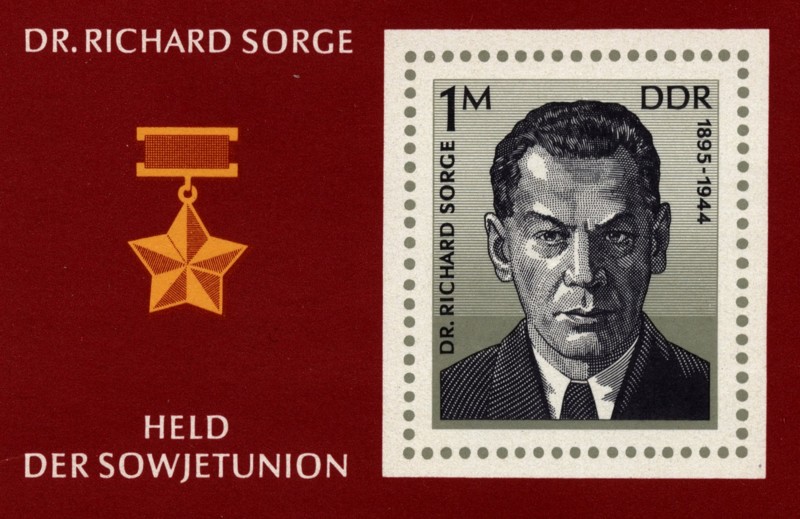
Днем рождения Российской (в те времена, Советской) разведки принято считать 5 ноября 1918 года. Именно тогда Реввоенсовет утвердил структуру Полевого Штаба Революционного Военного Совета Республики, куда вошло Регистрационное управление, являвшееся тогда прототипом сегодняшнего ГРУ.
Только представьте: на осколках Императорской армии создавалось новое ведомство, которое за одно десятилетие (!!!) обзавелось одной из крупнейших агентурных сетей в мире. Даже террор 30-х годов, который, конечно же, стал ударом огромной разрушительной силы, не развалил Разведуправление. Руководство и сами разведчики боролись за жизнь и возможность работать всеми способами. Простой пример: сегодня ставший уже легендой военной разведки, а тогда резидент разведупра в Японии Рихард Зорге, просто отказался возвращаться в СССР, зная, что это означает смерть. Зорге сослался на сложнейшую ситуацию и невозможность оставить место вакантным.
Роль, которую сыграла деятельность военной разведки в Великой войне неоценима. Представить, что уничтожавшееся годами разведуправление полностью переиграет Абвер было почти невозможно, однако сегодня это сложившийся факт. Причём речь здесь и о войсковой разведке, и об агентуре, и о советских диверсантах.
Почему-то малоизвестен тот факт, что и советские партизаны – это тоже проект разведывательного управления. Отряды в тылу противника создавали кадровые офицеры РУ. Здешние бойцы не носили эмблемы военной разведки только потому, что это вообще не афишировалось. Теорию и методику партизанской войны положили в 50-х и в основу создаваемого спецназа ГРУ. Основы подготовки, методы ведения войны, прицел на скорость передвижений – всё в соответствии с наукой. Только теперь бригады спецназа стали частью регулярной армии, расширился спектр выполняемых задач (ядерная угроза в приоритете), вводится спецвооружение и обмундирование, на котором предмет особой гордости и признак принадлежности к «элите элит» — символика военной разведки.
Созданные и обученные для проникновения на территории агрессивно настроенных государств, части Спецназа ГРУ зачастую участвовали в выполнении далеких от основного профиля задач. Бойцы и офицеры спецназа ГРУ были задействованы во всех военных действиях, в которых принимал участие Советский Союз. Так, военнослужащими различных разведывательных бригад были усилены многие подразделения, ведущие боевые операции. Хоть эти парни и не служили больше напрямую под эмблемой, но, как известно, бывших спецназовцев не бывает. Они оставались лучшими в любой из боевых специальностей, будь то снайпер или гранатометчик и многих других.
Свой «открытый» статус 5 ноября обрело только 12 октября 2000 г., когда приказом Министра обороны Российской Федерации № 490 был установлен День военного разведчика.
Эмблемой военной разведки когда-то стала летучая мышь – мало шумит, но все слышит.
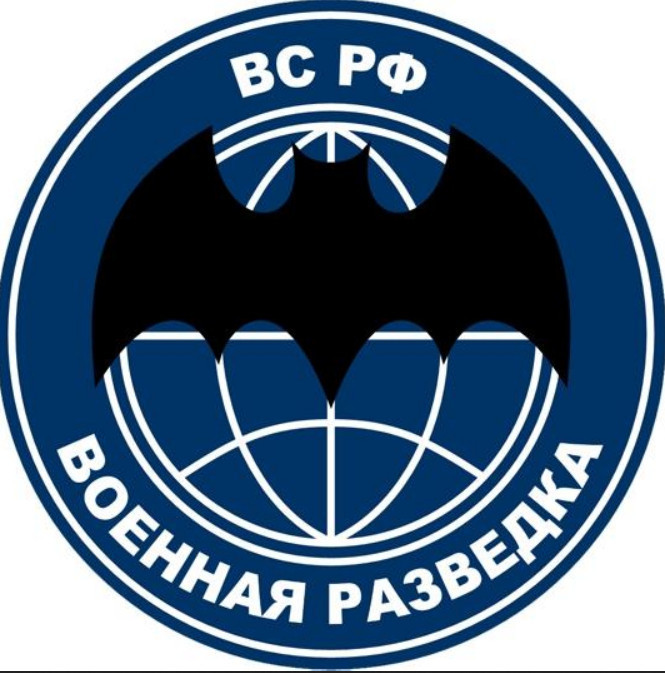
«Мышка» на шевронах солдат спецназа ГРУ очень давно, говорят, что первой здесь была 12 ОБрСпН. Долгое время всё это носило неофициальный характер, однако с концом эпохи СССР взгляд на «разделение обязанностей» в вооружённых силах изменился. В элитных воинских подразделения начали вводить соответствующие знаки различия, утвердили и новую официальную символику военной разведки.
В 1993 г., когда отечественная военная разведка готовилась отметить 75-ю годовщину со дня своего создания. К этому юбилею некто увлекающийся геральдикой из числа сотрудников ГРУ1 решил преподнести подарок своим коллегам в виде новой символики. Это предложение получило поддержку начальника ГРУ генерал-полковника Ф.И. Ладыгина. К тому времени, как известно, собственными официально утверждёнными нарукавными знаками уже обзавелись Воздушно-десантные войска, а также российский контингент миротворческих сил в Приднестровье (буквы «МС» на голубой прямоугольной нашивке). Нам неизвестно, знали ли об этом «геральдисты-разведчики» и их начальники или нет, но закон они, тем не менее, обошли. Во второй половине октября ГРУ был подготовлен проект доклада начальника Генерального штаба на имя Министра обороны с приложением описания и рисунков двух нарукавных знаков: для органов военной разведки и воинских частей специального назначения. 22 октября Ф.И. Ладыгин подписал его «с руки» у начальника Генштаба генерал-полковника
М.П. Колесникова, а на следующий день Министр обороны генерал армии П.С. Грачёв утвердил описания и рисунки нарукавных знаков.
Так летучая мышь стала символом военной разведки и частей спецназа. Выбор был далеко не случаен. Летучая мышь всегда считалась одним из самых таинственных и скрытных существ, действующих под покровом темноты. Ну а скрытность, как известно, является залогом успешной разведывательной операции.
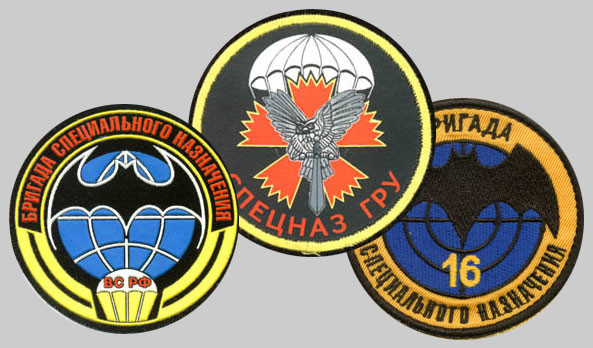
Однако в ГРУ, а также разведывательных управлениях видов вооружённых сил, округов и флотов утверждённый для них нарукавный знак по понятным причинам никогда не носили. Зато его многочисленные разновидности быстро распространились по частям и подразделениям войсковой, артиллерийской и инженерной разведки, а также противодиверсионной борьбы. В соединениях и частях специального назначения также широко использовались различные варианты нарукавных знаков, изготовленных по мотивам утверждённого рисунка.
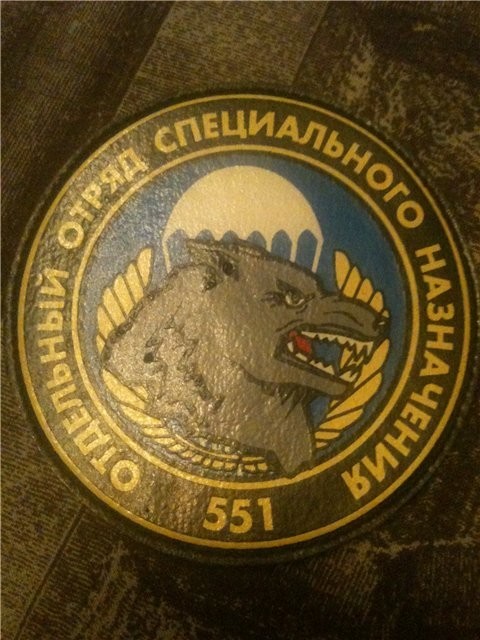
Каждое соединение военной разведки имеет и свою уникальную символику, это и различные вариации с летучей мышью, и какие-то специфические нарукавные нашивки. Очень часто отдельные подразделения войск СпН (Спецназ) используют в качестве своего символа хищных животных и птиц – здесь всё зависит от географического положения и специфики выполняемых задач. На фото эмблема военной разведки 551 ооСпН, символизирует отряд волк, которого, кстати, ещё в советское время разведчики почитали, возможно, он был вторым о популярности после «мышки».
Считается, что красная гвоздика – «это символ стойкости, преданности, непреклонности и решимости в достижении поставленных целей», а трехпламенная гренада – это «исторический знак гренадеров-наиболее подготовленных военнослужащих элитных подразделен
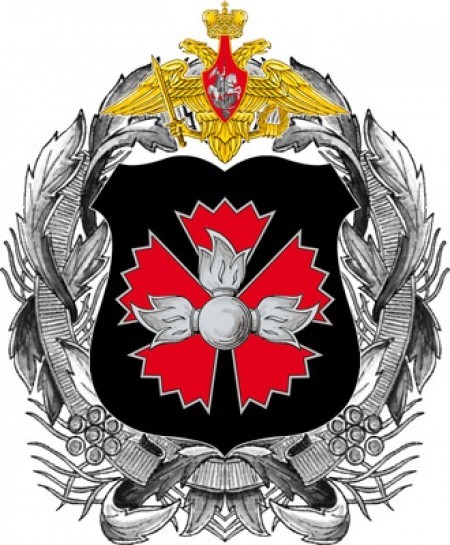
Но начиная с 1998 г., летучую мышь стал постепенно вытеснять новый символ военной разведки красная гвоздика, которая была предложена известным художником-геральдистом Ю.В. Абатуровым. Символизм здесь предельно ясен: гвоздики очень часто использовались советскими разведчиками в качестве опознавательного знака. Ну а количество лепестков на новой эмблеме военной разведки – это пять видов разведки (наземная, воздушная, морская, информационная, специальная), пять континентов на Земном шаре, пять предельно развитых у разведчика чувств. Первоначально она появляется на нагрудном знаке отличия «За службу в военной разведке». В 2000 г. становится элементом большой эмблемы и нового нарукавного знака ГРУ и, наконец, в 2005 г. окончательно занимает центральное место на всех геральдических знаках, включая нарукавные нашивки.
Кстати, нововведение первоначально вызвало у солдат и офицеров спецназа скорее негативную реакцию, однако когда стало ясно, что реформа не означает искоренения «мышки» буря стихла. Введение новой официальной общевойсковой эмблемы военной разведки никак не повлияло на популярность летучей мыши у бойцов армейских соединений ГРУ, здесь достаточно даже поверхностного знакомства с культурой татуировок в войсках СпН. Летучая мышь, как один из главных элементов символики военной разведки, утвердилась задолго до 1993 года и останется таковой, наверное, всегда.

Так или иначе, летучая мышь – эмблема, которая объединяет всех действующих и отставных разведчиков, это символ единства и исключительности. И, в общем-то, неважно, о ком мы говорим – о законспирированном агенте ГРУ где-нибудь в армии или снайпере любой из бригад спецназа. Все они делали и делают одно, очень важное и ответственное дело.
Итак, летучая мышь – главный элемент символики русской военной разведки, даже несмотря на появление «гвоздики» позиций своих не сдаёт: этот символ сегодня не только на шевронах и флагах, он также стал и элементом солдатского фольклора.
Примечательно, что даже после замены «Летучей мыши» на «Красную гвоздику», не только спецназовцы и «грушники» не перестали считать своим символом именно «мышек», но и на полу в штаб-квартире Главного разведывательного управления сохранилась «Летучая мышь», соседствующая с «Гвоздикой», прикрепленной к стене холла.
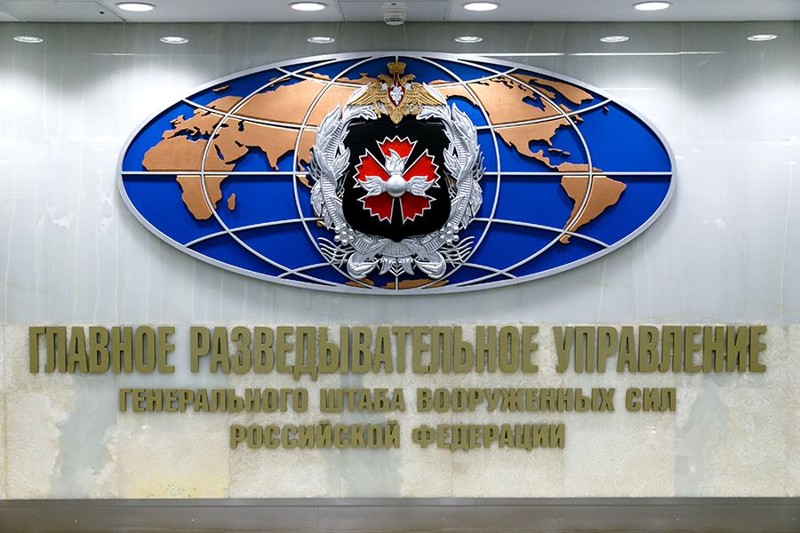
Сегодня 2-е главное управление Генерального Штаба (ГРУ ГШ) – мощнейшая военная организация, точный состав и организационная структура которой, разумеется, являются военной тайной. Сегодняшняя штаб-квартира ГРУ функционирует с 5 ноября 2006 года, объект был сдан точно к празднику, именно сюда сейчас поступает важнейшая агентурная информация, отсюда осуществляется руководство воинскими соединениями спецназа. Здание спроектировано в соответствии с учётом самых современных технологий не только строительства, но и безопасности – во многие «отсеки» Аквариума могут попасть лишь избранные сотрудники. Ну а вход украшает гигантская эмблема военной разведки РФ.
Ссылки по теме:
День военной разведки поздравления
Дата: 31-03-2022
Смотрели: 1 060
73 фото
1
День военного разведчика
2
5 Ноября день военной разведки
3
День разведки
4
День военного разведчика
5
День военного разведчика
6
День разведки
7
День военной контрразведки поздравления
8
День военного разведчика
9
Военная разведка праздник
10
День военной разведки поздравления
11
День разведки
12
День военогоразведчика
13
С днем военного разведчика поздравления
14
Календарь Военная разведка
15
День военной разведки
16
День военного разведчика
17
5 Ноября день военного разведчика
18
Военных разведчиков с профессиональным праздником
19
Вымпел ОСНАЗ гру
20
День военного разведчика юмор
21
Военная разведка
22
Военная разведка
23
Военная разведка
24
Военная разведка прикольные картинки
25
Военная разведка гиф
26
Шифры разведки
27
Флаг Военная разведка
28
Торт разведчику
29
Эмблема спецназа гру Военная разведка России
30
5 Ноября день военного разведчика
31
Военная разведка
32
Открытки с 23 февраля разведка
33
Разведка ВДВ
34
Деньвоенного свядзиста
35
Обложка на паспорт Военная разведка
36
Разведка ВДВ
37
Грамоты ко Дню военного разведчика
38
Военная разведка
39
Главное управление разведки РФ
40
100 Лет военной разведке
41
С днём рождения военной разведки
42
Отдел разведки
43
Флаг спецназа разведки
44
5 Ноября день рождения черного берета
45
День разведки спецназа
46
5 Ноября день военного разведчика
47
Разведка ВДВ эмблема
48
День военного разведчика
49
Знамя военной разведки
50
Вс РФ Военная разведка
51
День ВДВ баннер
52
Военная разведразведка
53
Девиз десантников разведки ВДВ
54
55
56
57
58
59
60
61
62
63
64
65
66
67
68
69
70
71
72
Эмблема ГРУ
День военного разведчика — профессиональный праздник российских военных, чья служба, так или иначе, связана с военной разведкой. Этот праздник отмечается в России ежегодно, 5 ноября[1].
История дня военного разведчика
День военного разведчика был установлен приказом Министра обороны Российской Федерации Сергеева Игоря Дмитриевича № 490 от 12 октября 2000 года.
Дата 5 ноября была выбрана не случайно: этот день можно по праву считать днём рождения Главного разведывательного управления Генерального штаба Вооруженных Сил Российской Федерации: создано в 1918 году, по приказу Реввоенсовета РСФСР, который утвердил штат Полевого штаба РВСР, в структуру которого входило регистрационное управление (РУПШКА) с функциями координации усилий разведорганов подразделений РККА и подготовки разведывательной информации для Полевого штаба Красной Армии.
Значение военной разведки для вооружённых сил сложно переоценить. В 2008 году президент Российской Федерации Владимир Путин, в своей поздравительной речи обращенной к военным разведчикам и приуроченной к 90-летию ГРУ Генштаба России сказал следующее:
«Безупречная выучка, компетентность, уникальный опыт, накопленный поколениями ваших предшественников, и сегодня помогают сотрудникам управления самоотверженно следовать своему служебному долгу, выполнять самые сложные и ответственные задания и твердо стоять на страже национальных интересов России»[2].
Примечания
- ↑ День военного разведчика — 5 ноября. История и особенности праздника в проекте Календарь Праздников 2010
- ↑ Путин поздравил разведчиков с профессиональным праздником : KM.RU Новости
См. также
Самые известные военные разведчики:
- Зорге, Рихард
- Кузнецов, Николай Иванович
- Филиппов, Александр Александрович
- Барковский, Владимир Борисович
Ссылки
- Сообщество ветеранов спецназа разведки
- Структура ГРУ, история, документы
- Статьи о истории разведки
Красная гвоздика — знак военной разведки. Символизм здесь предельно ясен: гвоздики очень часто использовались советскими разведчиками в качестве опознавательного знака. Ну а количество лепестков на новой эмблеме военной разведки – это пять видов разведки (наземная, воздушная, морская, информационная, специальная), пять континентов на Земном шаре, пять предельно развитых у разведчика чувств.
Фото: https://rtvi.com/upload/iblock/6db/6dbe59a4755ccd7d6a24c7f3e7df6b86.jpg
5 ноября в России отмечается День военного разведчика
Автор: Сергей Юферев
5 ноября Россия отмечает День военного разведчика – профессиональный праздник российских военных, чья служба связана с военной разведкой. Данный праздник был учрежден приказом министра обороны Игоря Дмитриевича Сергеева от 12 октября 2000 года. Он отмечается ежегодно 5 ноября в соответствии с президентским указом от 31 мая 2006 года «Об установлении профессиональных праздников и памятных дней в ВС РФ». Разведчик – одна из самых старых профессий, которая с годами не теряет своей актуальности, с каждым годом методы и способы разведки совершенствуются, а добытая разведчиками информация по-прежнему имеет огромное государственное значение.
Разведка во все времена была делом государственной важности, так было со времен Киевской Руси. К сбору информации тогда привлекались послы, купцы, гонцы, а также жители приграничных территорий государства. Не зря профессию разведчика называют одной из древнейших на земле. Позднее в 1654 году уже при царе Алексее Михайловиче был создан Приказ тайных дел, который был прообразом разведывательного управления тех лет. В воинском уставе 1716 года Пётр I подвел под разведывательную работу правовую и законодательную базу. Позднее в январе 1810 года уже в царствование императора Александра I по инициативе военного министра Барклая де Толли в России была образована так называемая экспедиция секретных дел при военном министерстве, в январе 1812 года ее переименовали в Особенную канцелярию при военном министре.
Образованная Особенная канцелярия решала важные задачи: ведение стратегической разведки (сбор стратегически важных секретных сведений за границей), оперативно-тактической разведки (сбор информации о войсках противника на границах страны) и контрразведки (выявление и последующая нейтрализация иностранной агентуры). Данная канцелярия стала первым центральным органом Военного министерства Российской империи, который занимался бы организацией разведки вооруженных сил иностранных держав.
Шеврон подразделений СПЕЦНАЗ ГРУ ГШ ВС РФ
Дата 5 ноября для празднования Дня военного разведчика была выбрана неслучайно. Данный день по праву считается днем рождения Главного разведывательного управления Генерального штаба ВС РФ. В этот день в 1918 году в Петрограде в составе Полевого штаба Красной Армии было создано Регистрационное управление для координации усилий всех разведывательных органов армии. С целью подготовки кадров для нового управления в Москве были открыты курсы разведки и военного контроля, на которых преподавалось 13 различных дисциплин, в том числе: тактика, география, топография, артиллерийское дело, агентурная разведка, контрразведка и др. Позднее в образовательную программу было введено элементарное изучение иностранных языков (английского, немецкого, французского, шведского, финского и японского).
Первым, кто возглавил Регистрационное управление, стал Семён Аралов – большевик из числа ветеранов разведки русской армии периода Первой мировой войны. Именно Региструпр стал прообразом действующего сегодня органа управления военной разведки – Главного разведывательного управления (ГРУ) Генерального штаба Вооруженных сил Российской Федерации. Сегодня ГРУ – это важный компонент укрепления российского государства. Данная структура сочетает в себе все известные на сегодняшний день виды разведки – стратегическую, техническую, экономическую, космическую, агентурную (в том числе нелегальную), а также войсковую, известную также как спецназ ГРУ.
С апреля 1921 года Региструпр трансформировался в Разведывательное управление (Разведупр) штаба РККА. Тогда же он стал центральным органом военной разведки как в мирное, так и в военное время. Начиная с 1926 года, Разведупр был переименован в IV Управлением штаба РККА. Одним из самых известных разведчиков, который имел отношение к Разведупру РККА (перешел на работу в ноябре 1929 года), был знаменитый советский разведчик Рихард Зорге.
С началом Великой Отечественной войны основным видом деятельности разведки стало обеспечение боевых действий войск и проводимых Красной Армией операций. Подготовка и проведение всех стратегических, фронтовых и армейских операций в годы войны опиралось на данные, которые были получены с помощью оперативной и стратегической разведки. Результативностью и большим размахом отличалась в годы войны работа разведчиков, которые самоотверженно действовали за линией фронта на временно оккупированных врагом территориях, а также в других государствах. Начиная с первых дней Великой Отечественной войны, была организована заброска в тыл противнику разведывательно-диверсионных и разведывательных групп, на базе которых в дальнейшем часто формировались и развертывались большие партизанские отряды, создавалась резервная разведывательная сеть на территориях, которые временно оставлялись войскам противника.
Так только за первые 6 месяцев Великой Отечественной войны в тыл противника было заброшено порядка 10 тысяч человек, в том числе огромное количество подготовленных разведчиков с радиоаппаратурой. Также в годы войны было создано Главное управление контрразведки «Смерш» (сокращение от «Смерть шпионам!»). Данное управление занималось борьбой с шпионской и диверсионной деятельностью противника, борьбой с дезертирством и предательством в рядах Красной Армии.
Шеврон подразделений ОСНАЗ ГРУ ГШ ВС РФ
В феврале 1942 года Разведуправление было реорганизовано в Главное разведывательное управление (ГРУ). В октябре того же года оно было выделено из состава Генштаба и переподчинено непосредственно наркому обороны Советского Союза. Задачей ГРУ стало ведение агентурной разведки армий противника за границей СССР, а также на временно оккупированных врагом территориях. В апреле 1943 года наряду с уже существующим ГРУ было образовано новое разведуправление Генштаба Красной Армии, задачей которого было руководство агентурной и войсковой разведкой фронтов, а также регулярное информирование о намерениях и действиях противника, а также проведение операций по его дезинформации. После завершения войны они были объединены в ГРУ Генерального штаба, которое с 1947 года называлось Вторым Главным управлением Комитета информации при Совете Министров СССР, а с 1949 года вновь стало ГРУ Генерального штаба Вооруженных сил. В годы войны были заложены боевые традиции современной военной разведки, было подготовлено большое количество высококвалифицированных разведчиков, которые сумели накопить, а затем в послевоенные годы успешно использовать богатый боевой опыт.
За прошедшие после войны годы роль военной разведки не только не уменьшилась, напротив она многократно увеличилась. В наши дни она является важнейшей составляющей укрепления государства. Военная разведка является элементом системы национальной безопасности Российской Федерации, она добывает, обрабатывает, обобщает и анализирует поступающую по различным каналам информацию о военно-политической обстановке, которая складывается вокруг нашей страны, занимается прогнозированием ее развития, а также своевременно докладывает командованию Вооруженных сил и руководству России о реальных и потенциальных угрозах национальной безопасности и суверенитету нашего государства.
Сегодня в сферу интересов военной разведки входят все локальные и региональные вооруженные конфликты, вооруженные силы иностранных государств, их вооружение и боевая техника, оборудование возможных театров боевых действий, а также экономическая составляющая, особенно предприятия промышленности, работающие в интересах вооруженных сил. Для решения возложенных на нее задач военная разведка имеет в своем составе как оперативные, так и различные технические подразделения, а также информационно-аналитические и обеспечивающие структуры. Все они получают только самые современные технические средства ведения разведки, которые создаются на основе последних достижений в области телекоммуникационных, информационных и космических технологий.
При этом никогда не надо забывать о том, что военный разведчик – это очень тяжелая и опасная профессия. В нашей стране за мужество и героизм, которые были проявлены при выполнении специальных заданий по обеспечению национальной безопасности, более 700 военных разведчиков удостоено высочайшего звания Героя Советского Союза и Героя Российской Федерации. В XXI веке представители этой героической военной профессии по-прежнему находятся на передовых рубежах по защите нашей страны, решая широкий спектр задач. В настоящее время военная разведка структурно относится к Генеральному штабу Вооруженных Сил Российской Федерации и по праву считается «глазами и ушами» вооруженных сил нашей страны, основным их средством для получения важной военной, экономической и политической информации.
В этот праздничный день коллектив «Военного обозрения» поздравляет всех, кто имел или имеет непосредственное отношение к военной разведке России. Особенно ветеранов военной разведки, участников Великой Отечественной войны. От вашей профессиональной и самоотверженной работы зависит безопасность существования нашего государства.
Источник: https://topwar.ru/128893-5-noyabrya-v-rossii-otmechaetsya-den-voennogo-razvedchika.html
-
День военной разведки
08.11.2023
День военной разведки
Многие годы в массах царит мнение, что не существует более опытного и опасного противника, чем советский (а ныне — российский) разведчик. Что ж, в данном случае слухи вполне соответствуют действительности. Дело в том, что школа отечественной разведки на самом деле готовит первоклассных специалистов.
К сожалению, узнать всех деталей из жизни и истории нашего разведуправления не суждено большинству людей на нашей планете… Да и что бы это была за разведка, если про нее известно всем вокруг. Тем не менее, военторг Военпро все же готов поделится с вами информацией о военных разведчиках.
Каталог атрибутики “Военная разведка”.
Зарождение отечественной военной разведки
Это может показаться невероятным, но корнями отечественная военная разведка тянется еще к Киевской Руси. Историки утверждают, что уже тогда при князьях служили специальные люди, занимающиеся добычей секретной информации о передвижении, численности и подготовленности вражеских войск.
Более того, были у наших древних правителей и свои агентурные сети в других государствах и даже своя контрразведка. Разумеется, все это было не настолько хорошо развито, как сейчас, но опыт, как вы понимаете, накопился солидный.
Мы не будем разбирать всю историю отечественной разведки, а остановимся подробнее на советском и постсоветском периоде. Правда, несколько слов хотелось бы сказать про роль наших разведчиков в Первой Мировой войне.
Несмотря на относительно небольшую агентурную сеть, предоставляемые данные порой позволяли избежать огромных потерь. К сожалению, командование не всегда прислушивалось к разведчикам, за что, порой, дорого приходилось платить (например, сокрушительный разгром частей 2-й армии генерала Самсонова).
После прихода к власти большевиков, отечественная разведка многое потеряла. Дело в том, что многие «спецы» были вынуждены покинуть территорию государства. Однако новая власть, понимая важность разведуправления, продолжила развивать данное направление.
Поэтому 5 ноября 1918 года был издан секретный приказ, согласно которому в Полевой штаб РВСР входило Регистрационное управление, ставшее, по сути, прародителем современного ГРУ. Этот день военная разведка РФ и празднует, как день своего рождения в настоящее время.
Военная разведка – становление элиты Вооруженных сил
Услышав словосочетание «спецназ ГРУ» у любого врага России невольно пробегает дрожь по телу, и начинают скрипеть зубы. В настоящее время, все больше недоброжелателей появляется у великой страны России. По этому, роль военной разведки становится еще более важной.
История спецназа ГРУ началась в октябре 1950-го года. Связано появление данной спецслужбы, главным образом, с появлением и распространением ядерного оружия. Первостепенной задачей был контроль и борьба с мобильным ядерным оружием стран НАТО.
Стоит отметить, что уже в момент своего появления армейский спецназ отличался высочайшим уровнем подготовки. В СССР недавно отгремела война, так что проблем с первоклассными спецами, имевшими опыт реальных боев, не наблюдалось. А отбирали в спецназ ГРУ только лучших.
Спецназ ГРУ всегда был элитой российской военной разведки. Все дело в тщательном отборе и уникальной подготовке. Так, те, кому посчастливилось пройти жесточайший конкурс, усиленно изучали один из нескольких языков. Кроме того, огромное внимание уделялось именно боевой подготовке.
С развалом СССР, правда, положение спецназа ГРУ заметно ухудшилось. Многие опытные подразделения перешли под командование государств, ставших независимыми. Тем не менее, в последние годы заметна положительная тенденция. Благо, за несколько лет разрухи ВС школа подготовки не стала хуже. Да и специалистов времен СССР хватает.
Спецоперации военной разведки ГРУ
Сотрудники военной разведки ГРУ неоднократно принимали участие в крупных военных конфликтах. Так обе Чеченские войны не обошлись без присутствия спецназовцев. Вот только использовали их не всегда правильно.
Дело в том, что порой бойцам ГРУ приходилось выполнять несвойственные им задачи: боевые действия в качестве пехотных подразделений, сопровождение колонн и многое другое. Понятное дело, что на первых порах разведчики несли потери. Но стоило им приспособиться к новым задачам и враг старался обходить их десятой дорогой.
Один из наиболее невероятных успехов спецназа военной разведки ГРУ – штурм дворца Амина в Афганистане. Далеко не все в курсе, что во многом эта авантюрная спецоперация стала возможной именно благодаря специальному 154-му отдельному отряду «Мусбат».
Он был набран исключительно из мусульман разных подразделений спецназа ГРУ. Оборона Амина состояла из 3 уровней. Так вот как раз «Мусбат» и был вторым уровнем, который в момент штурма разделил тяжеловооруженную бригаду и личную гвардию Амина.
Так что если бы бойцы спецназа ГРУ не внедрились заранее в ряды противника, штурм дворца мог бы закончится катастрофой.
Части и подразделения военной разведки СССР и России
Штатные разведывательные подразделения — разведвзвода, разведроты и разведбаты входят в состав всех общевойсковых соединений Сухопутных войск.
В 1962-1963 годах в Советской армии началось формирование отдельных бригад специального назначения ГРУ ГШ. Первые 10 кадрированных бригад были сформированы к началу 1963 года:
- 2 ОБрСпН (ЛенВО, Печоры);
- 4 ОБрСпН (ПрибВО, Рига, Вильянди);
- 5 ОБрСпН (БелВО, Марьина Горка);
- 8 ОБрСпН (ПрикВО, Изяслав);
- 9 ОБрСпН (КВО, Кировоград);
- 10 ОБрСпН (ОдВО, Первоймайский);
- 12 ОБрСпН (ЗакВО, Лагодехи);
- 14 ОБрСпН (ДальВО, Уссурийск);
- 15 ОБрСпН (ТуркВО, Чирчик);
- 16 ОБрСпН (МВО, Чучково).
В 1966 году в Германии была сформирована 3 гв. ОБрСпН, в состав которой входили отряды специального назначения (ооспн)- 501, 503, 509, 510, 512.
В 1976 году в САВО была сформирована 22 ОБрСпН ГРУ
В 1977 в ЗабВО сформирована 24 ОБрСпН ГРУ.
В 1984 в СибВО сформированаа 67 ОБрСпН ГРУ.
В наши дни большая часть этих формирований продолжает находится в составе ГРУ ГШ в различных пунктах постоянной дислокации. Расформированы:
- 4 отдельная бригада специального назначения (1992);
- 12 отдельная бригада специального назначения (2009);
- 67 бригада специального назначения (2009);
5 ОБрСпН в наши дни входит в состав Сил специальных операций Беларуси, 8-я и 9-я бригады были переданы Украине и переформированы в полки, 15-я бригада переформирована в одшбр и входит в ВС Узбекистана.
Учебные заведения военной разведки
Несмотря на все трудности, которые пришлось преодолеть военной разведке, в России все же сохранилась мощная база для подготовки новых разведчиков. Взять, к примеру, Военно-дипломатическую академию в г. Москва.
Данное учебное заведение готовит не только будущих военных разведчиков, но и военных дипломатов. Сейчас там действует 4 факультета:
- Подготовка разведчиков с дипломатическим прикрытием и «нелегалов» — работа за рубежом;
- Агентурно-оперативная разведка;
- Оперативно-тактическая разведка;
- Спецфакультет. Здесь осуществляется подготовка по всем трем направлениям, но для военнослужащих дружественных государств.
Так же стоит отметить Общевойсковую академию Вооружённых Сил РФ в Новосибирске, где ведется подготовка офицерского состава сразу по нескольким направлениям.
Как попасть служить в военную разведку?
Ни для кого не секрет, что в военную разведку отбирают самых достойных и лучших призывников. Для того чтобы попасть в данный род войск Вы должны быть кристально чисты перед законом – это основное требование.
Должны быть готовы, к прохождению большого курса как тактической, так и военной подготовки. Будьте очень активны во время курса молодо бойца, выделяйтесь на общем фоне и Вас обязательно заберут в одну из частей, где ведется подготовка разведчиков.
Празднование дня военного разведчика
Несмотря на исключительную важность данных подразделений, празднуется День военной разведки, если так можно выразиться, скромно. По понятным причинам, по государственным каналам не покажут лучших разведчиков года и не вручат им правительственные награды. Обычно празднование этого дня в каждом городе проводится по-своему.
Это может быть праздничный концерт с фейерверком для ветеранов разведки. Обычно, возлагаются цветы к вечному огню, как знак памяти павшим в боях разведчикам. К сожалению, данная профессия не позволяет получить всеобщее признание при жизни. Но такова цена за спокойствие нашего с вами быта.
Настоящий разведчик всегда готов пожертвовать собой, и это стоит помнить. Поэтому, в следующий раз, 5 ноября, почтите память погибших бойцов вместе с ветеранами.
Подарок на День военной разведки
В преддверии 5 ноября возникает вопрос: а что же подарить настоящему разведчику? Что ж, прежде всего, стоит понимать, что сотрудник ГРУ – это 100% практичный человек, который всегда готов к любым неприятностям. Поэтому и подарок должен быть для него максимально практичный и полезный. Благо, в нашем магазине вы таких найдете немало.
Возможно, этим подарком станет флаг подразделения или бригады спецназа (возможна печать любых флагов на заказ по индивидуальному дизайну) или нагрудные знаки и значки с символикой военной разведки и спецназа ГРУ.
Можно также подарить полноценную флягу с такой же символикой. Такая вещь, понятное дело, должна быть в арсенале каждого военного.
Существует еще множество других практичных, но не менее приятных подарков, вроде тематических футболок, толстовок, брелков и многое другое. Все это вы можете найти в нашем магазине. Приближается День военной разведки, так что пора бы уже подумать о том, чем вы порадуете бойцов элиты российской армии.
Все подарки для военных разведчиков.
ПРОИЗВЕДЕМ ЛЮБУЮ АТРИБУТИКУ, ТАКТИЧЕСКИЕ АКСЕССУАРЫ, ОДЕЖДУ И МНОГОЕ ДРУГОЕ С СИМВОЛИКОЙ ПО ВАШЕМУ ИНДИВИДУАЛЬНОМУ ЗАКАЗУ!
Связывайтесь по интересующим Вас вопросам с нашими менеджерами.
-20%
-20%
-53%
-53%
-22%
-22%


